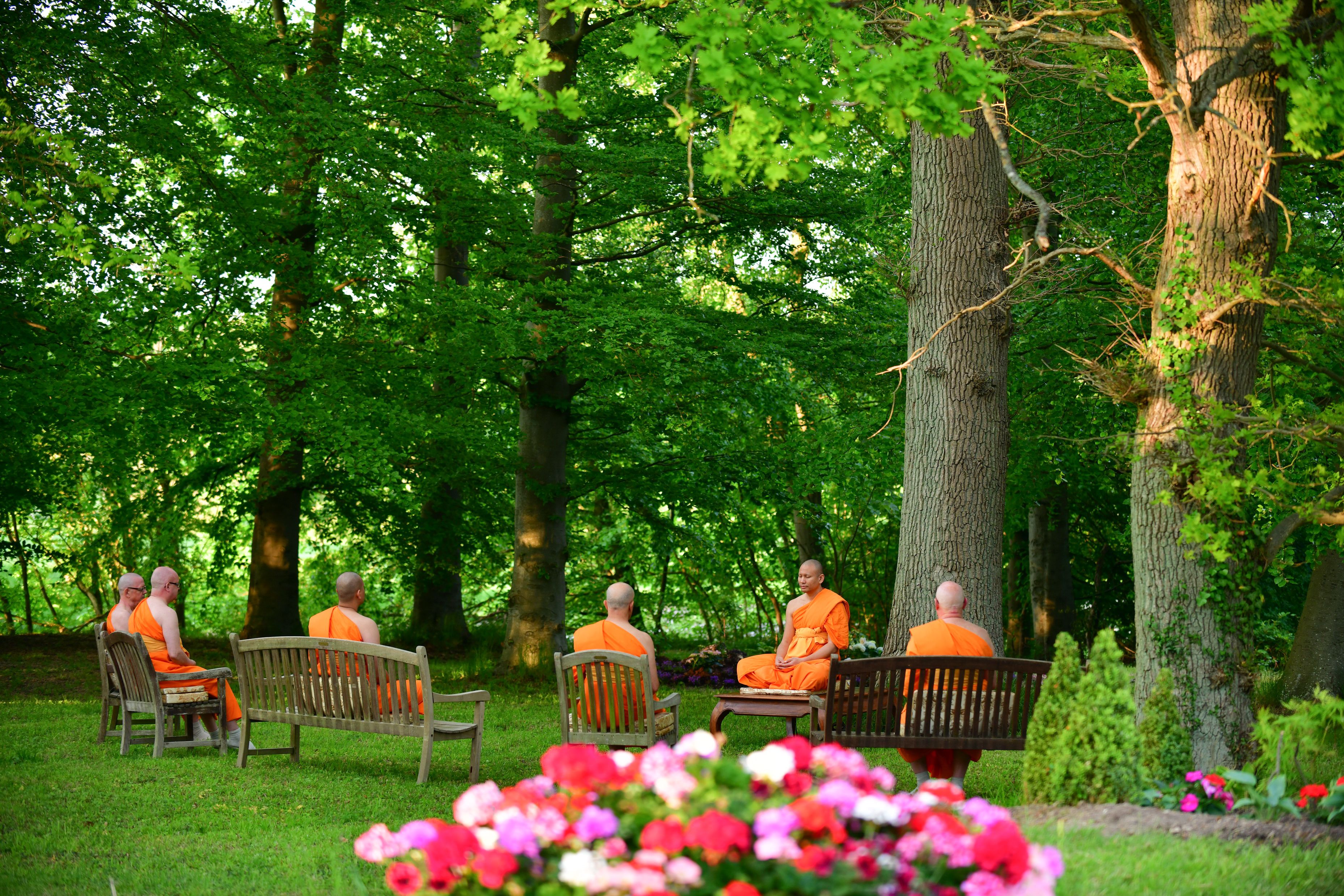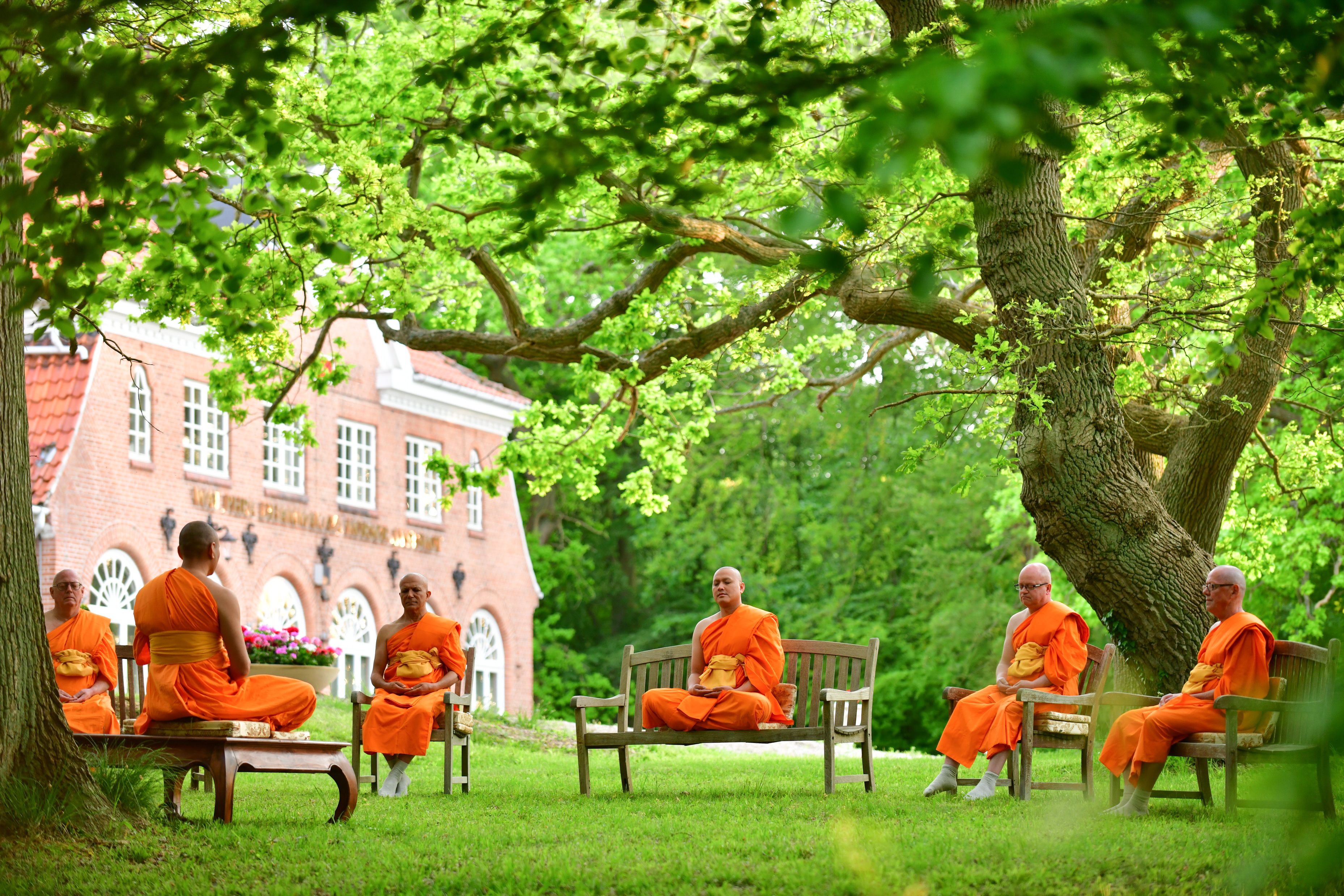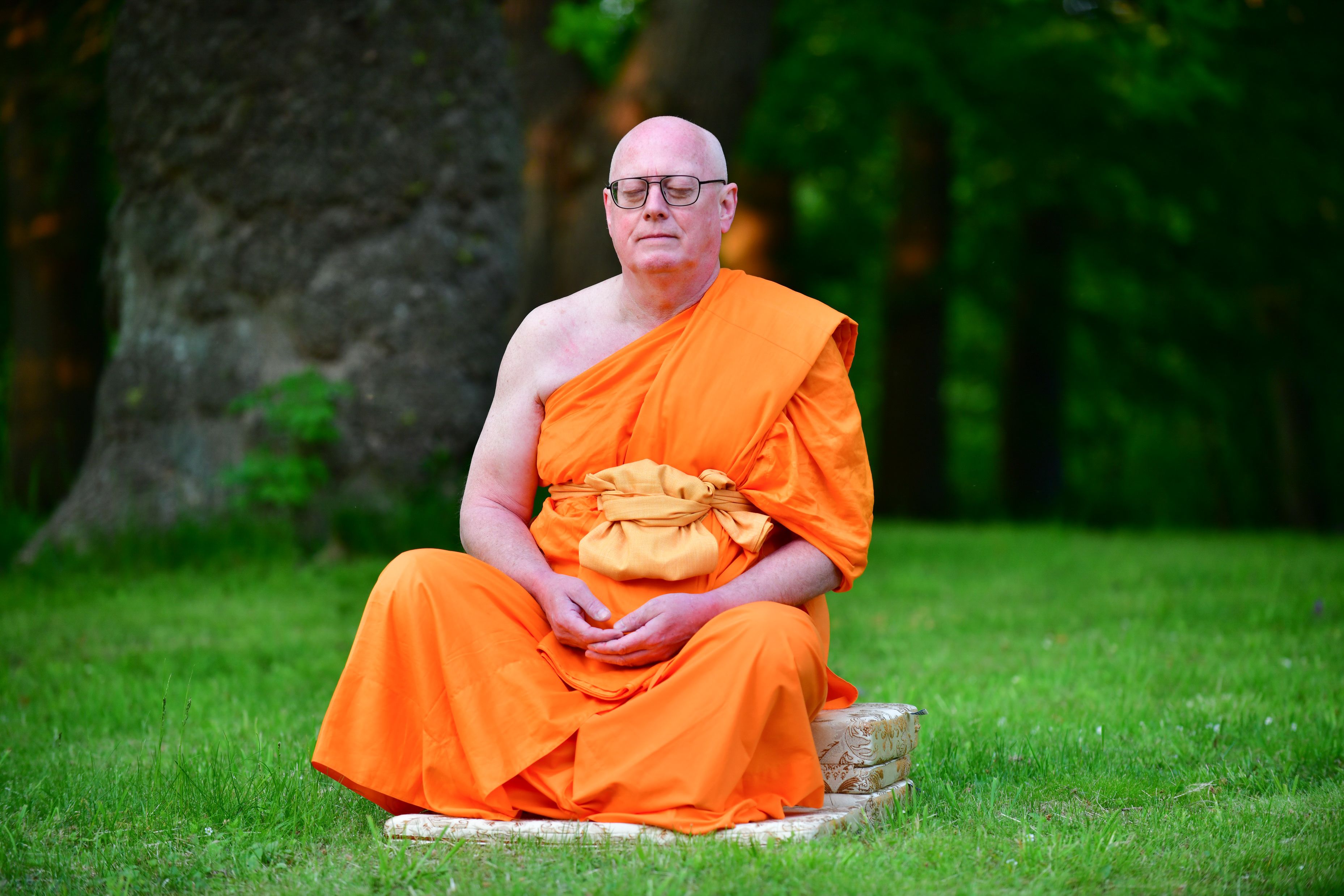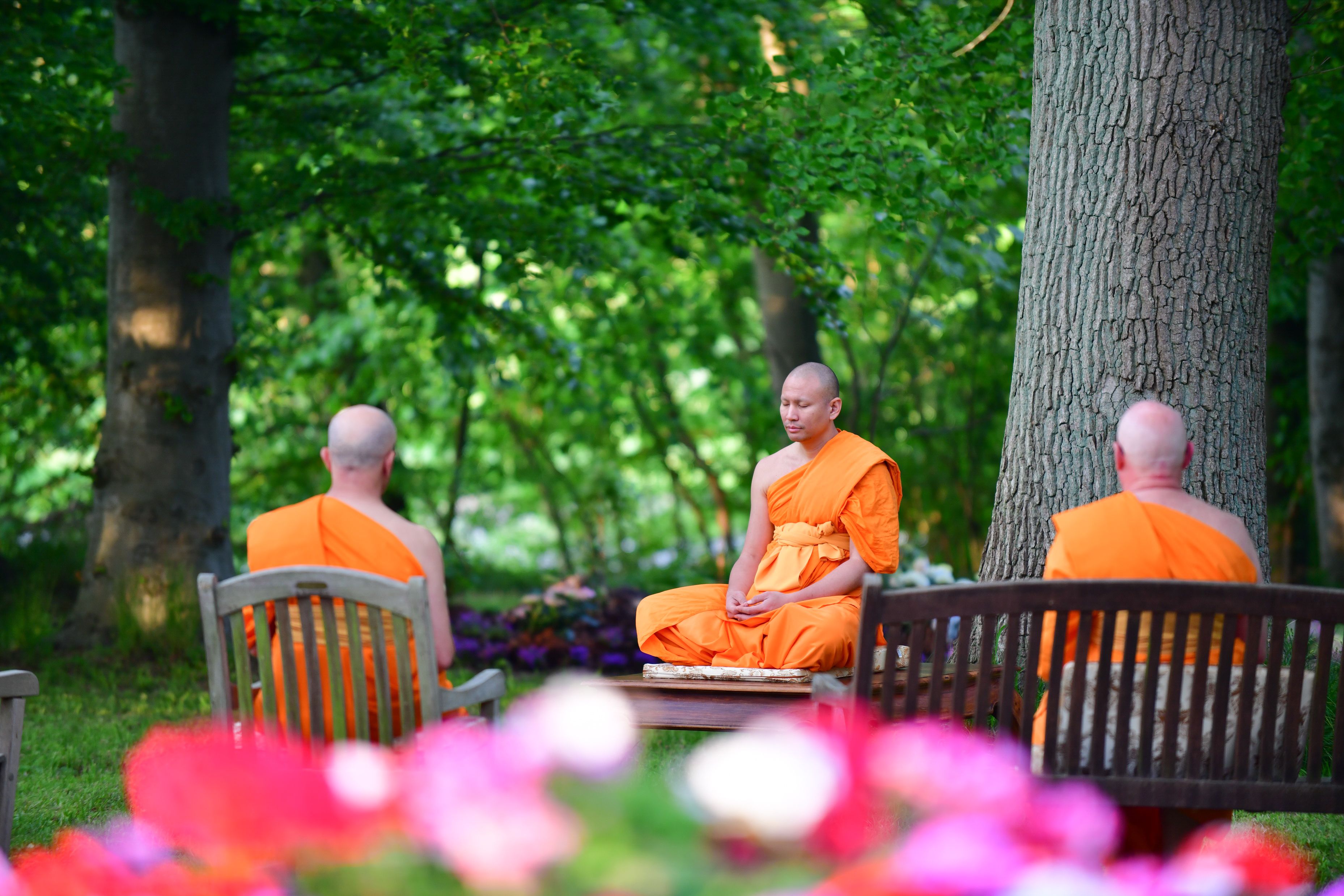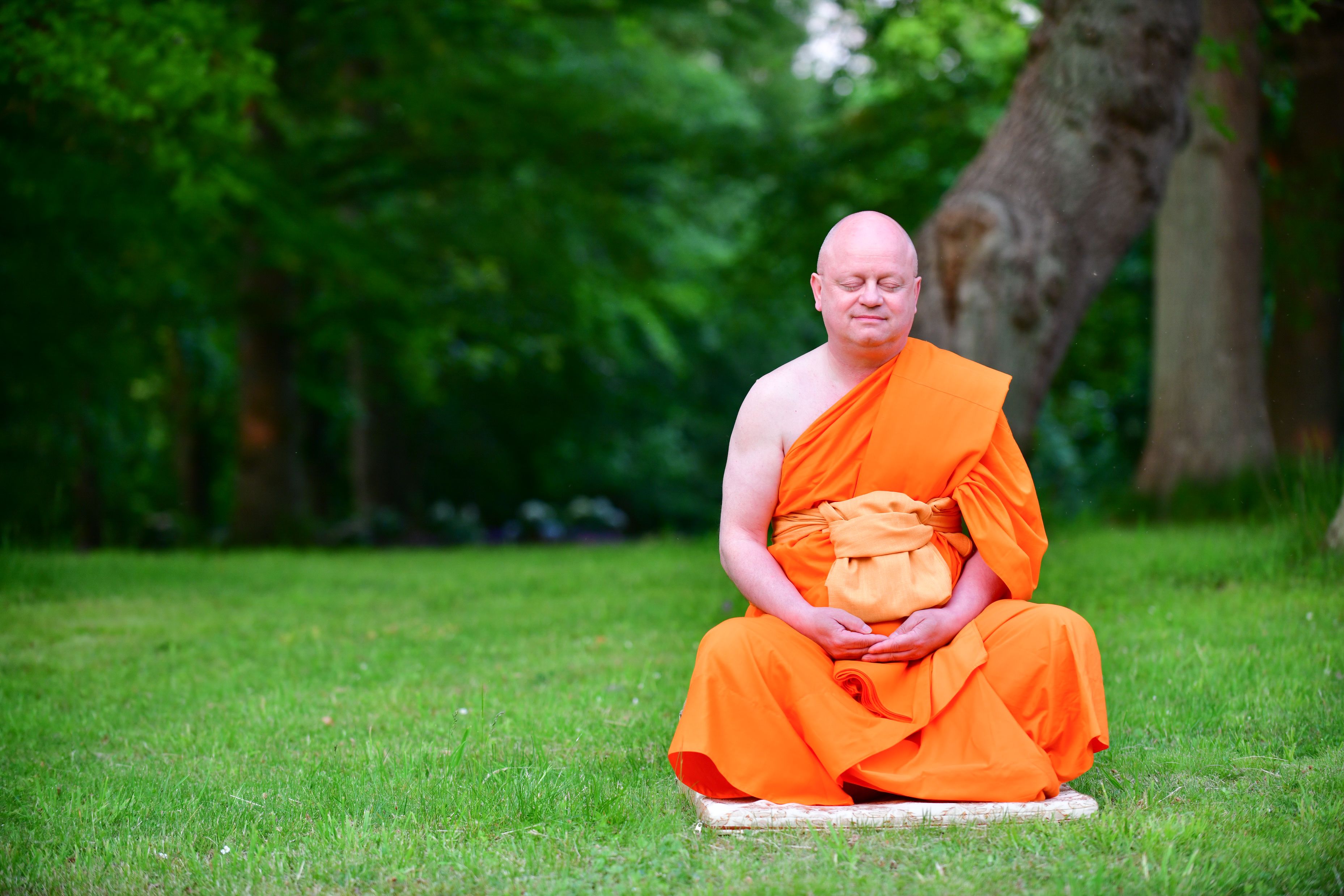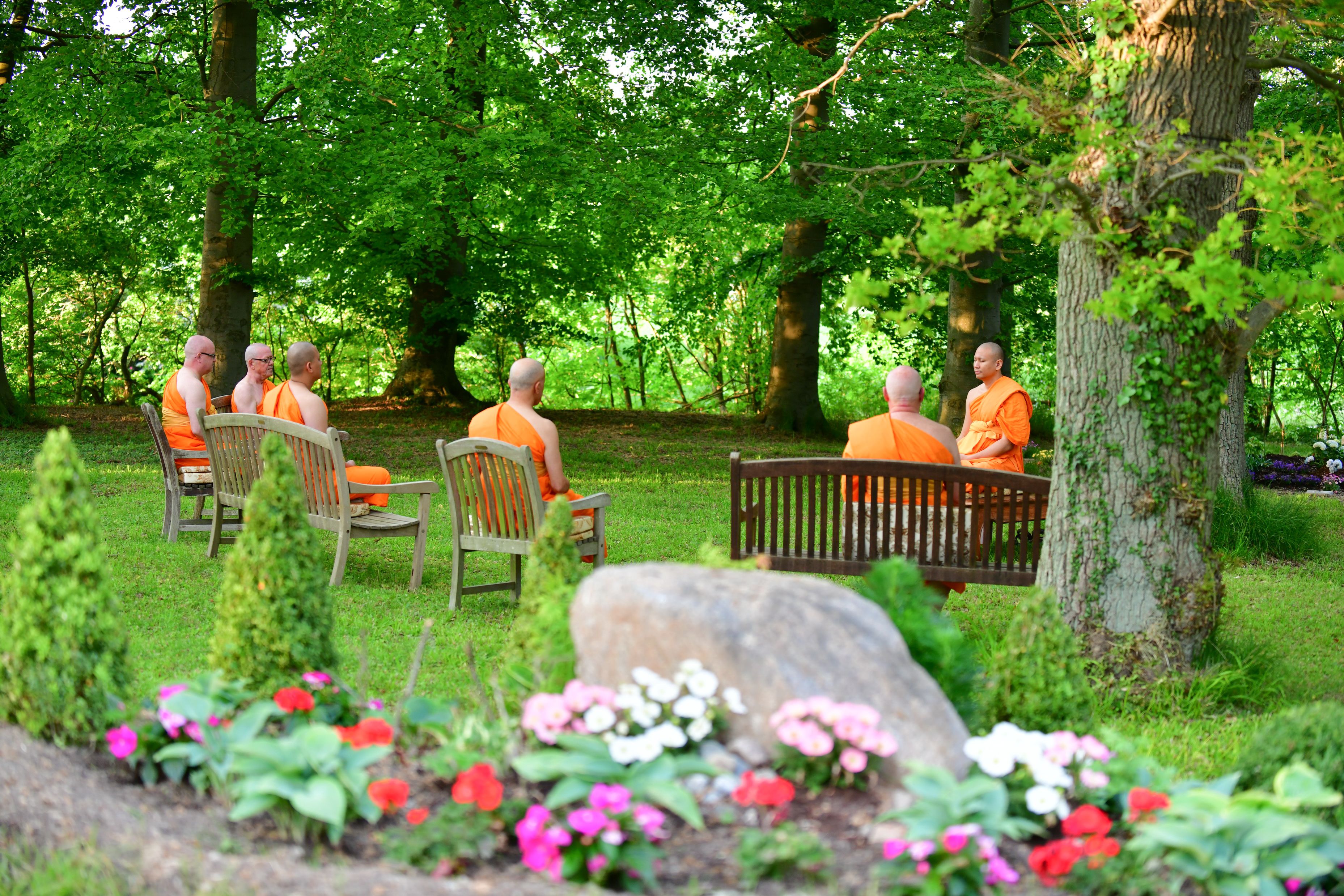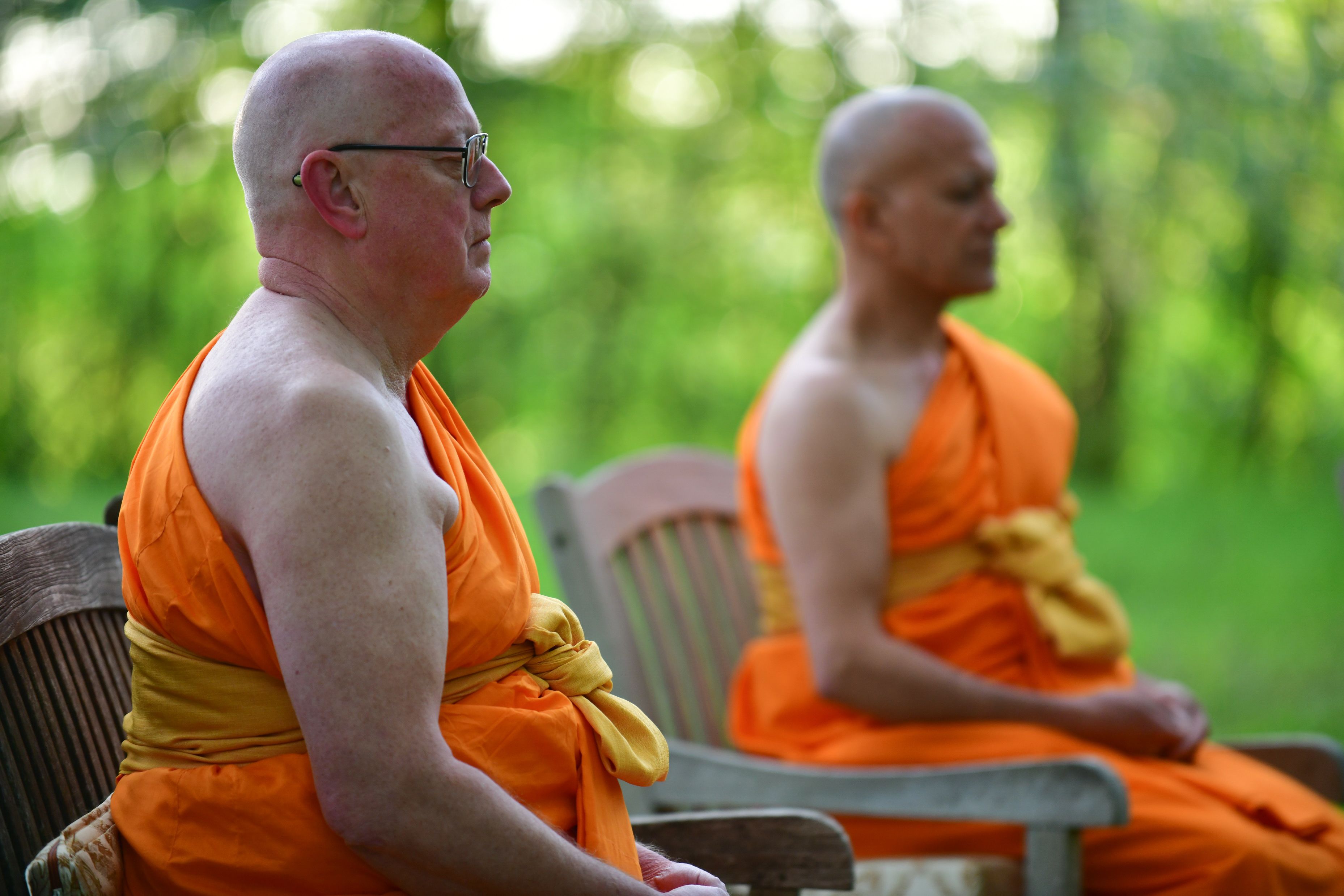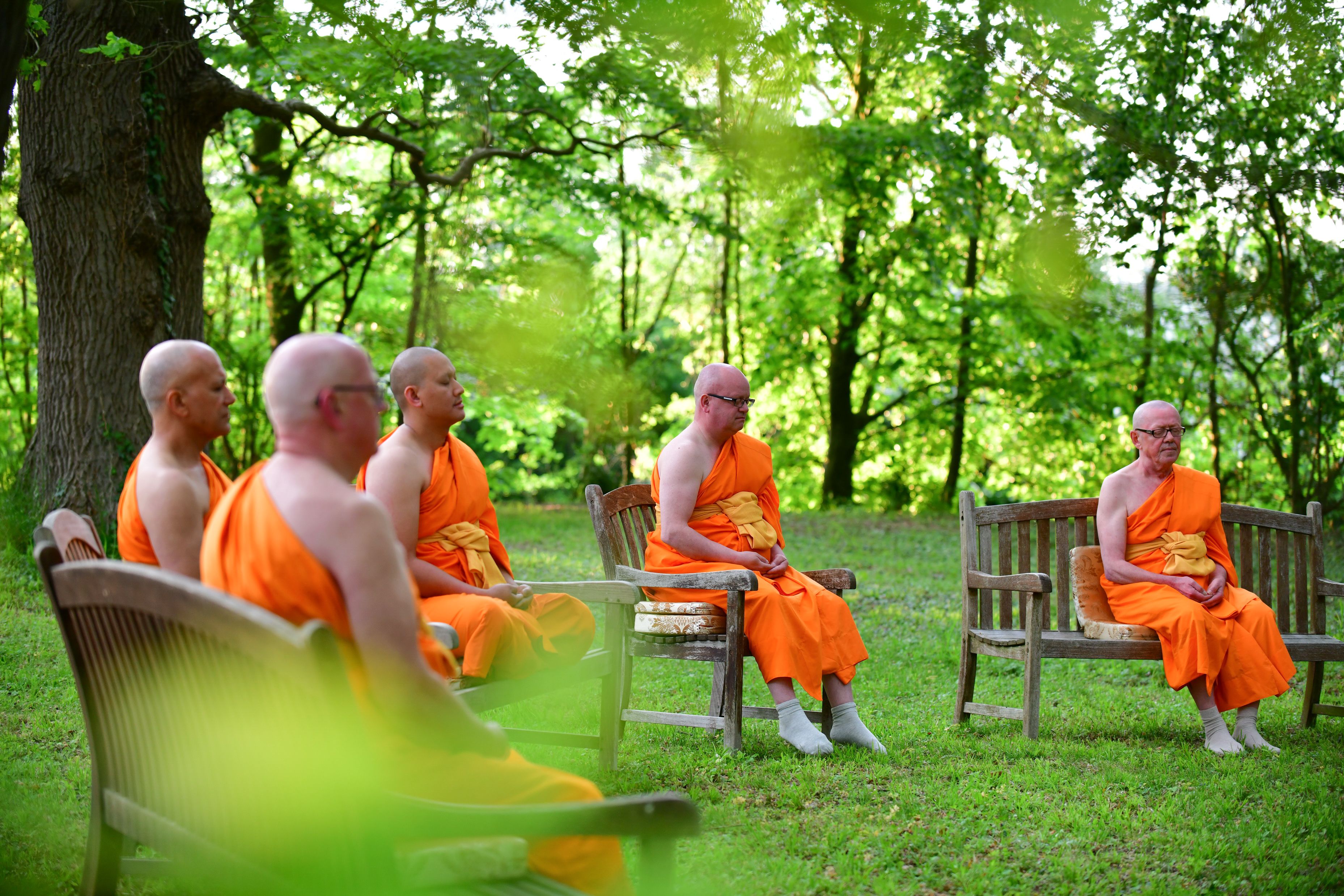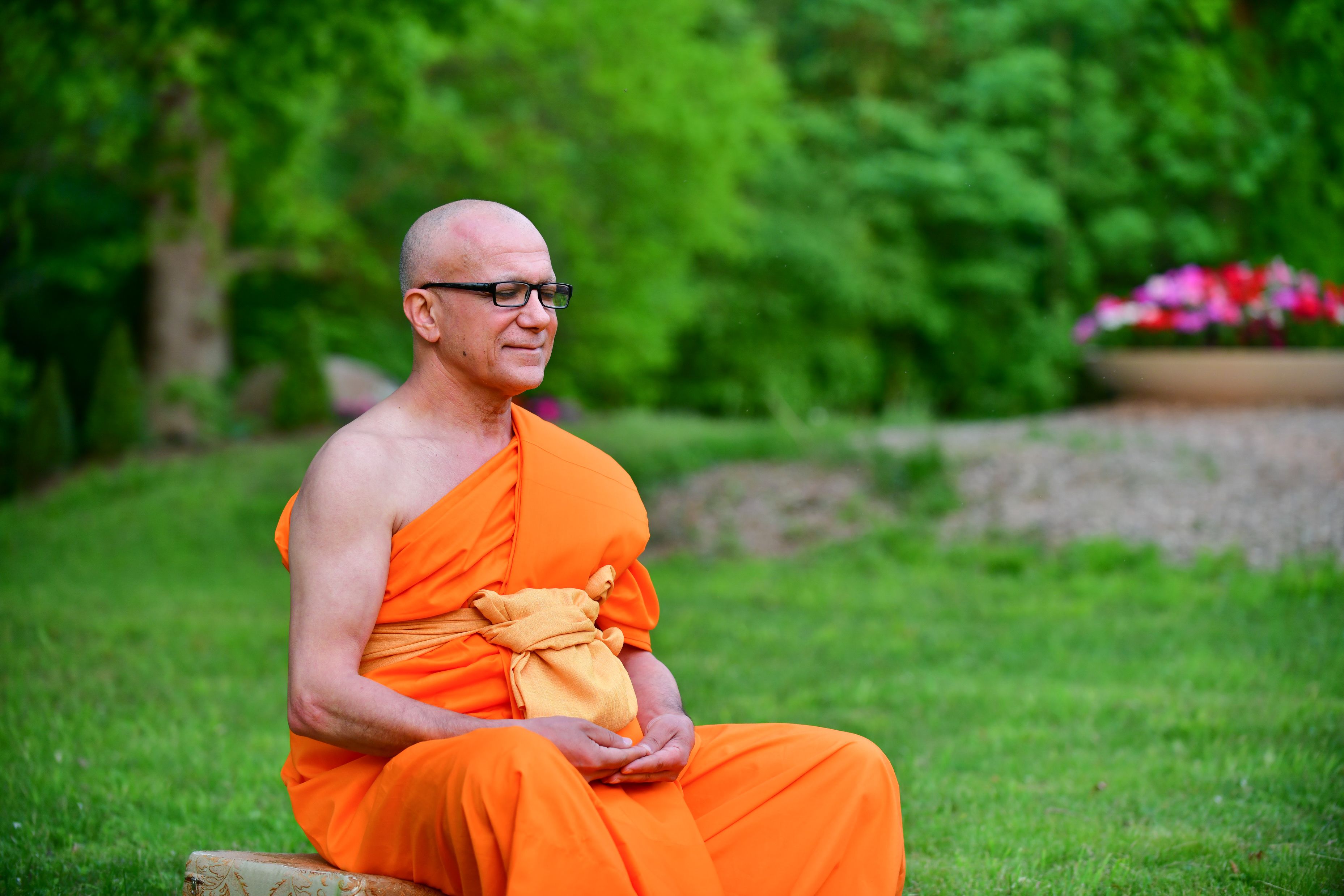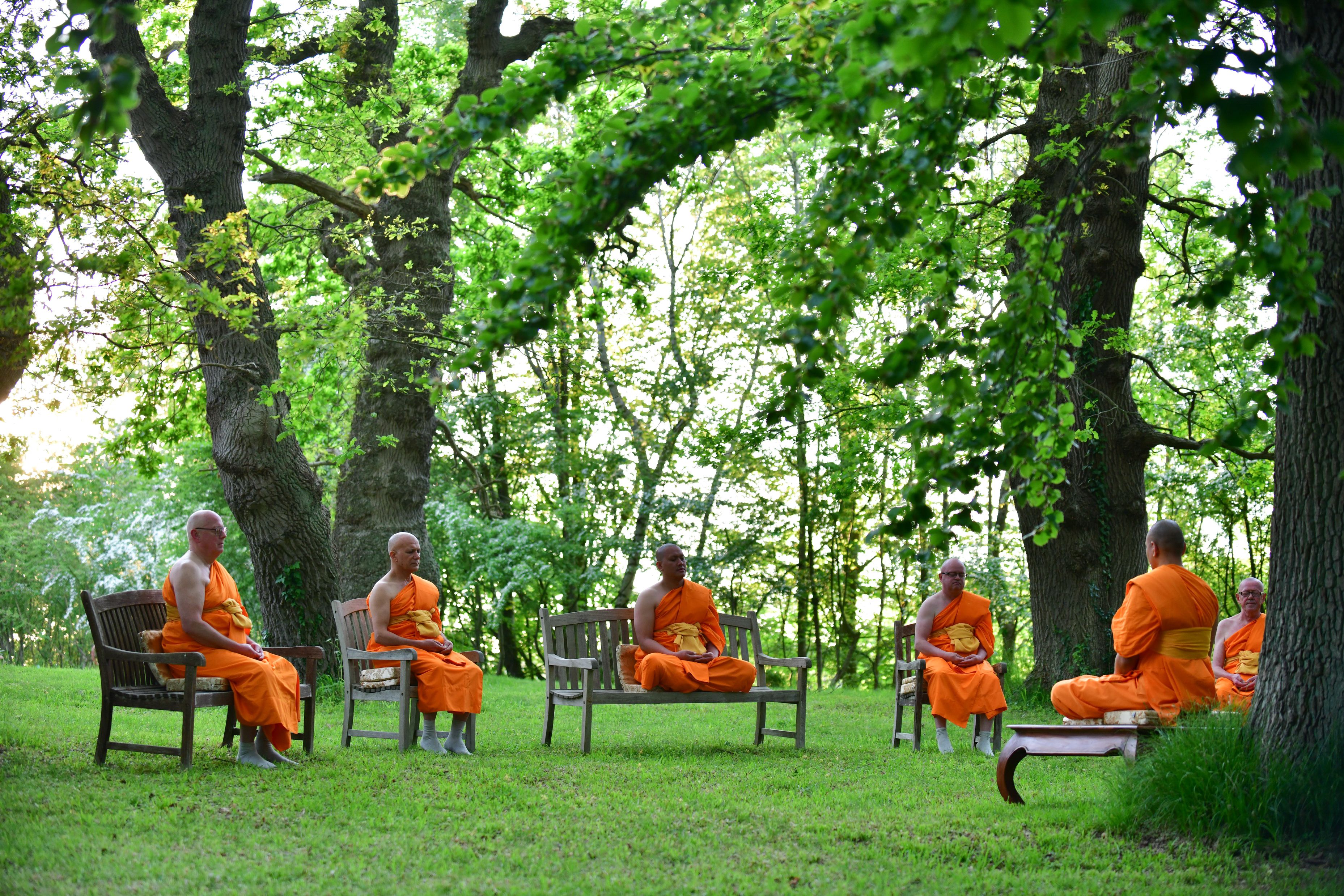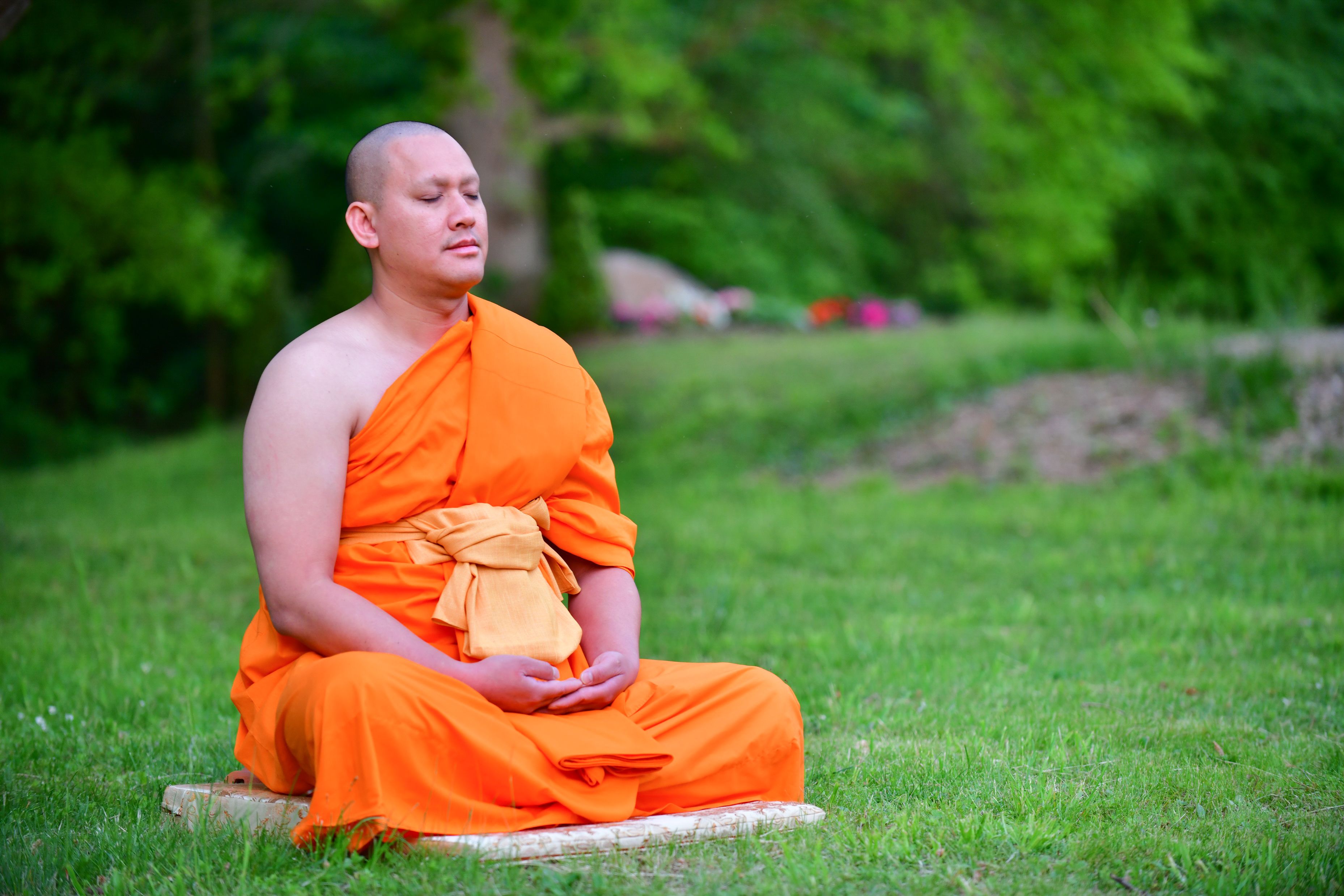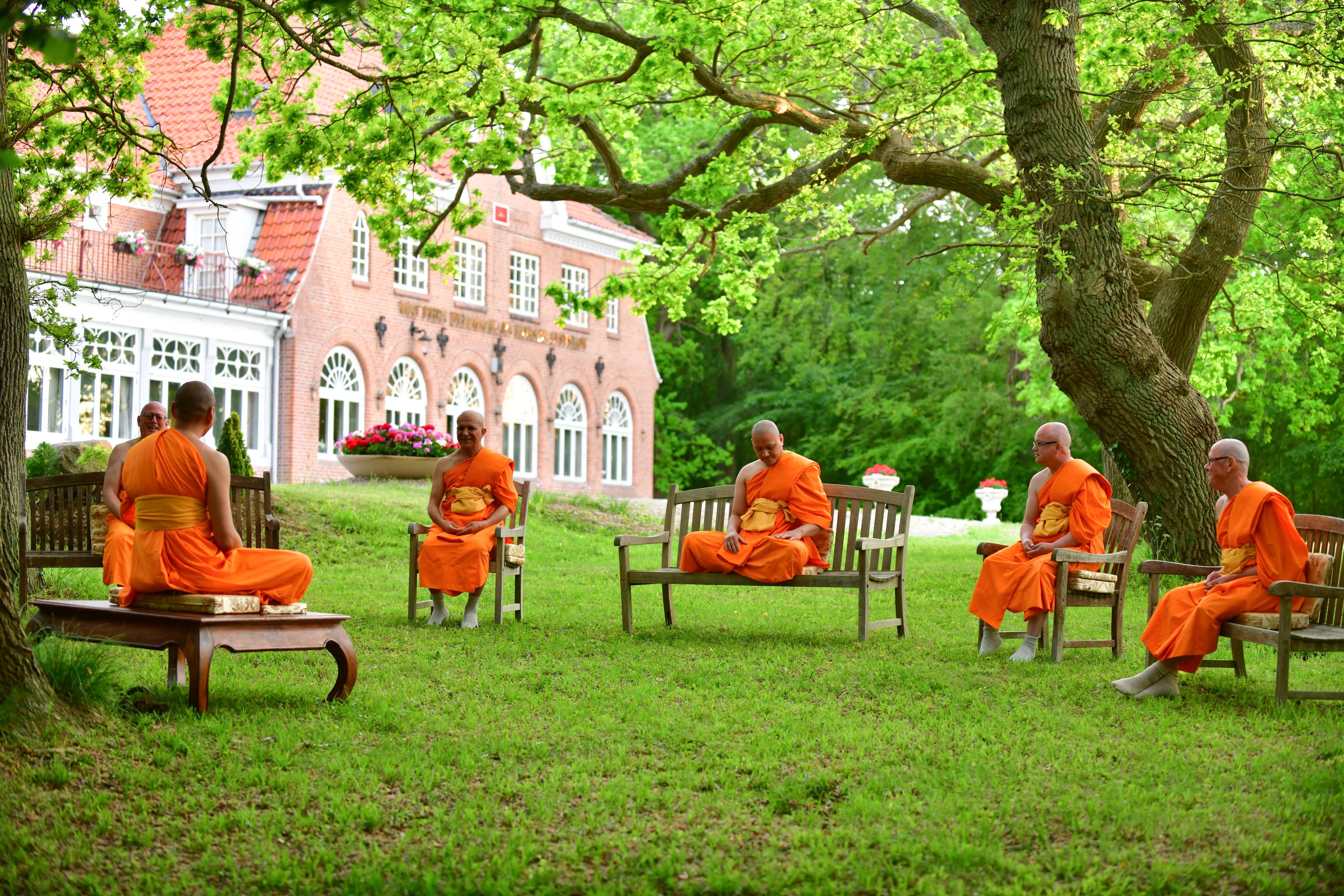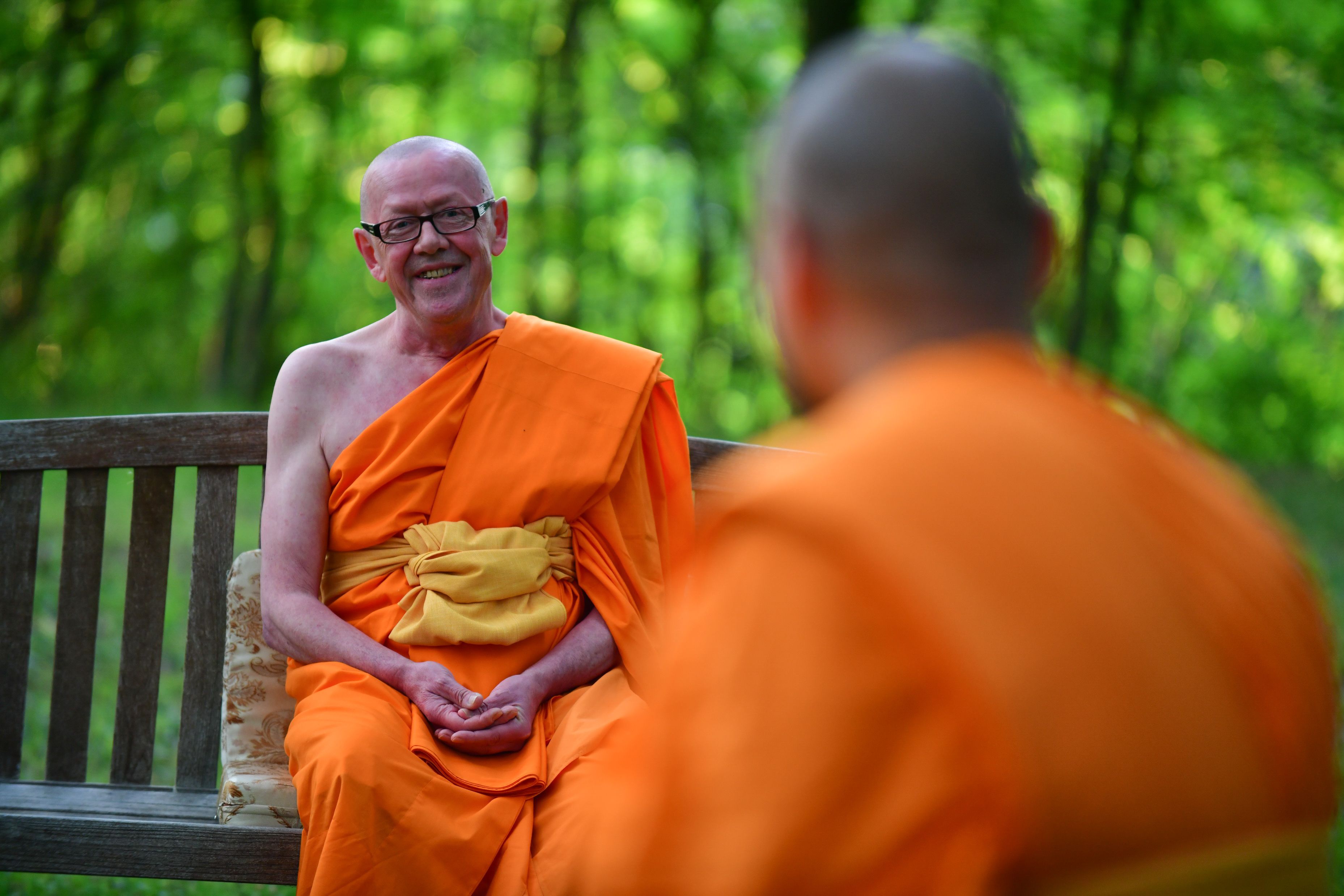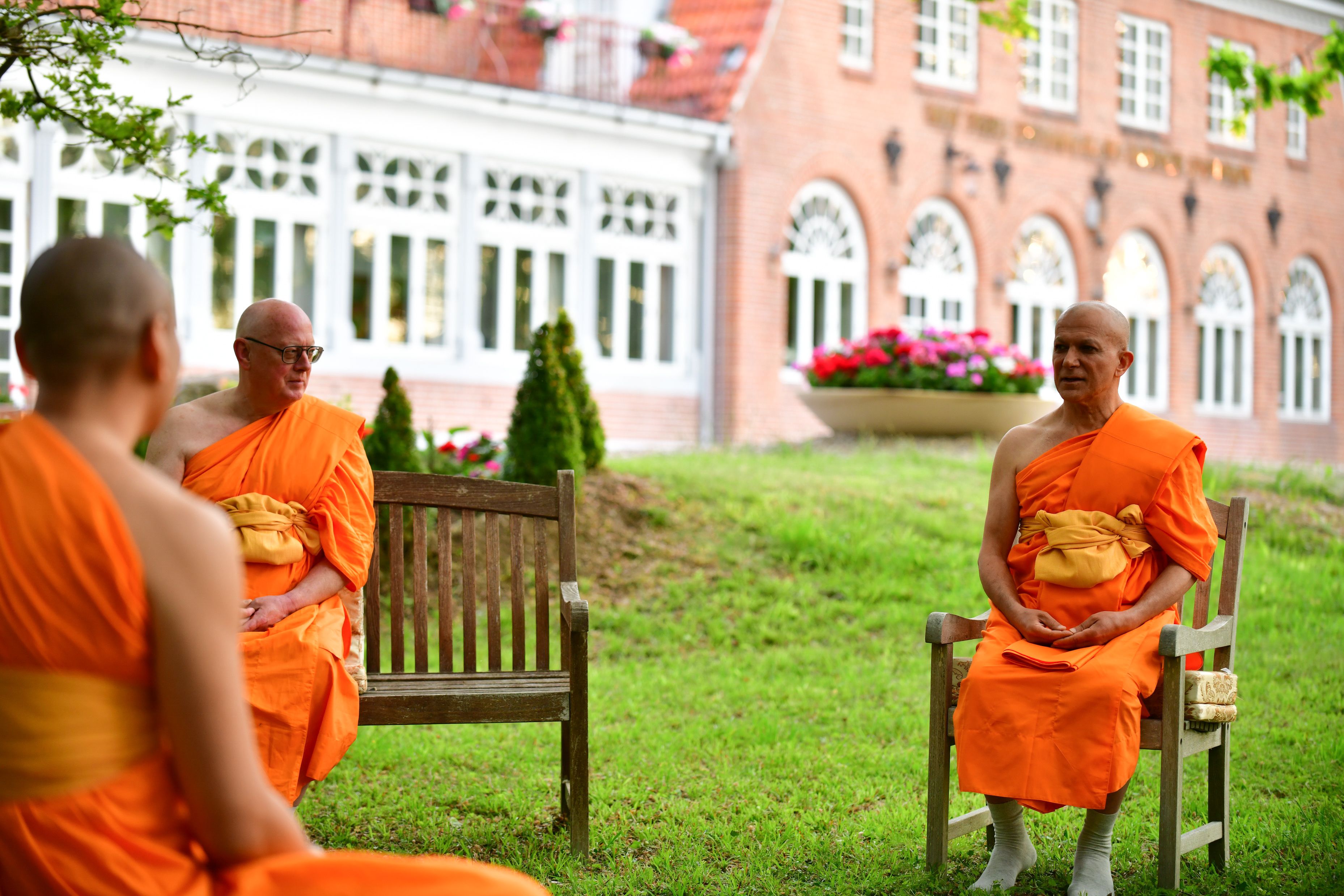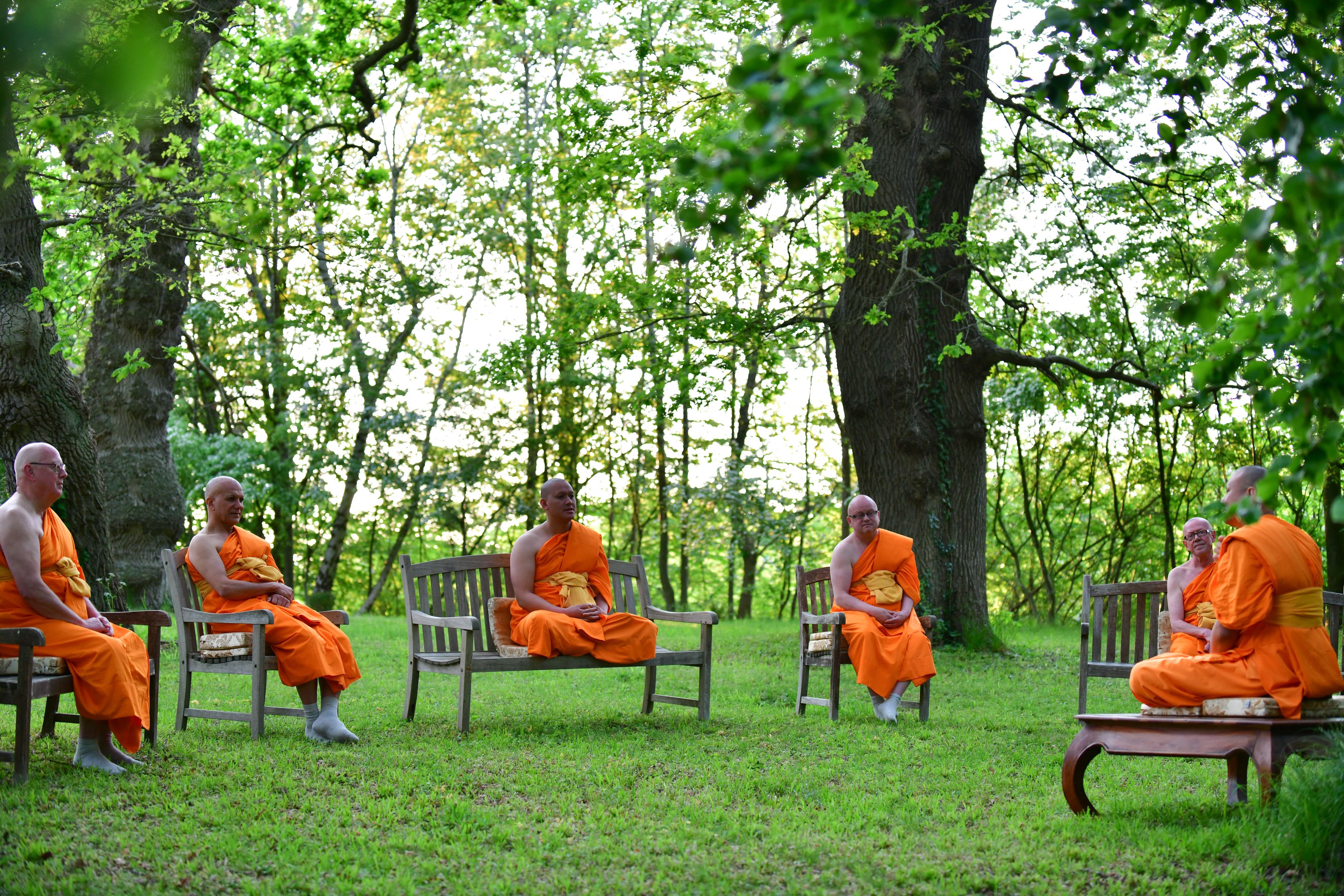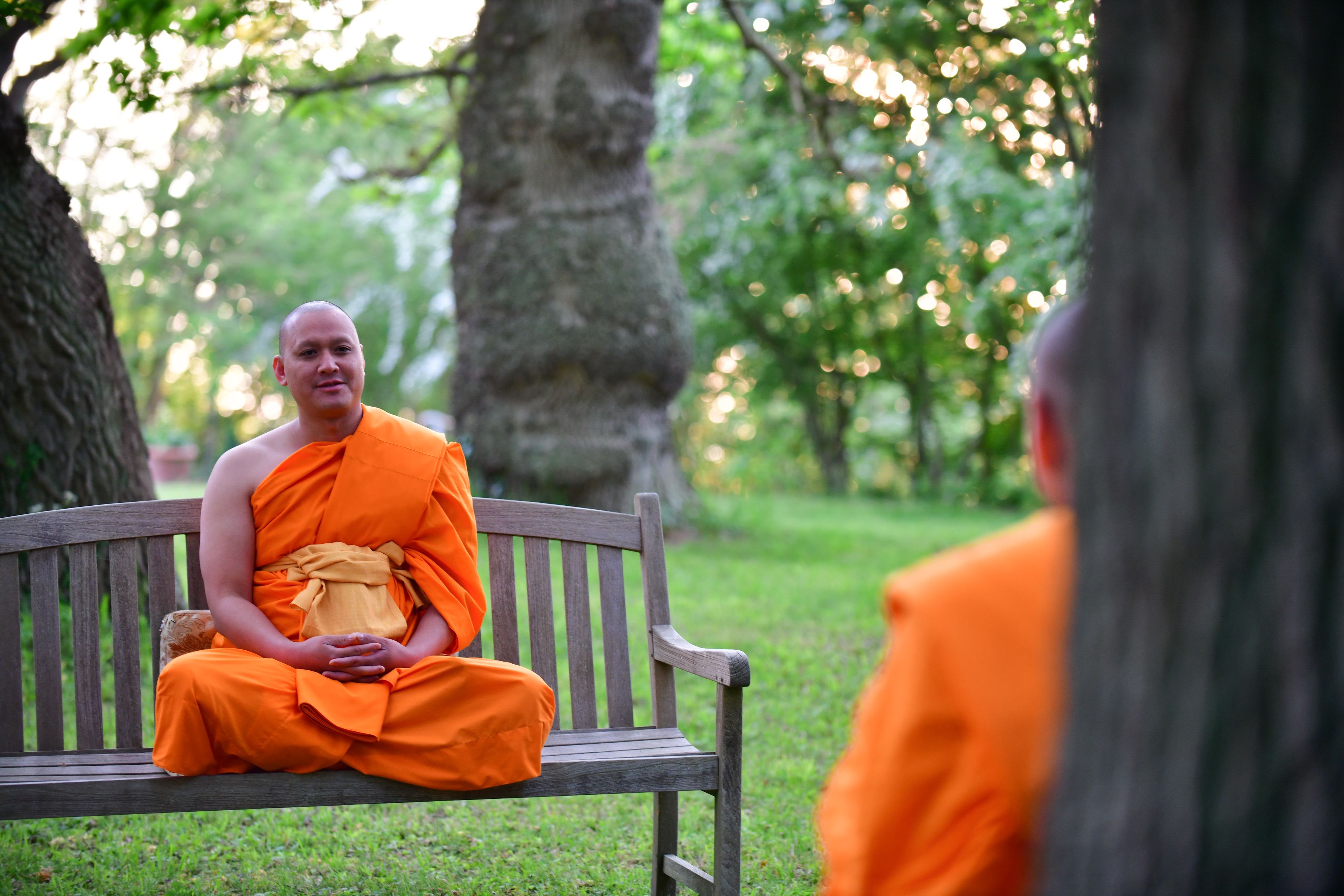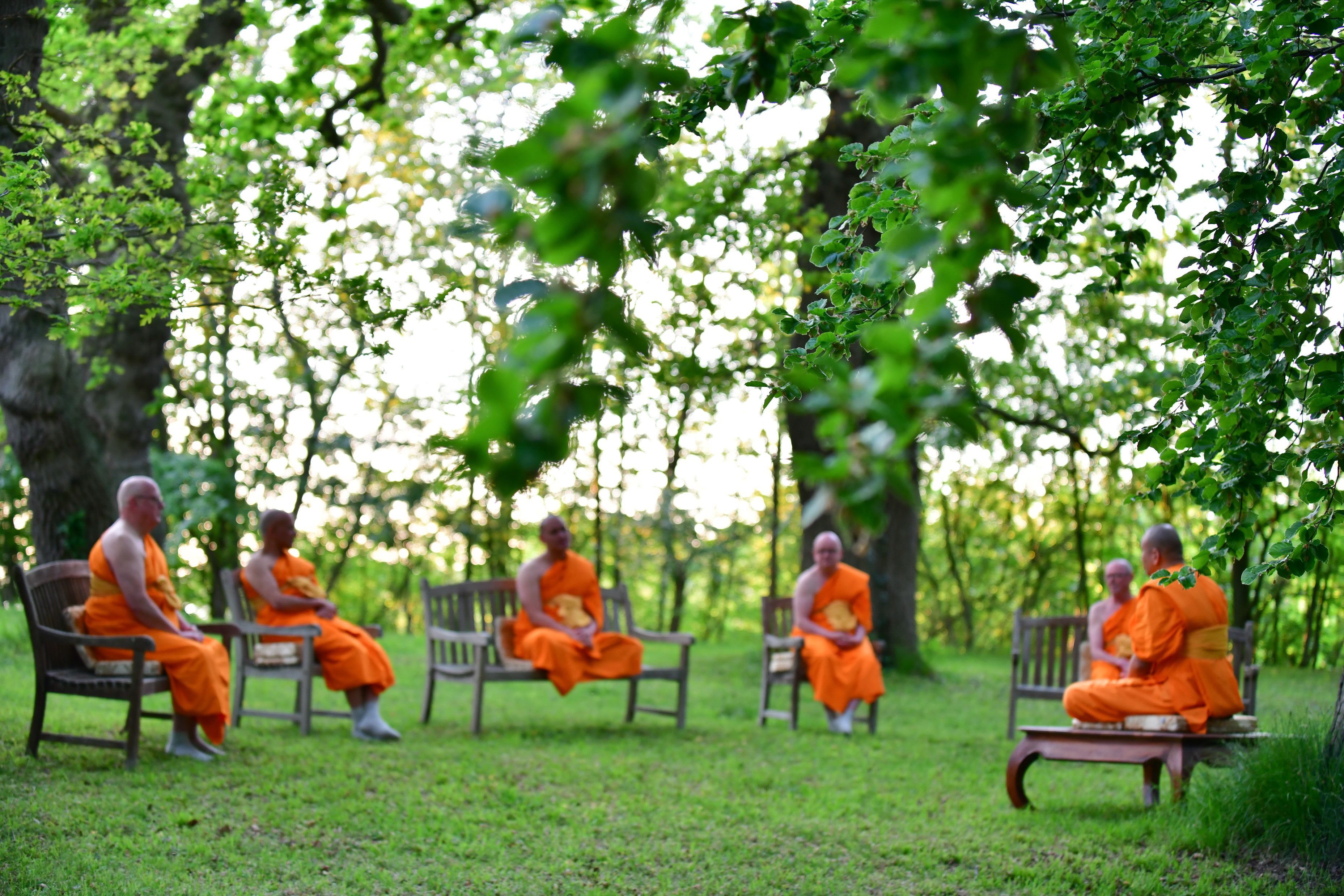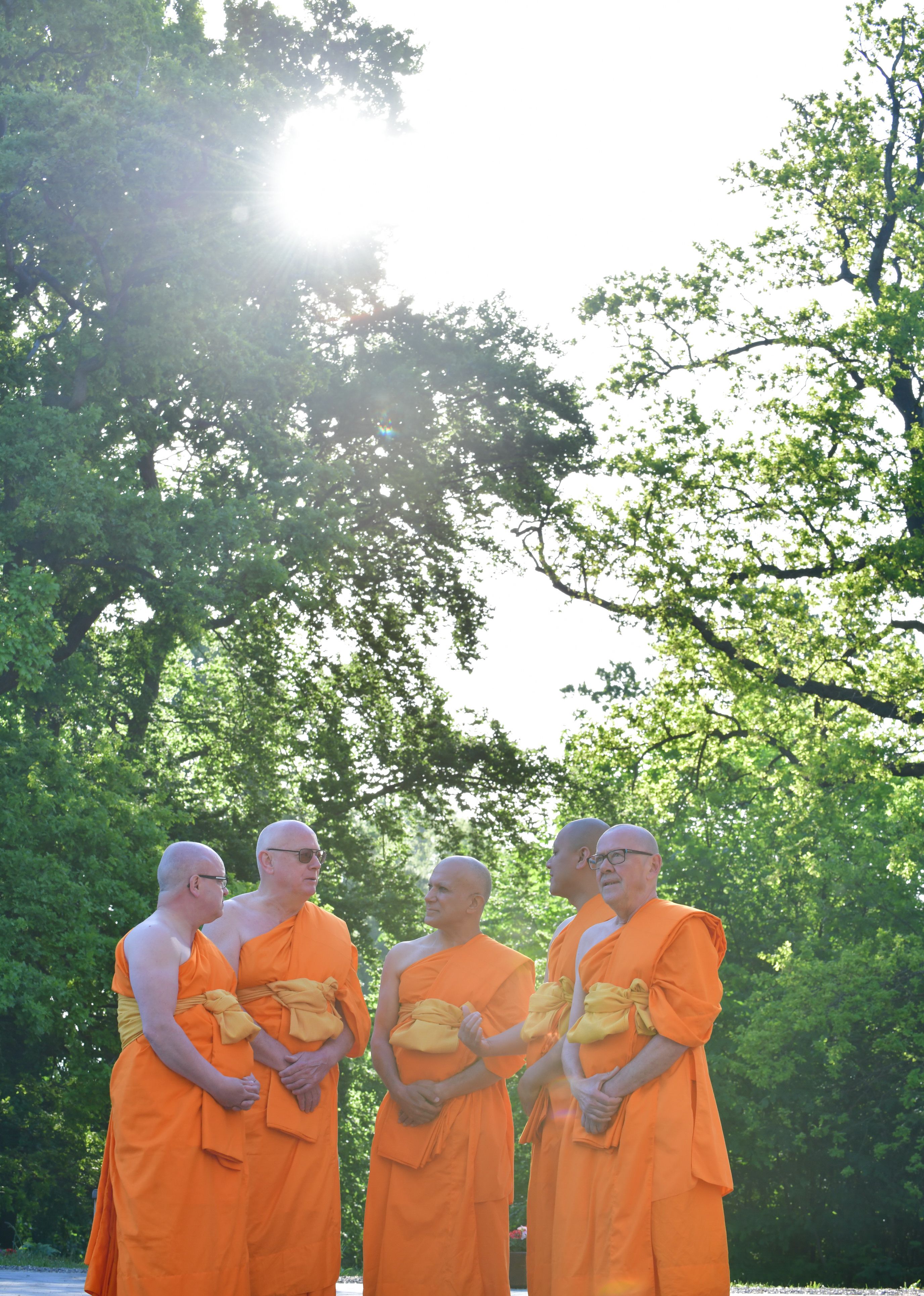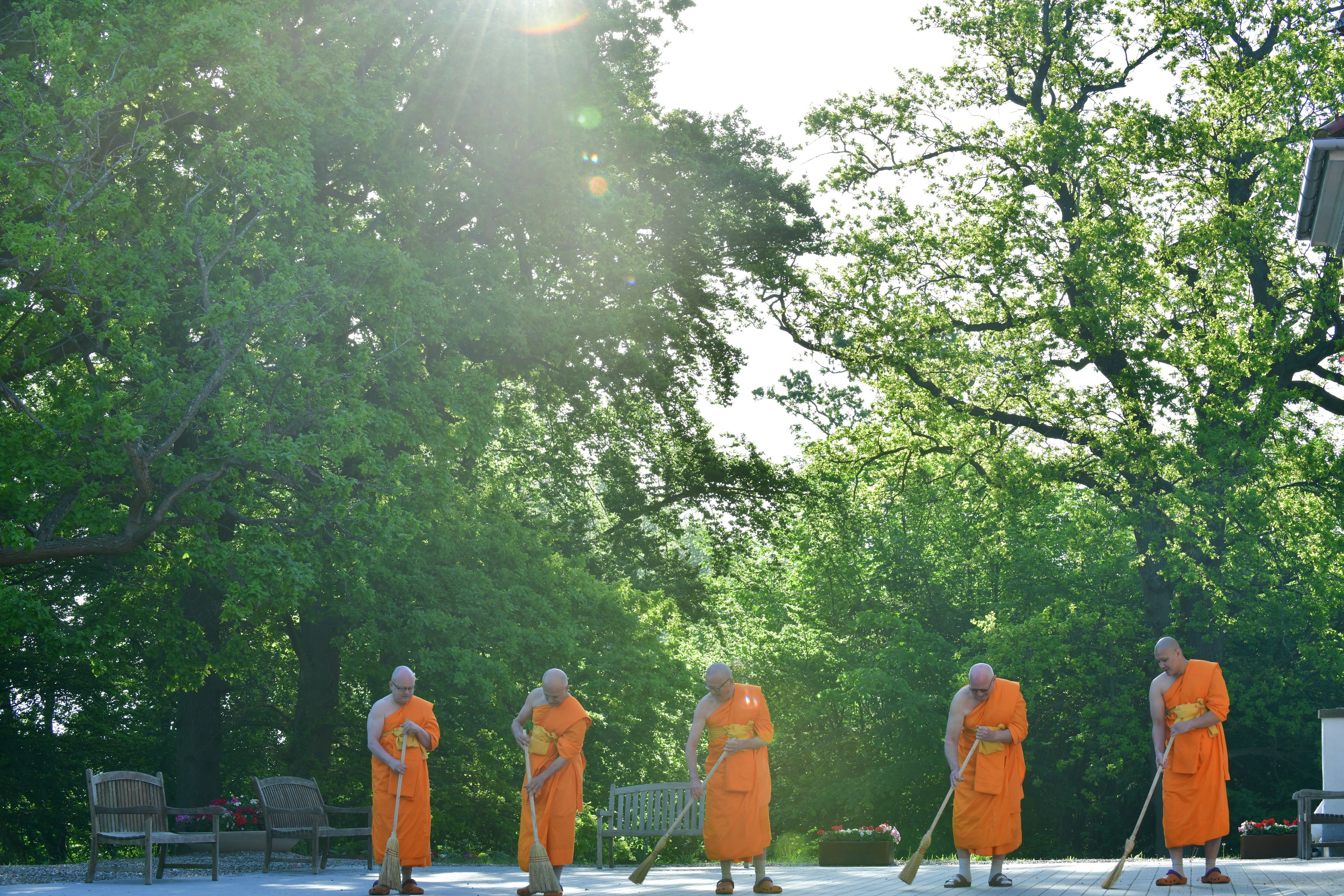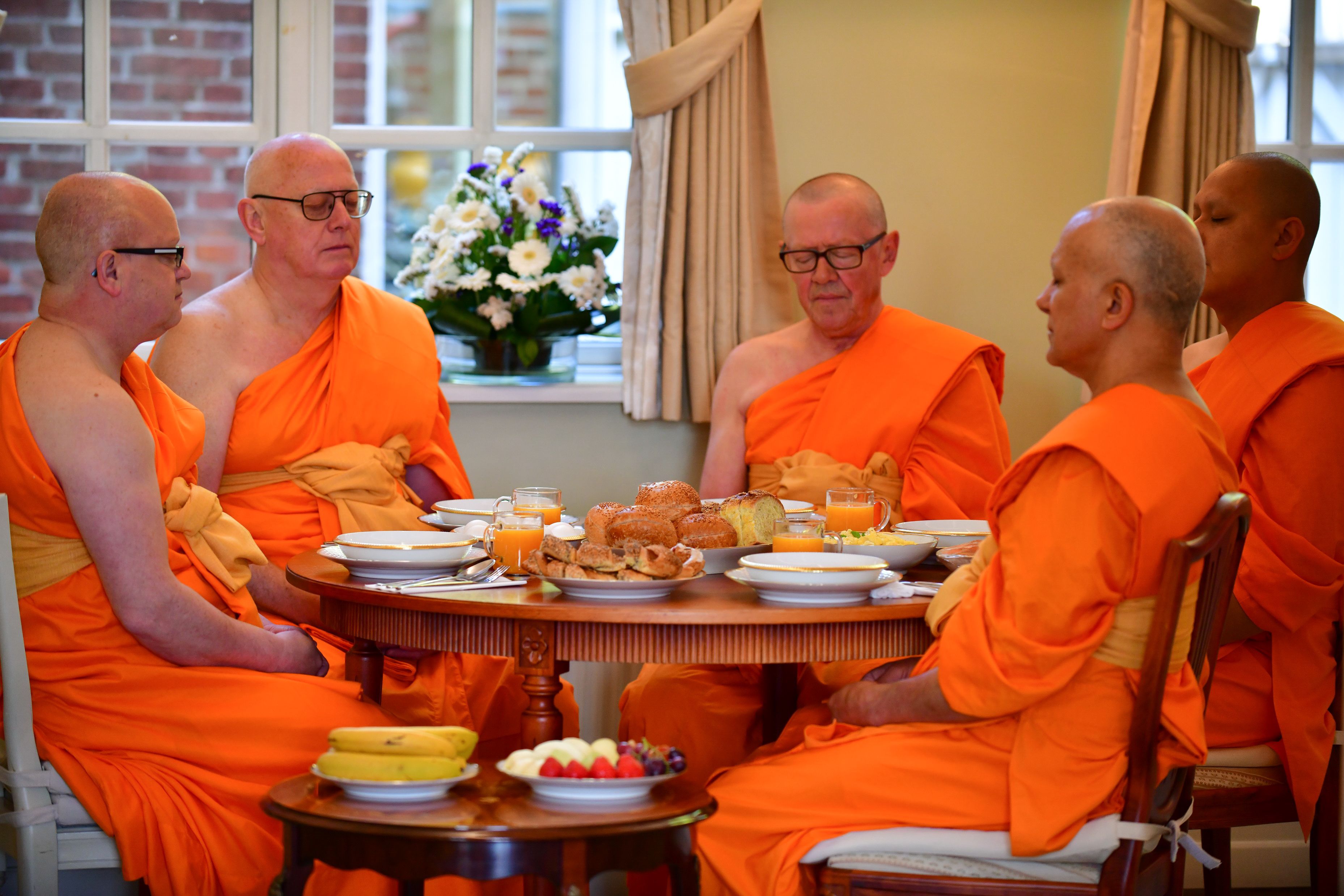Ordinationsprogram på TV2 Øst
Hair Clipping Ceremony
Hair clipping is not just a ceremony. It symbolizes the affirmation of decision and commitment to take part in monastic life and renunciation of lay’s life. It represents the detachment from physical beauty and appearance and dedication in monastic life toward spiritual goals.
Therefore, ordinand shall request for forgiveness from anyone one possibly can. Possible, any person may intentionally or unintentionally offend others either with or without their acknowledgement. Asking for forgiveness enables one to begin a new life with pure and worry-free mind. Customarily, anyone who hears the joyous news, will ask for and grant forgiveness in return, as well as rejoice in one’s decision.
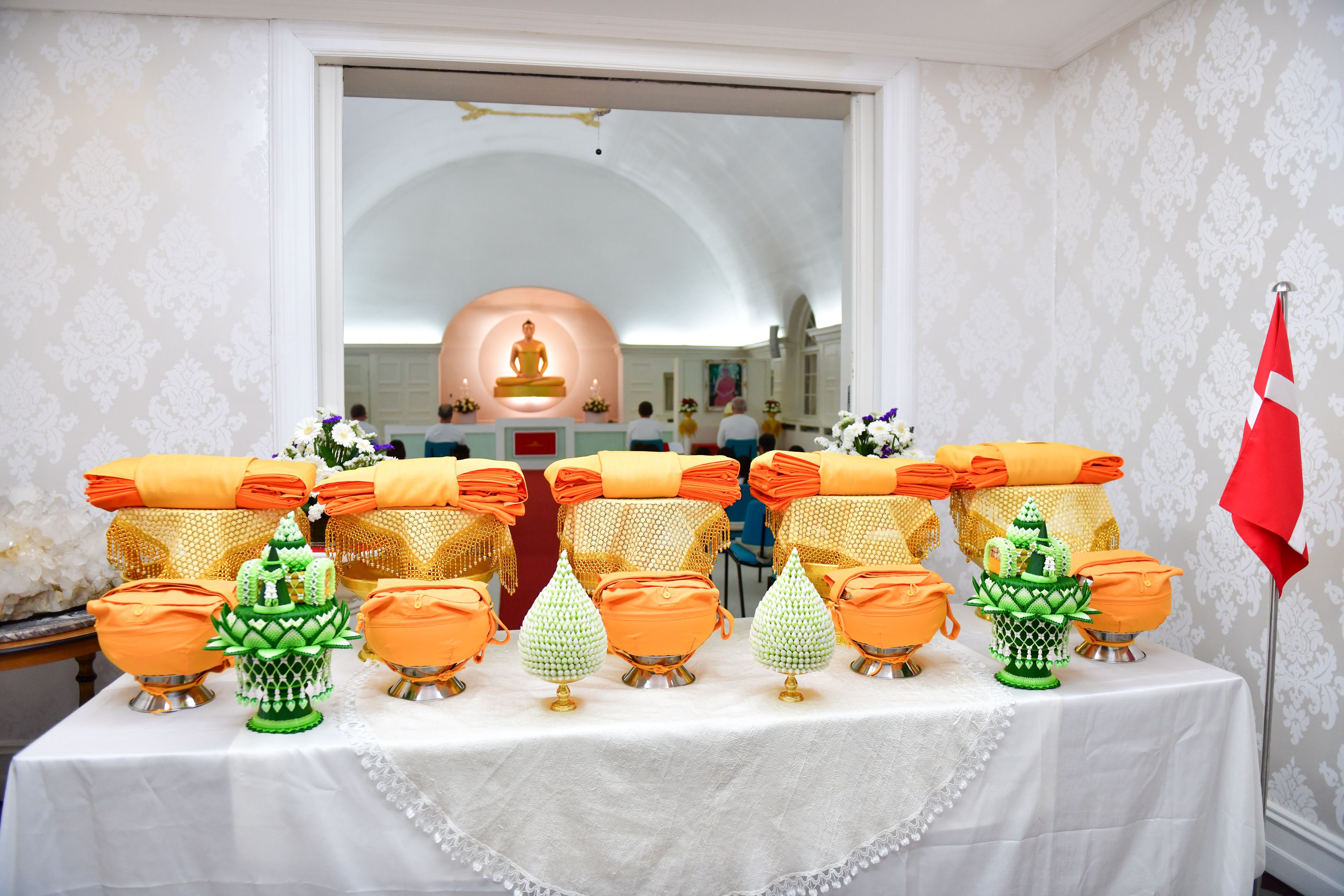
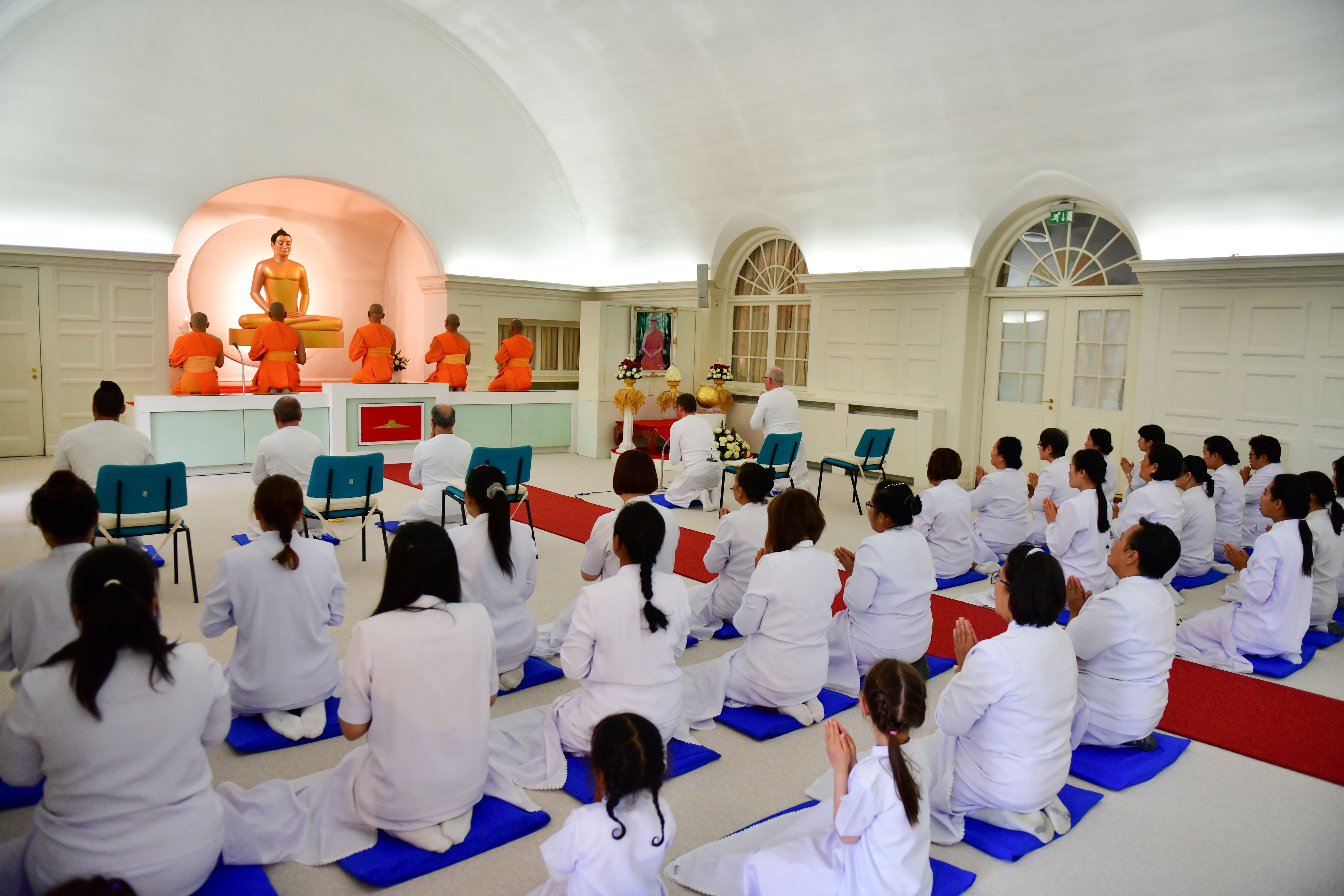
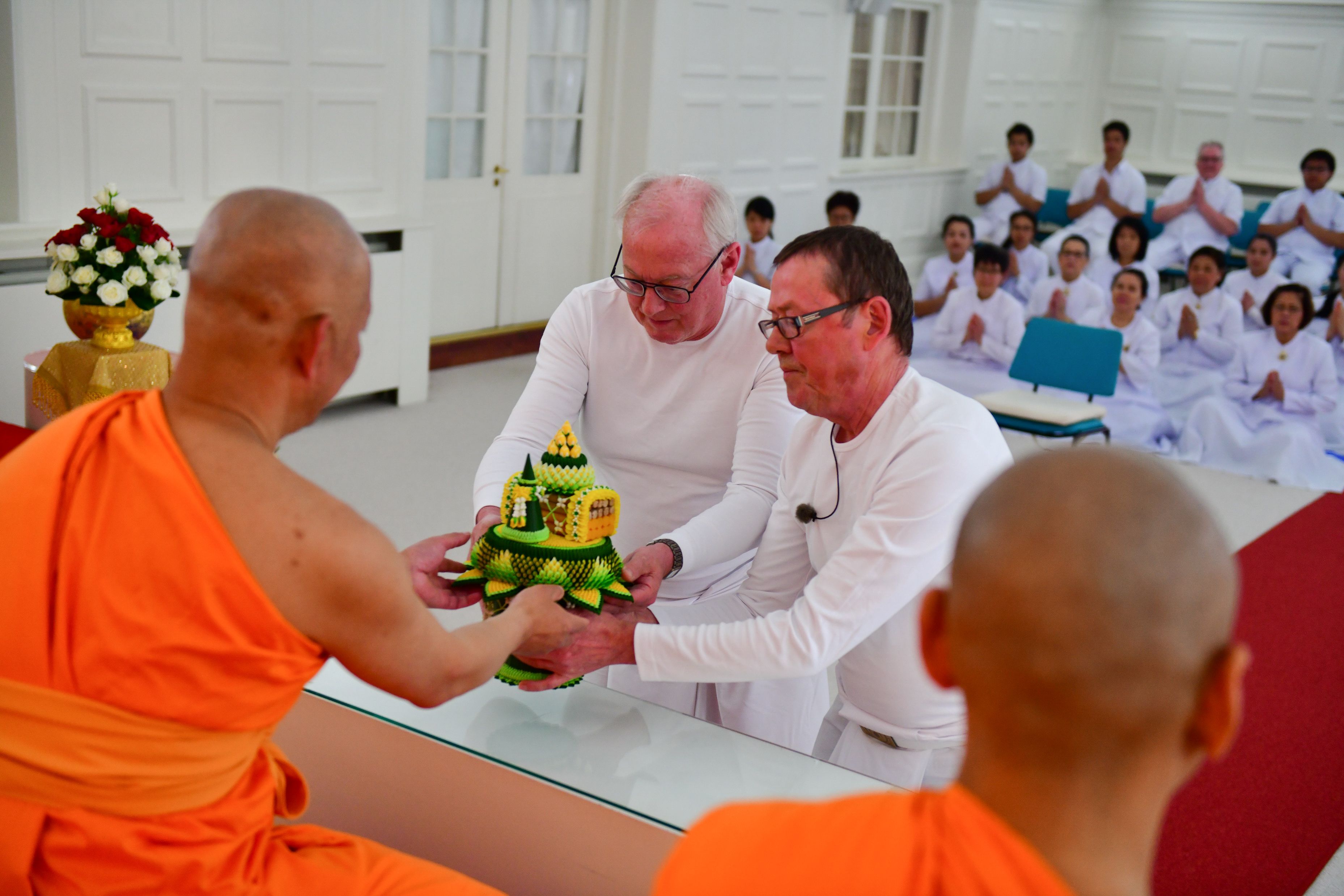
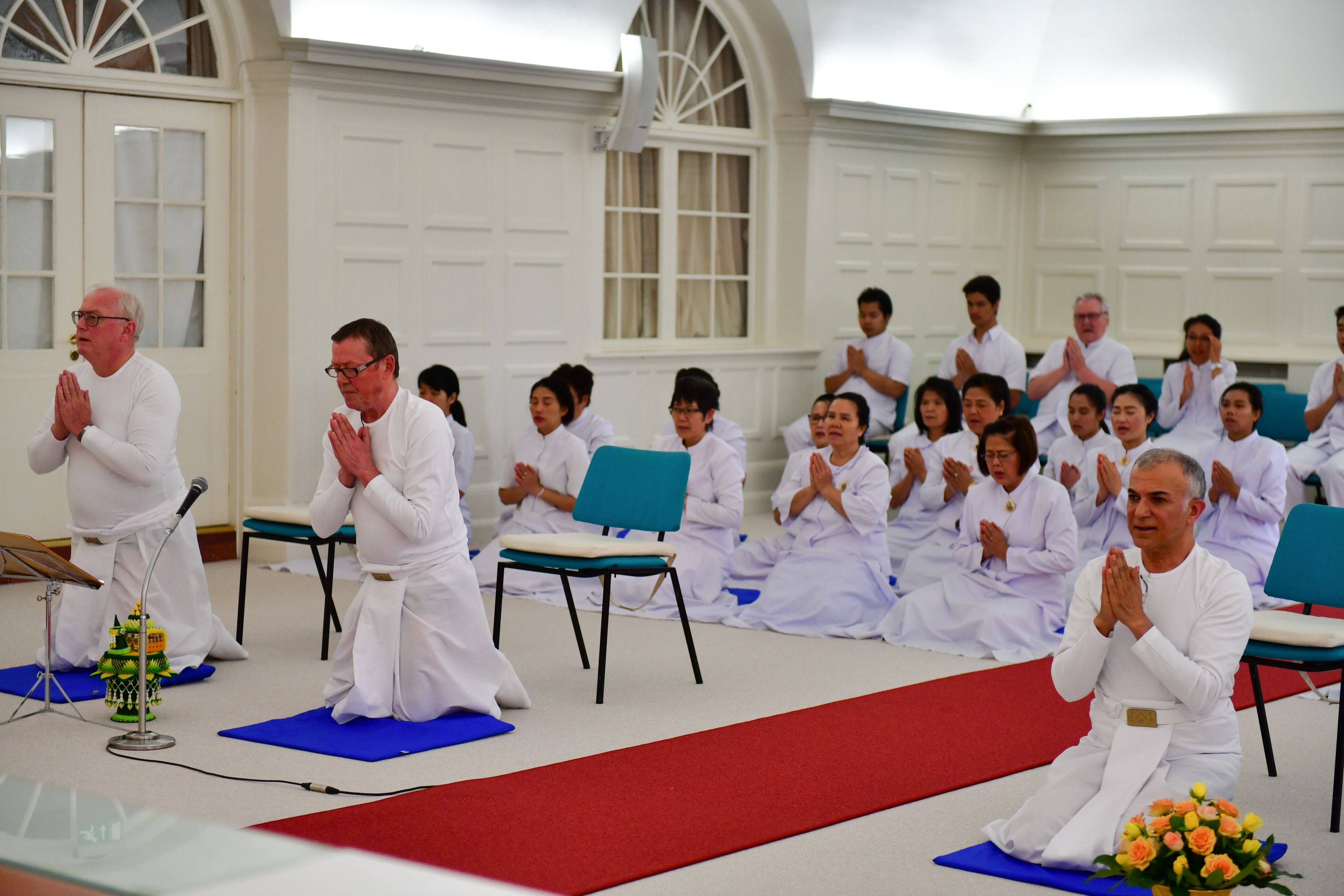
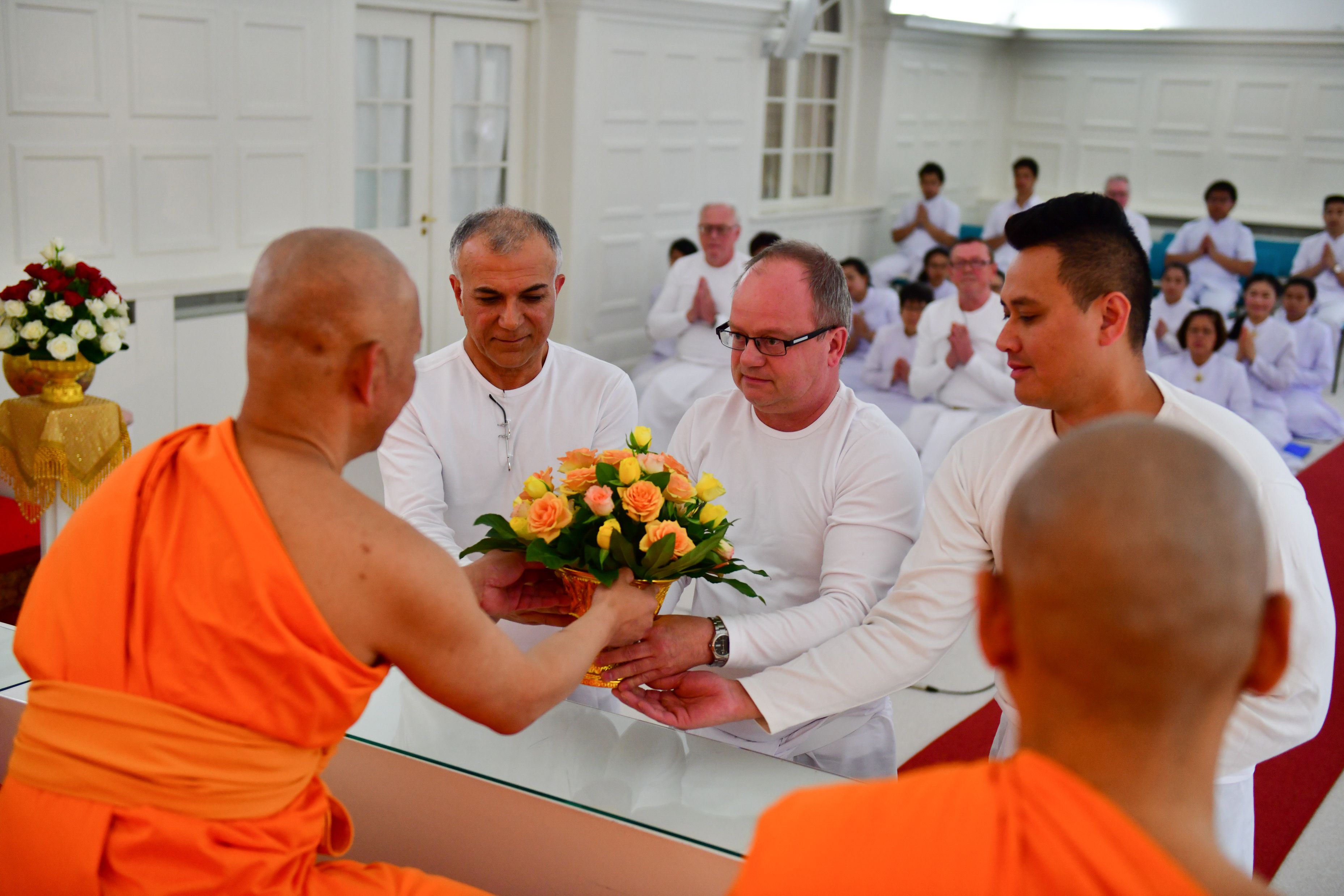
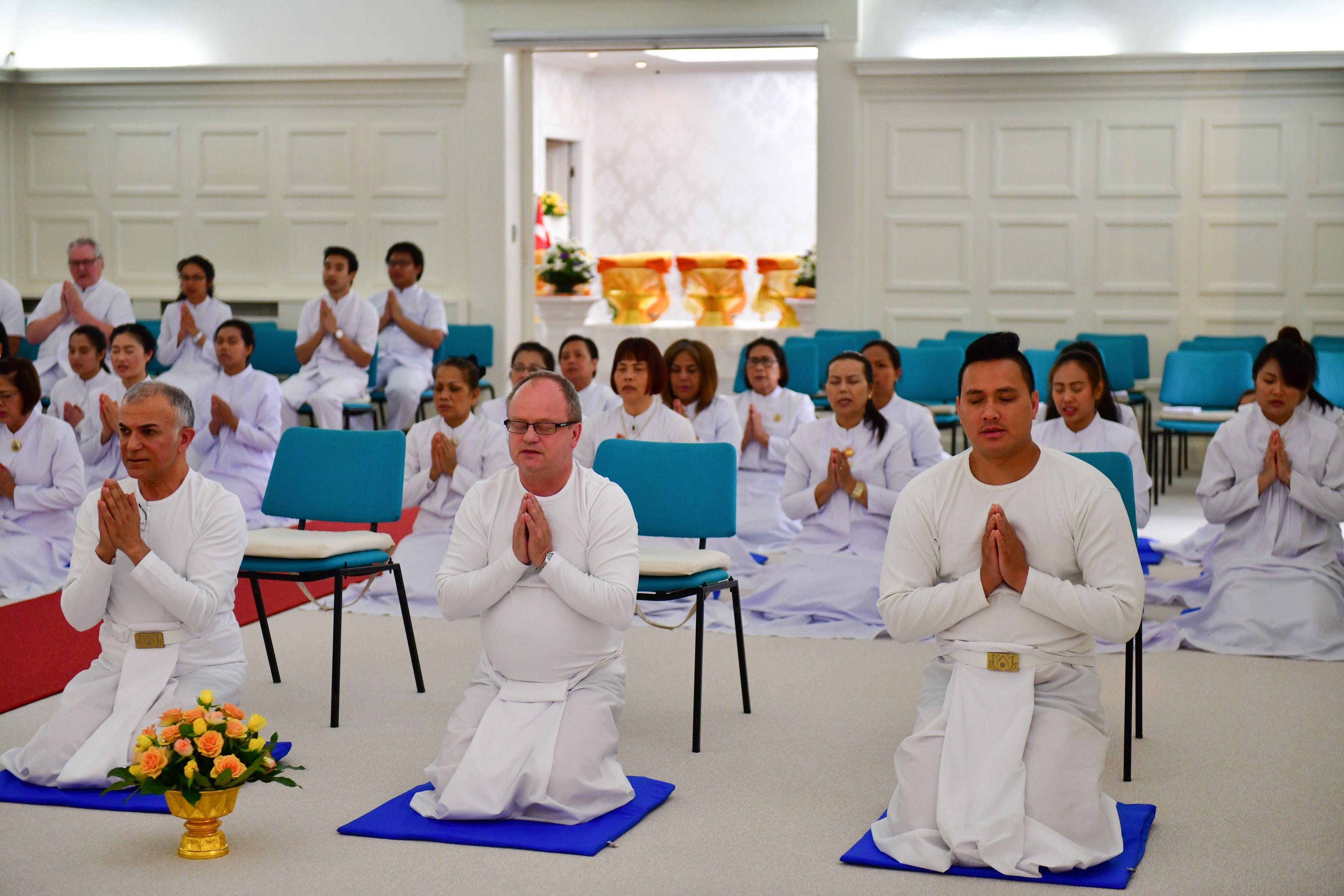
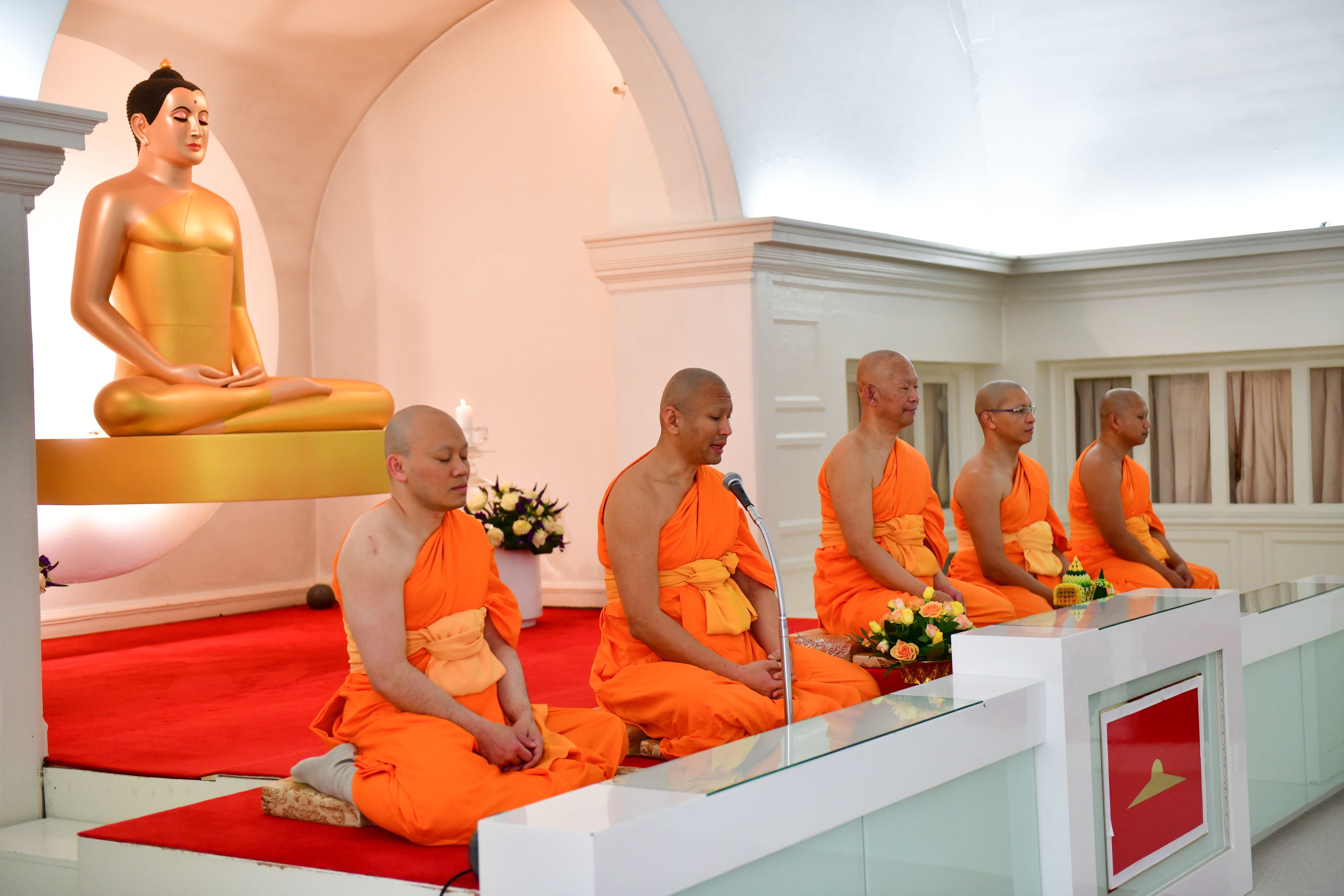
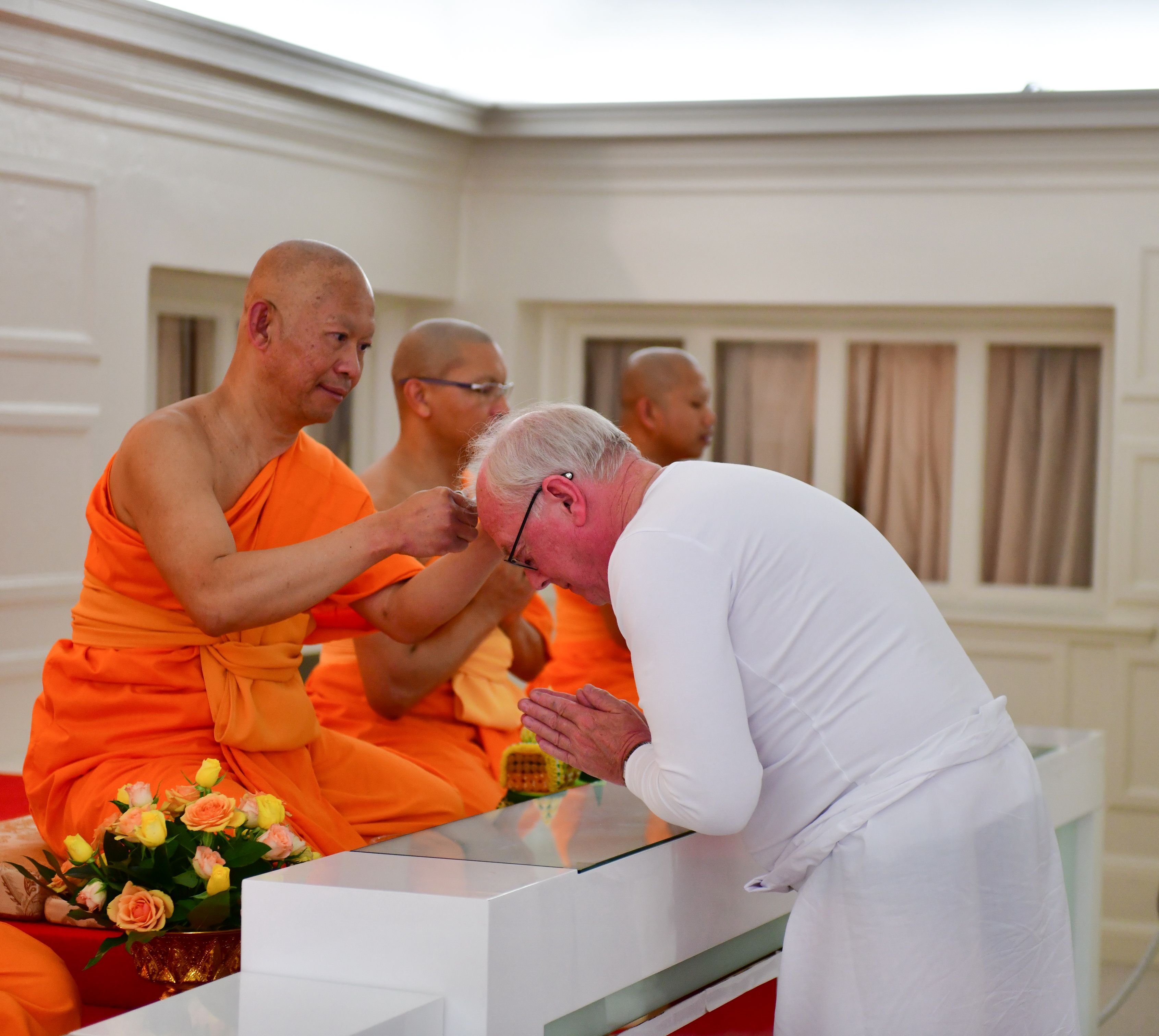
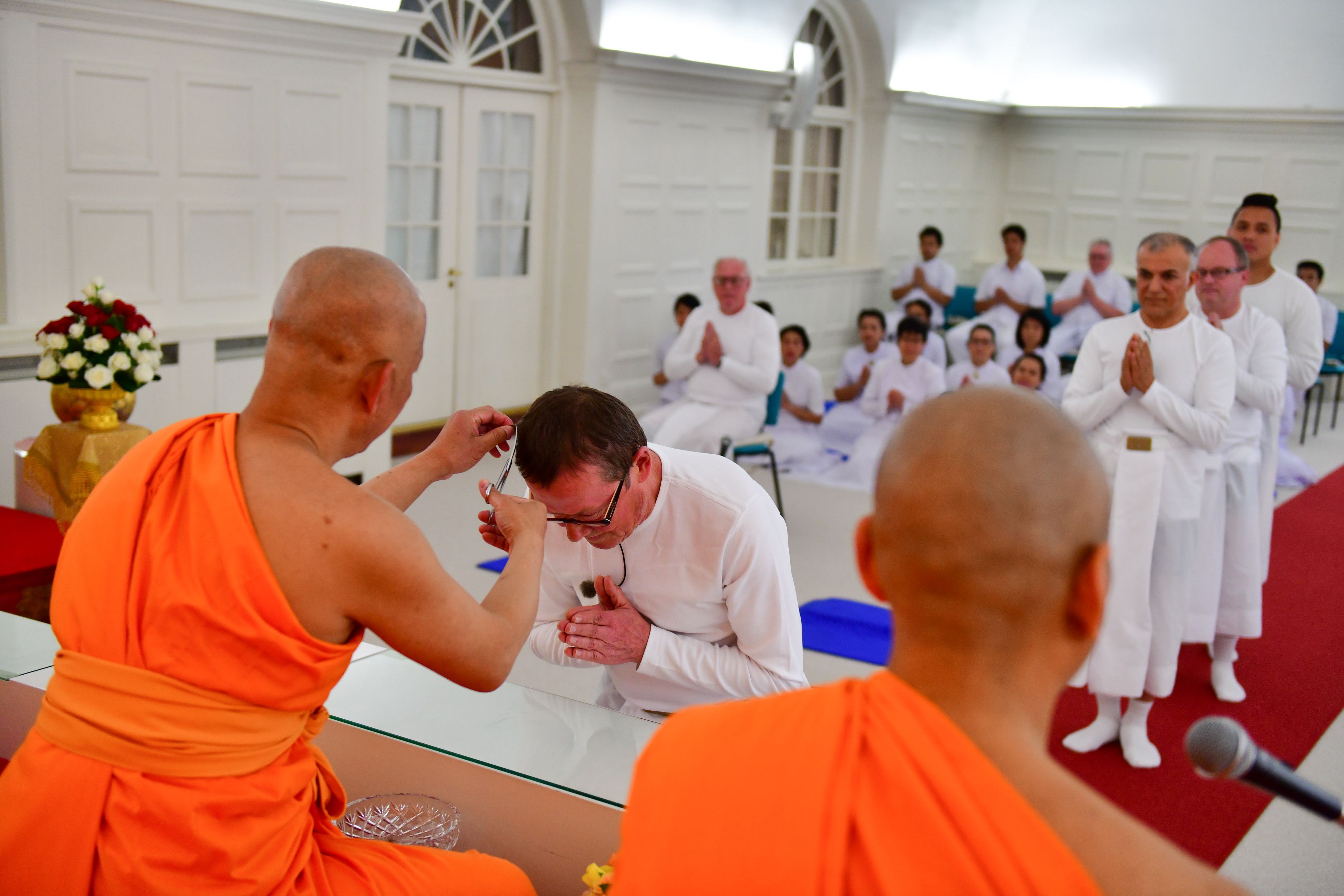
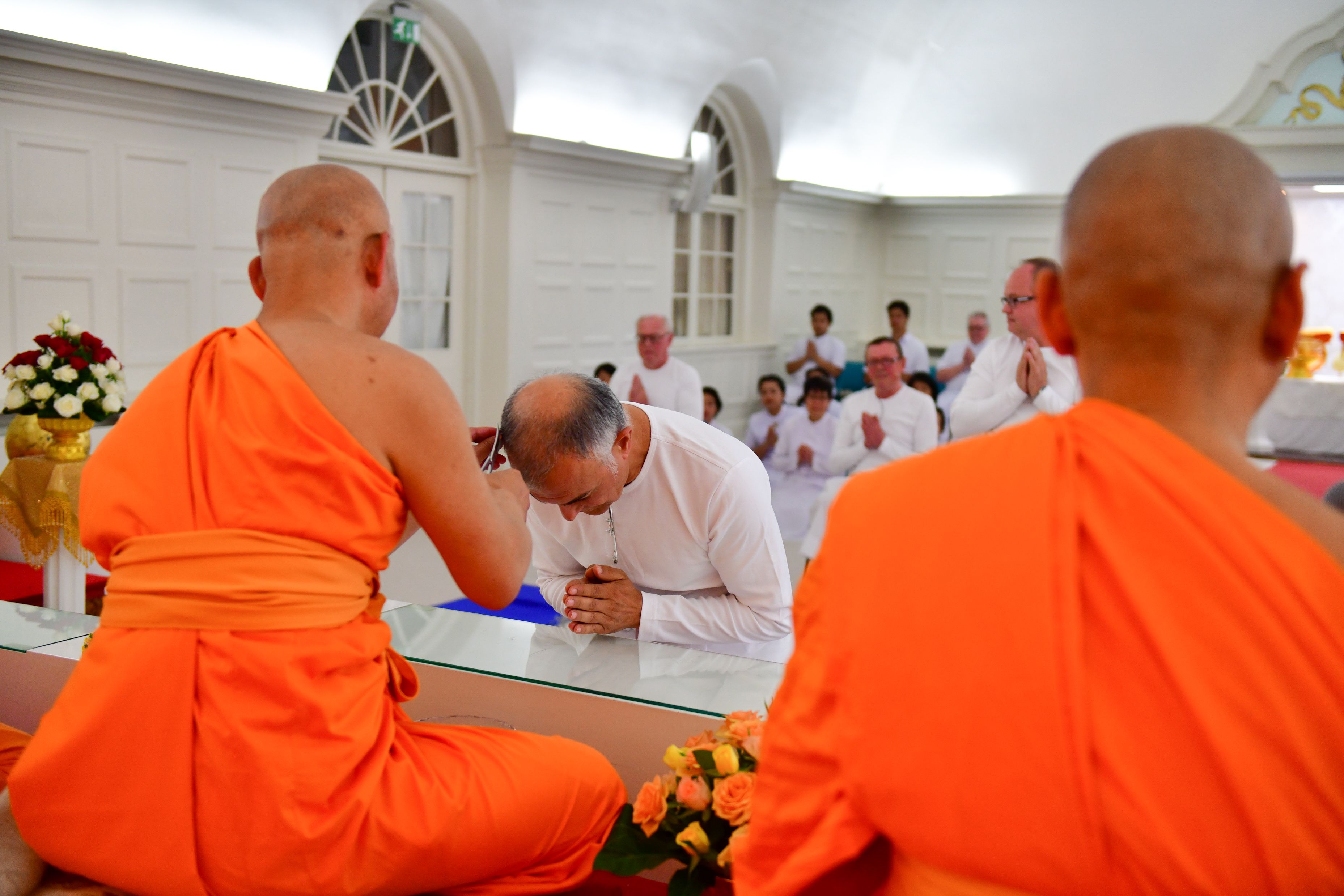

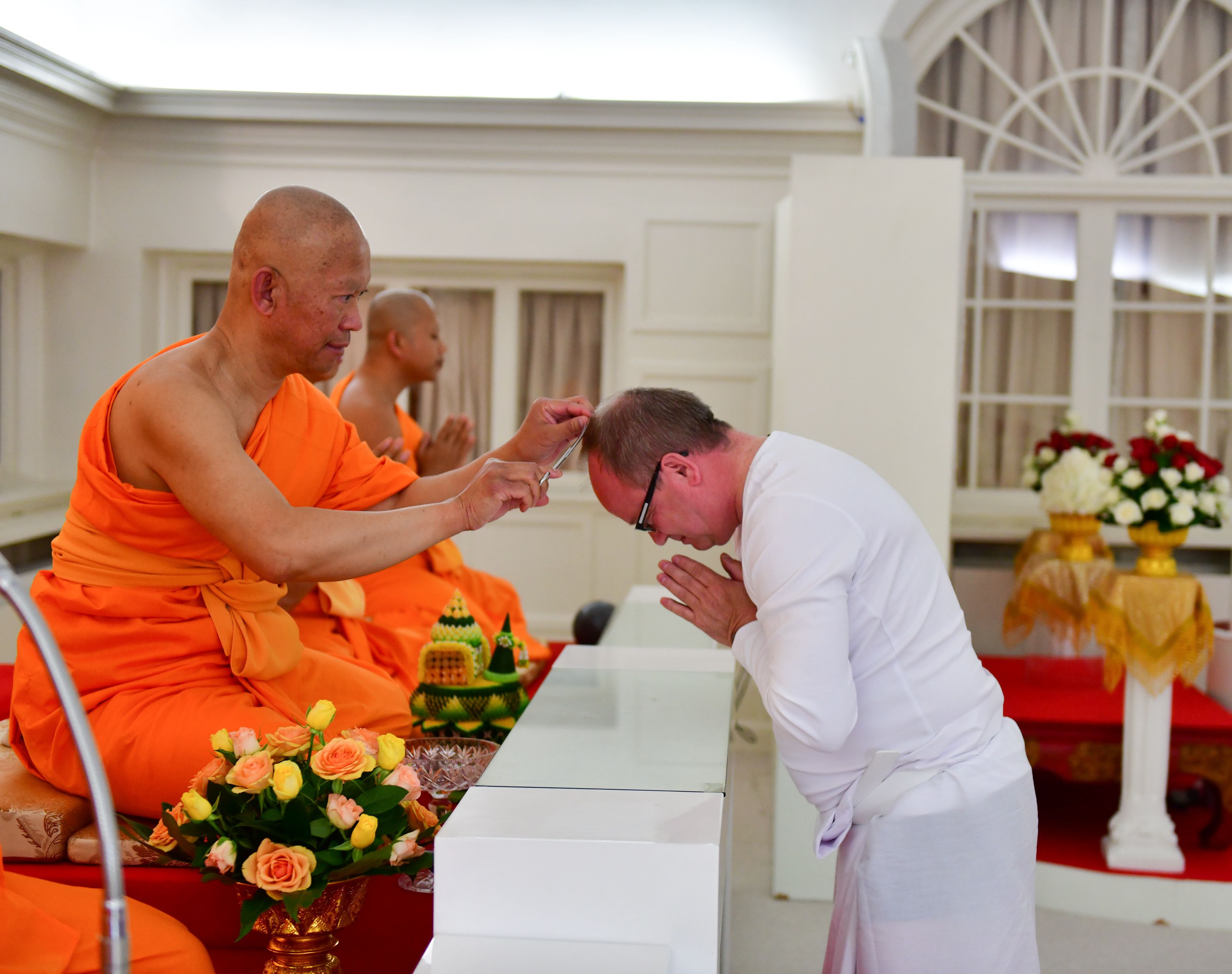
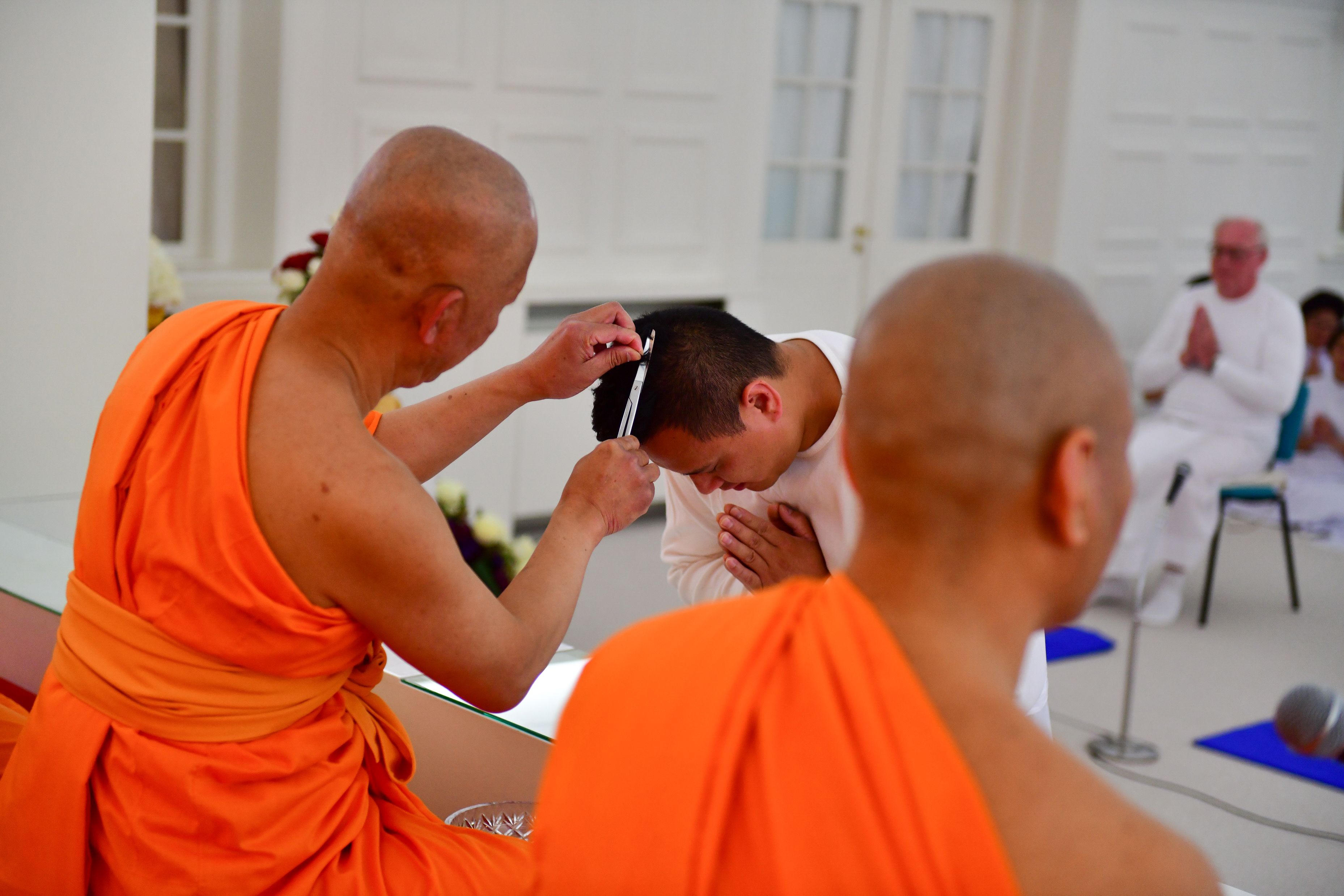
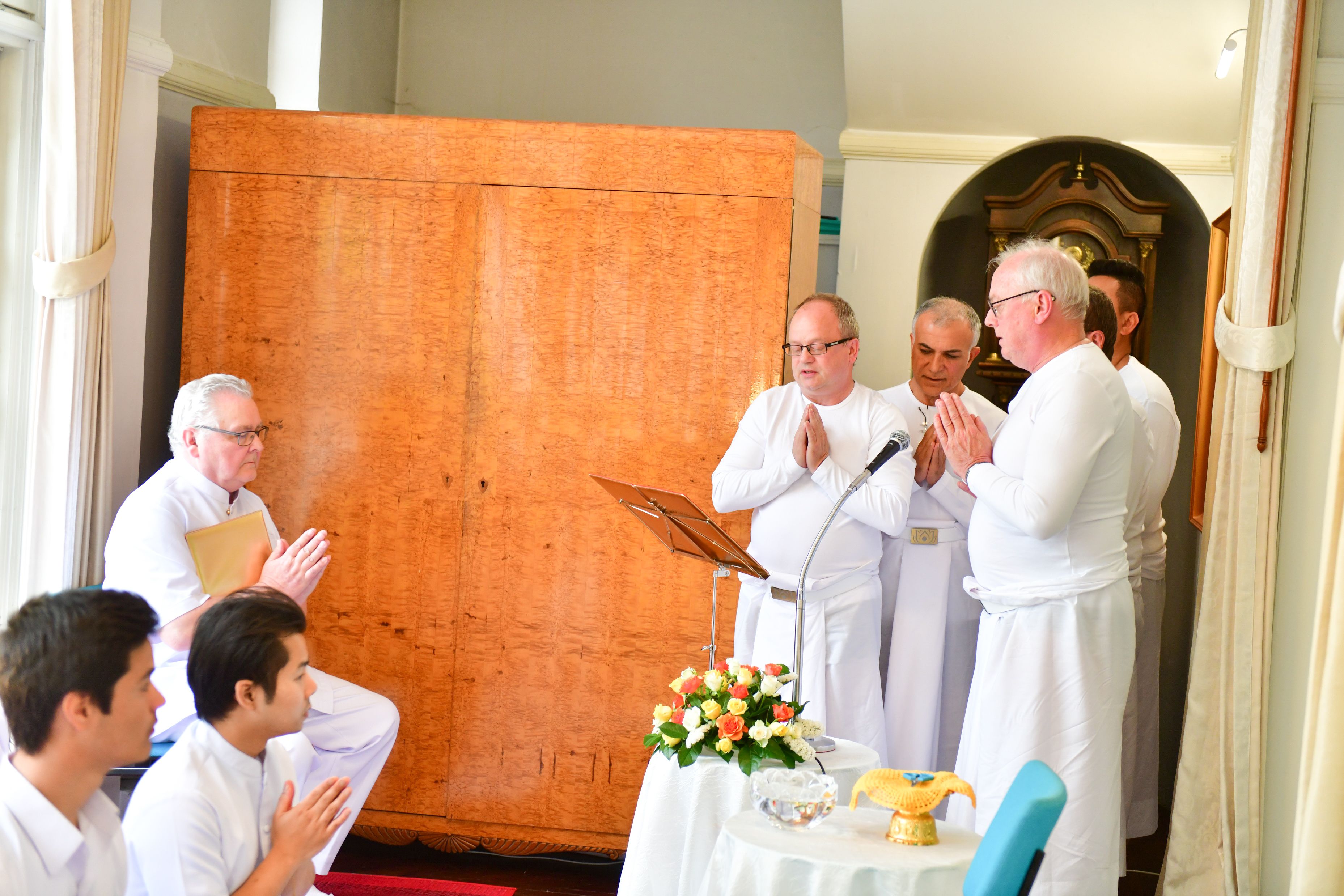
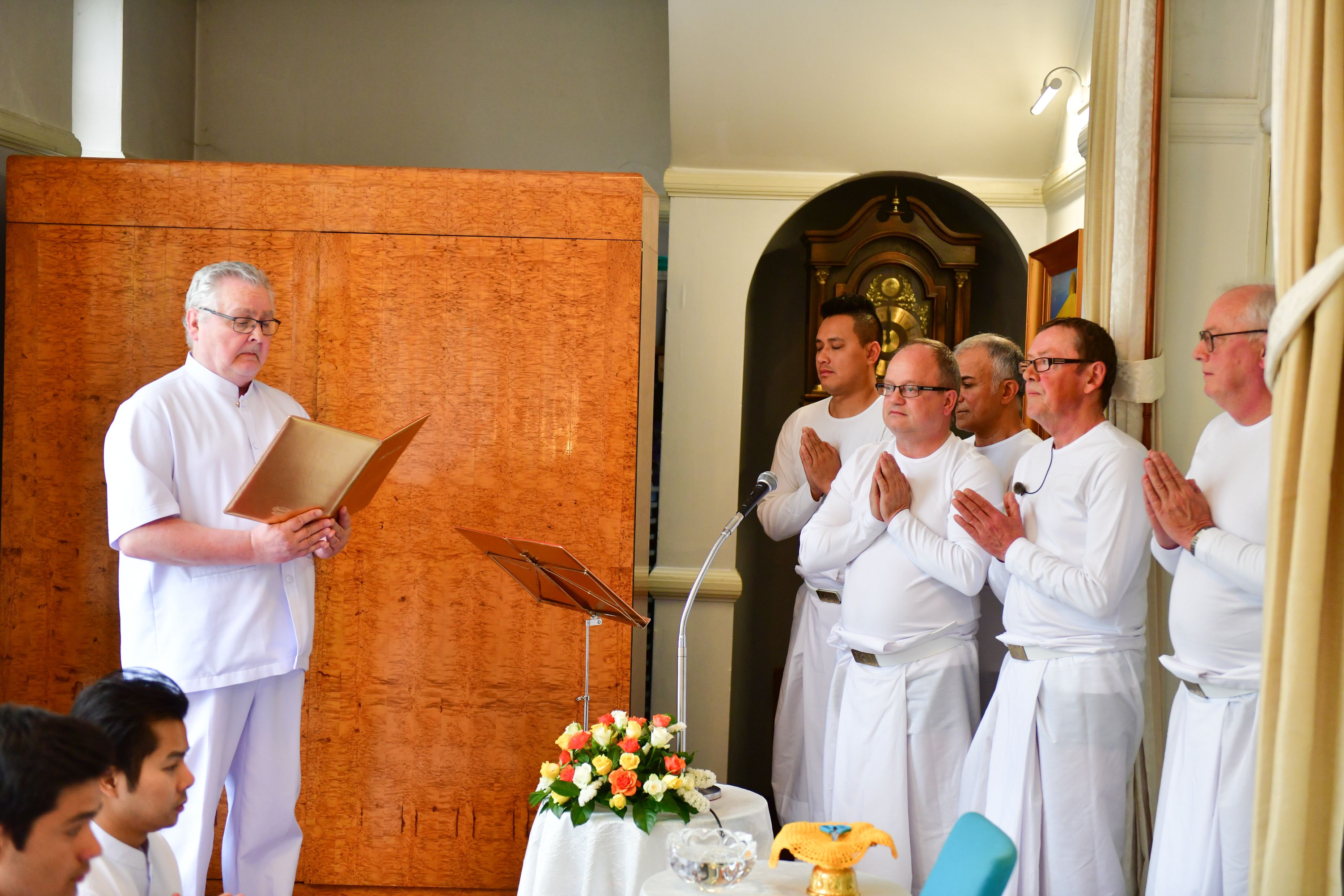
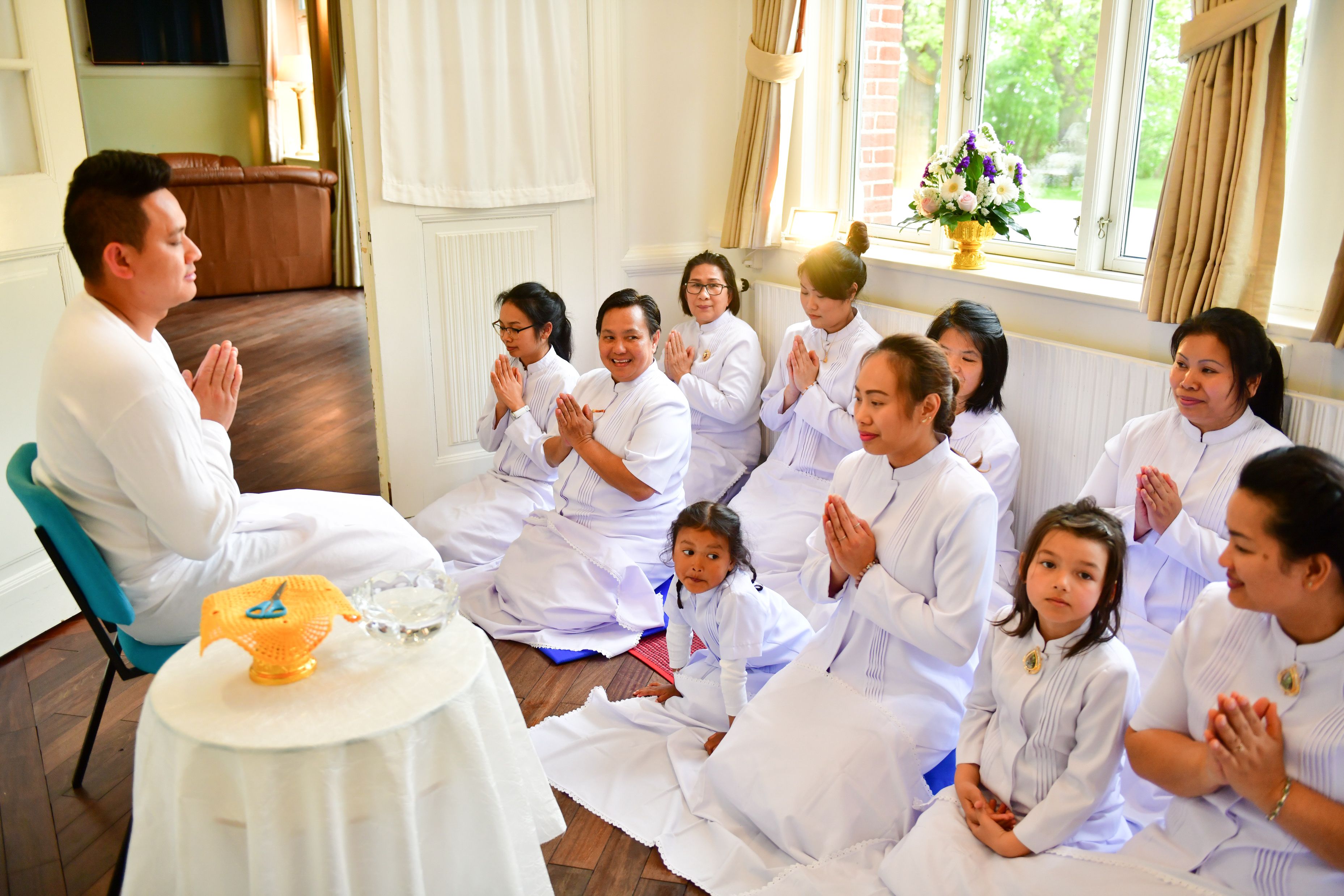
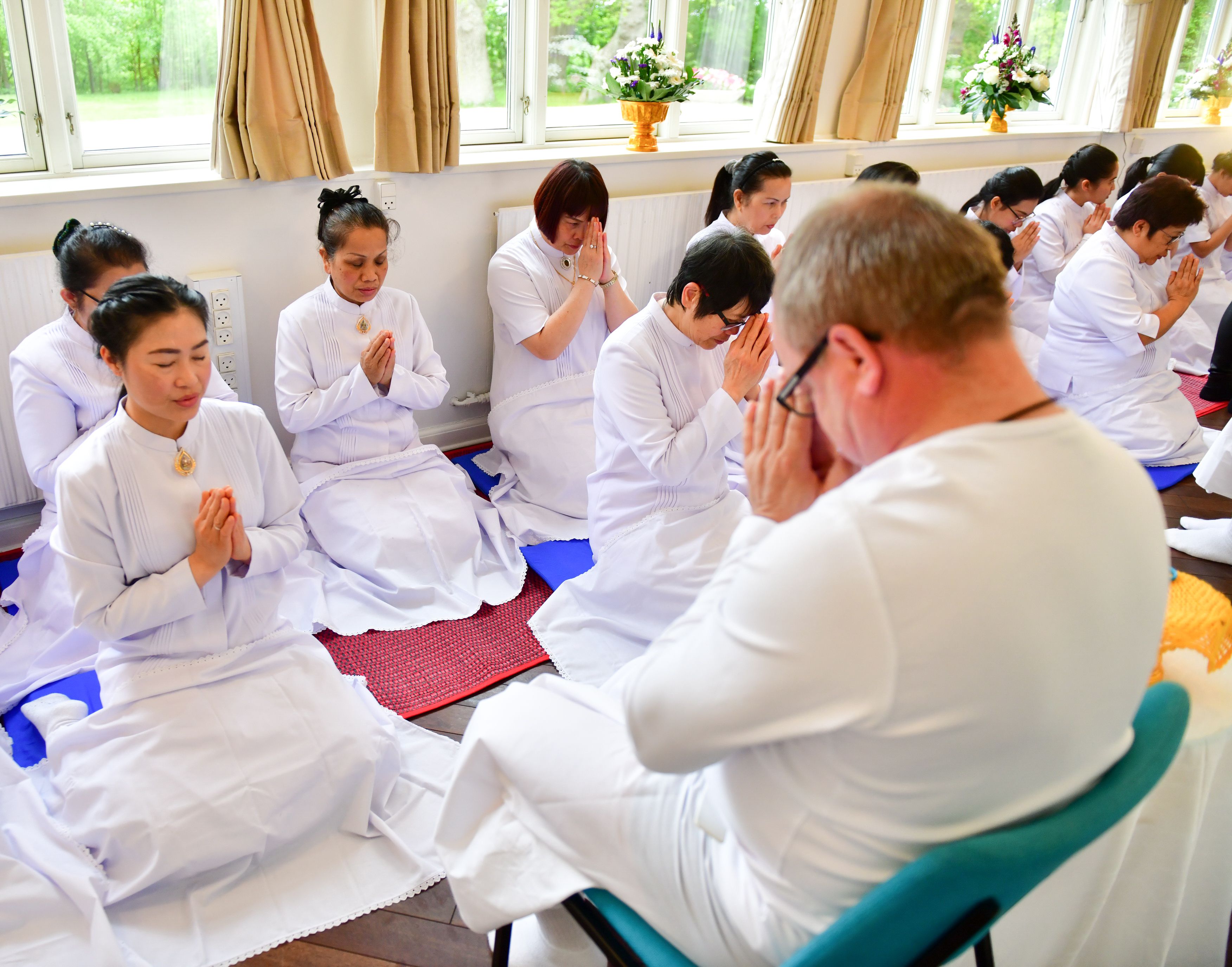
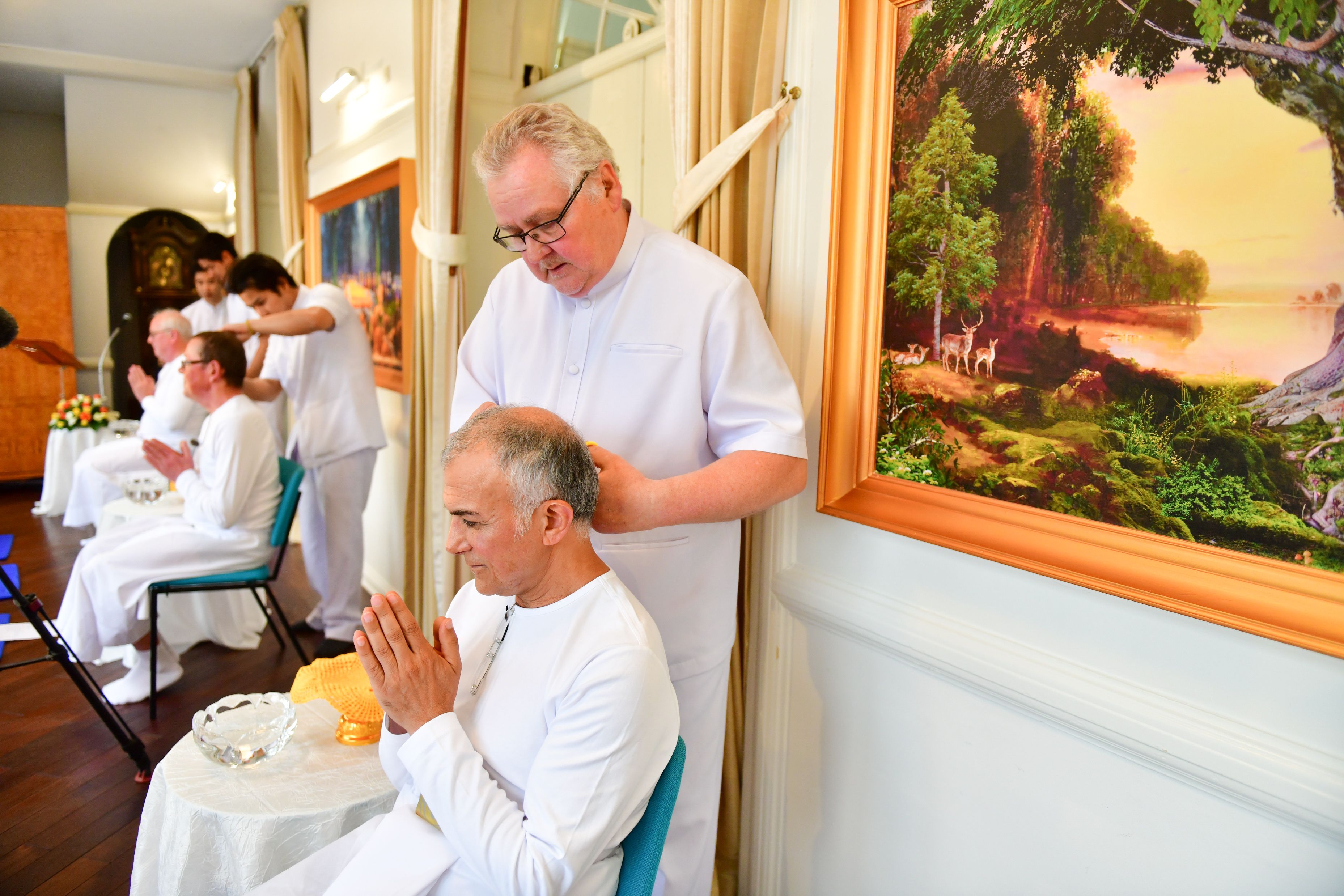
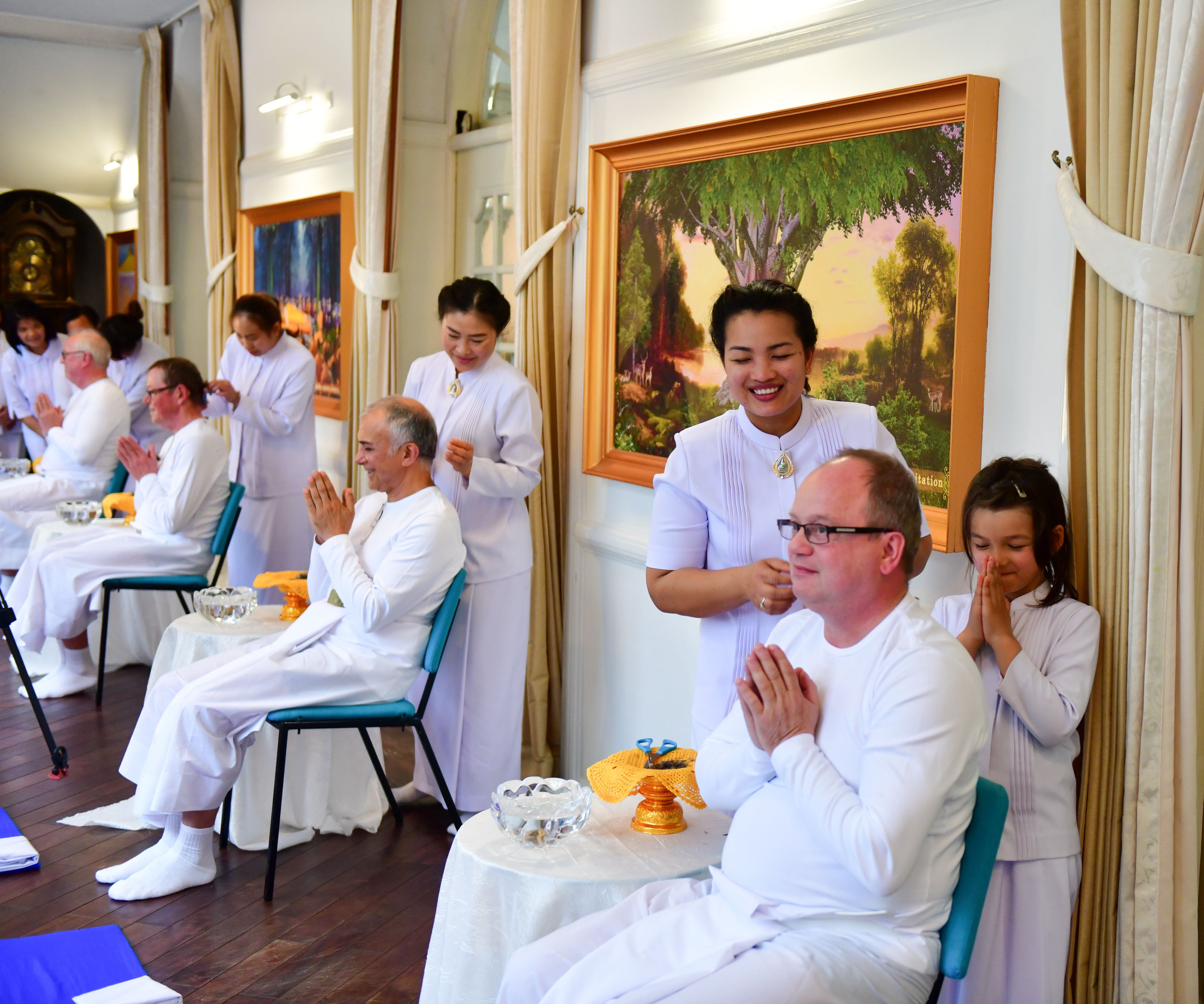
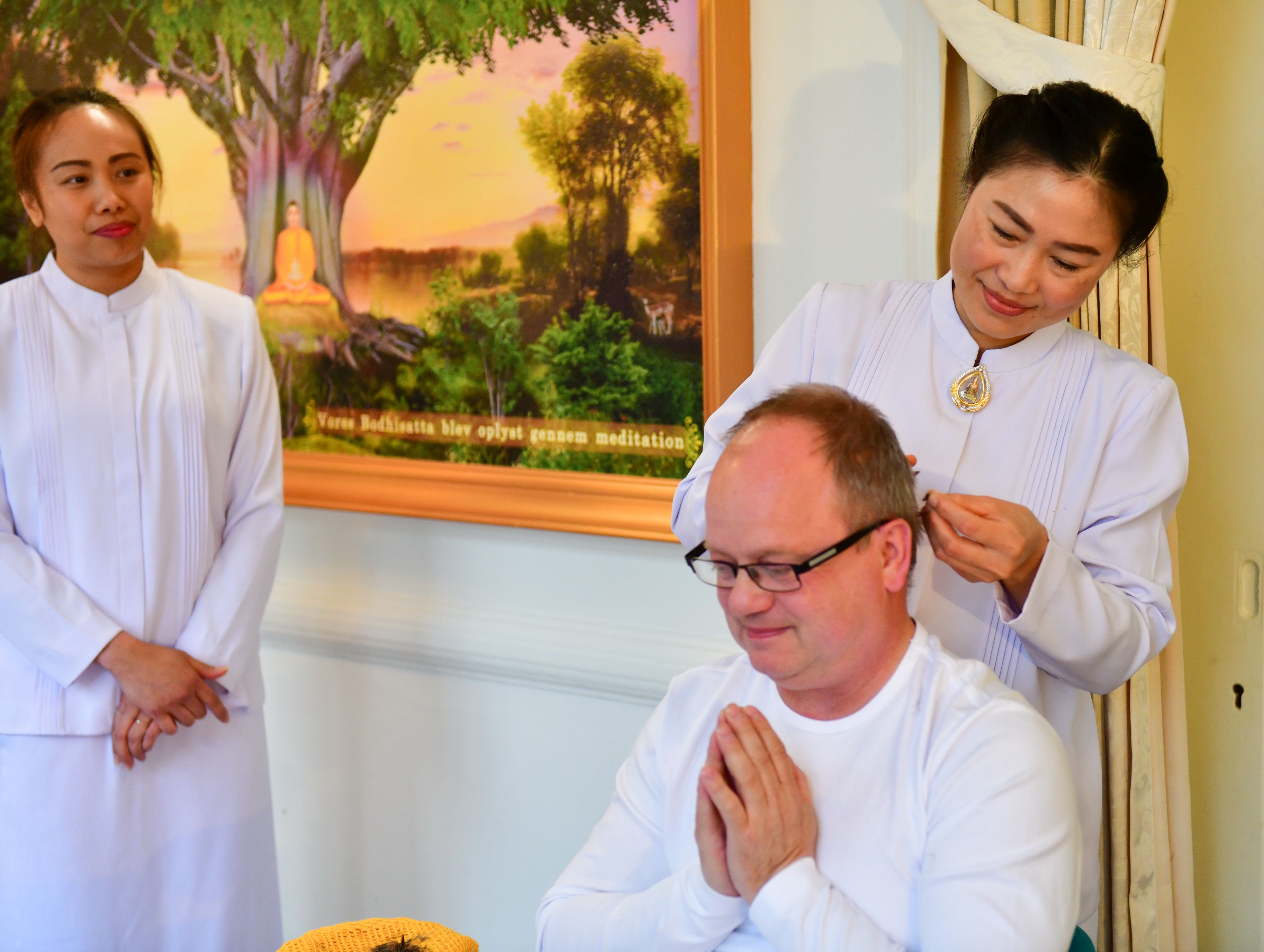
Ordination
The terms for monk in Pali are Samaṇa, means one who refrains from evil deeds, and Bhikkhu, means one who lives by alms. A lifestyle is based on simplicity. By having less and living simple life, one has more time to reflect upon oneself and cultivate mental purity through meditation. Everything one uses and consumes must be purposeful. In short, we live our life like a big tree that needs little amount of water.
There are two processes of ordination. The first part is Pabbajja or going forth. The term Pabbajja means refrain from lay or householder’s lifestyle and physical pleasure. A person will ordain as a novice in this process. The second part is Upasampada, which literally denotes approaching or nearing the ascetic life. Upasampada ritual is performed within a well-demarcated and consecrated area. It is conducted by a novice asks to be ordained to a preceptor – Upajjāya. Afterward, the preceptor shall inform an assembly of monks concerning the novice’s request. The assembly of monks shall agree to accept the novice into the community and become a monk.
Traditionally, family, friends and, relatives will rejoice in the ordination. They will also offer monastic robes and alms bowls to an ordinand to be used during his monastic life.
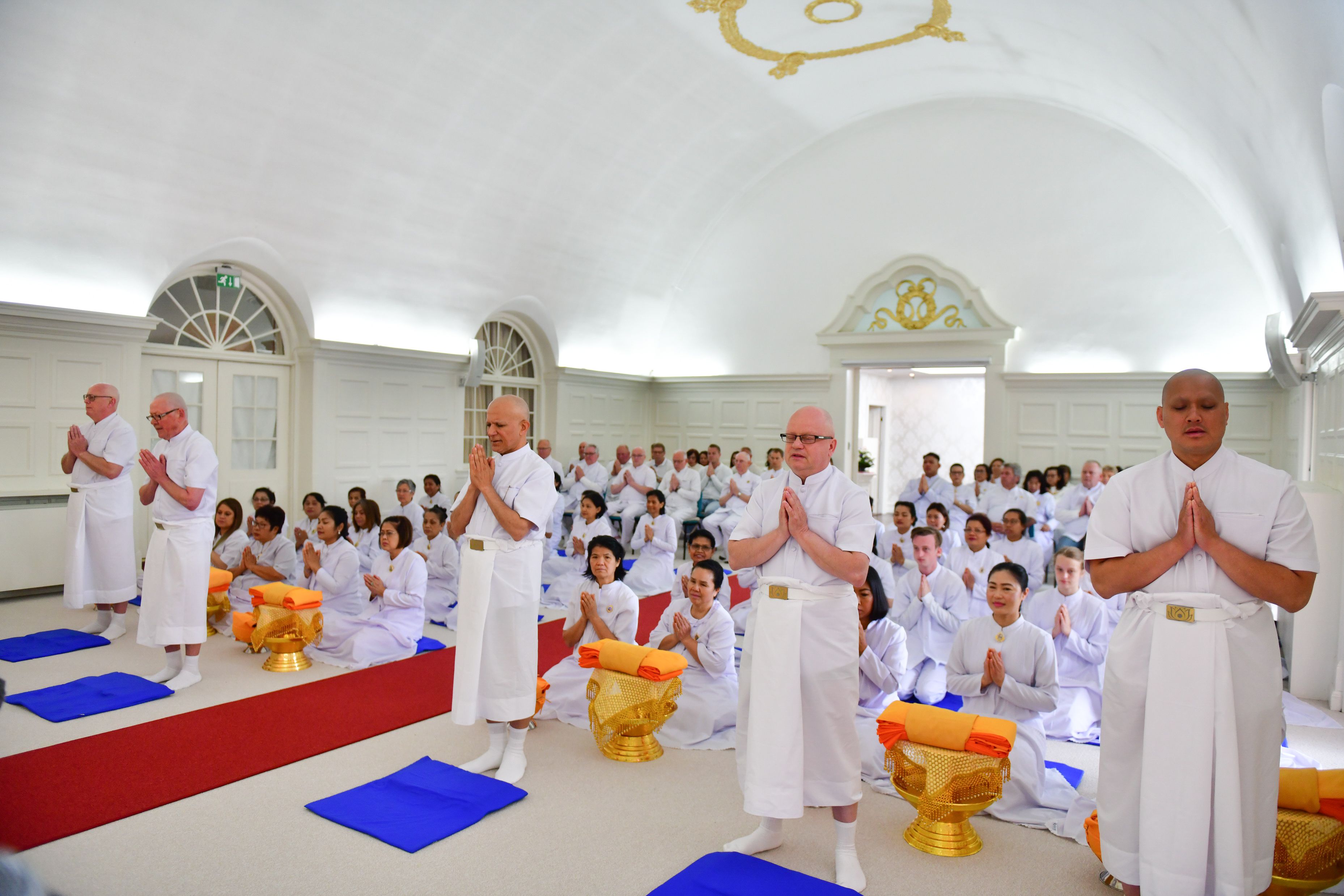
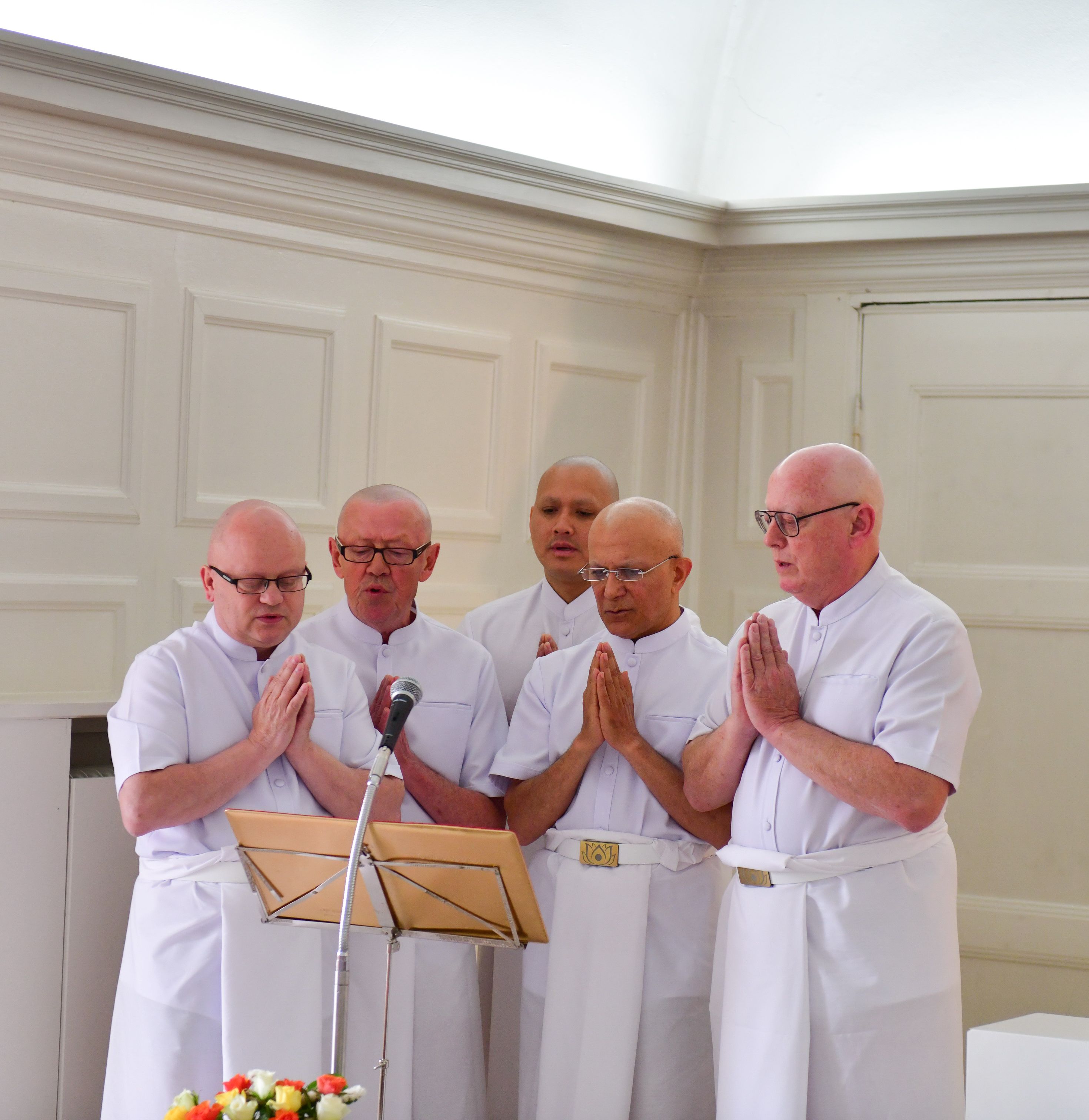
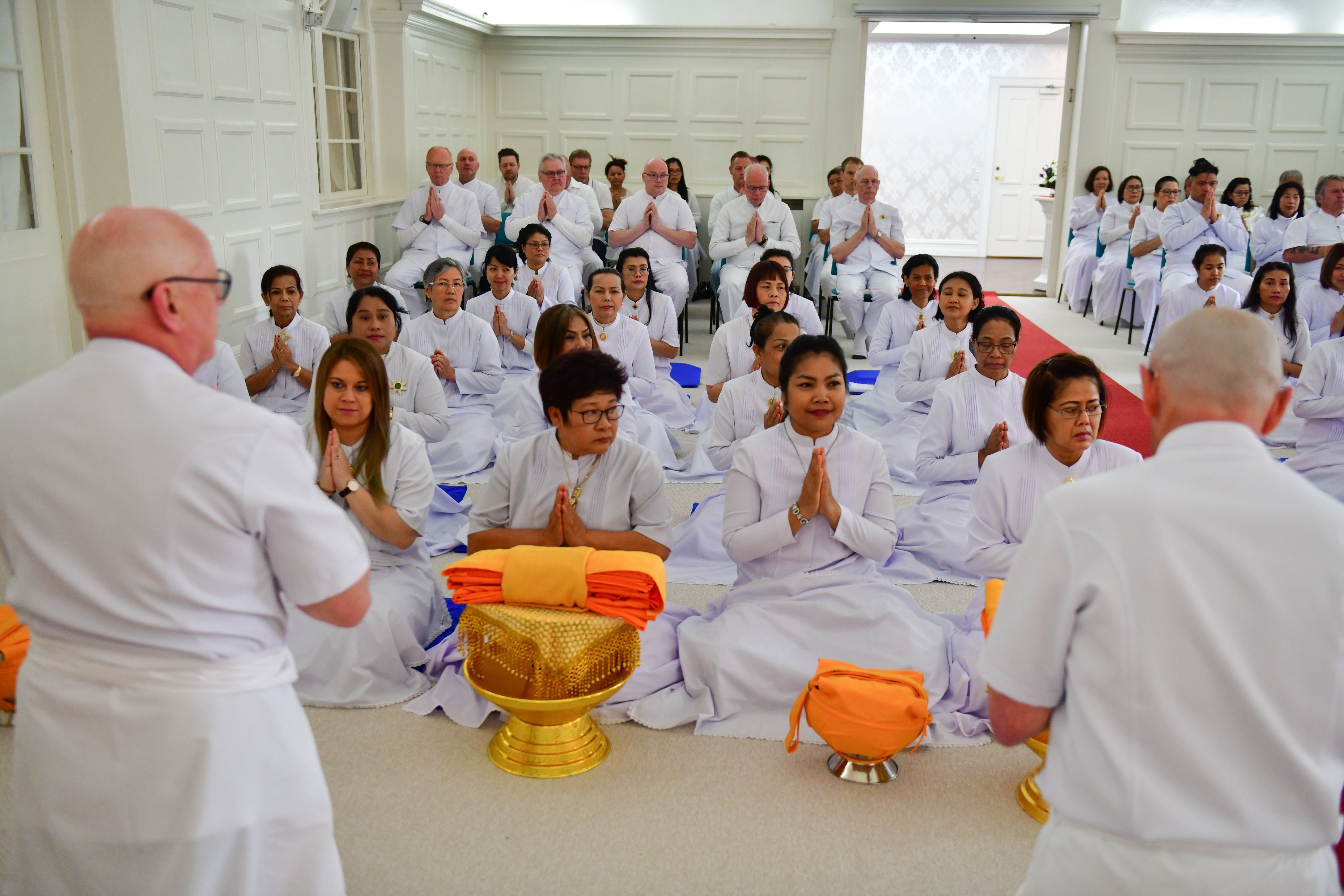
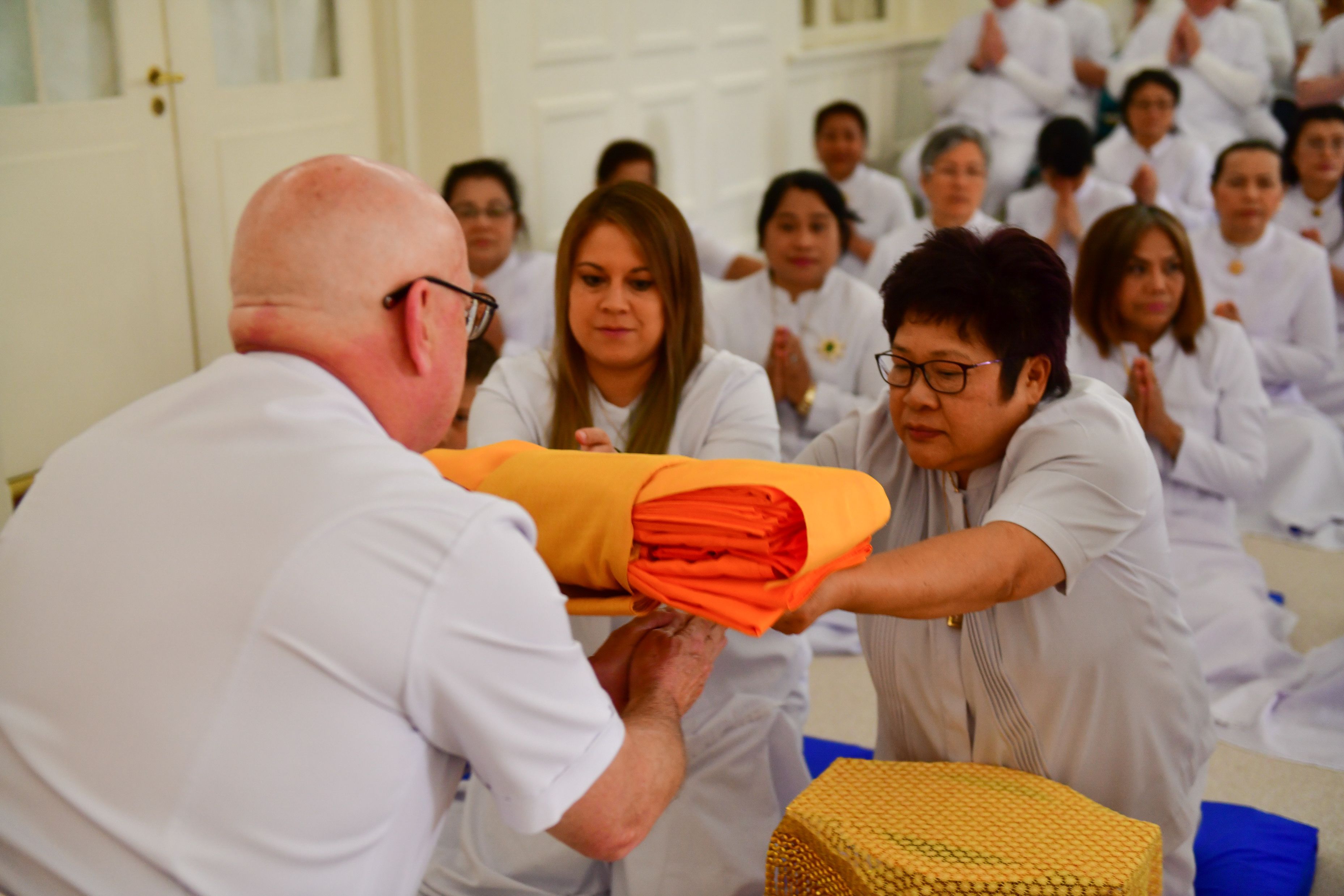

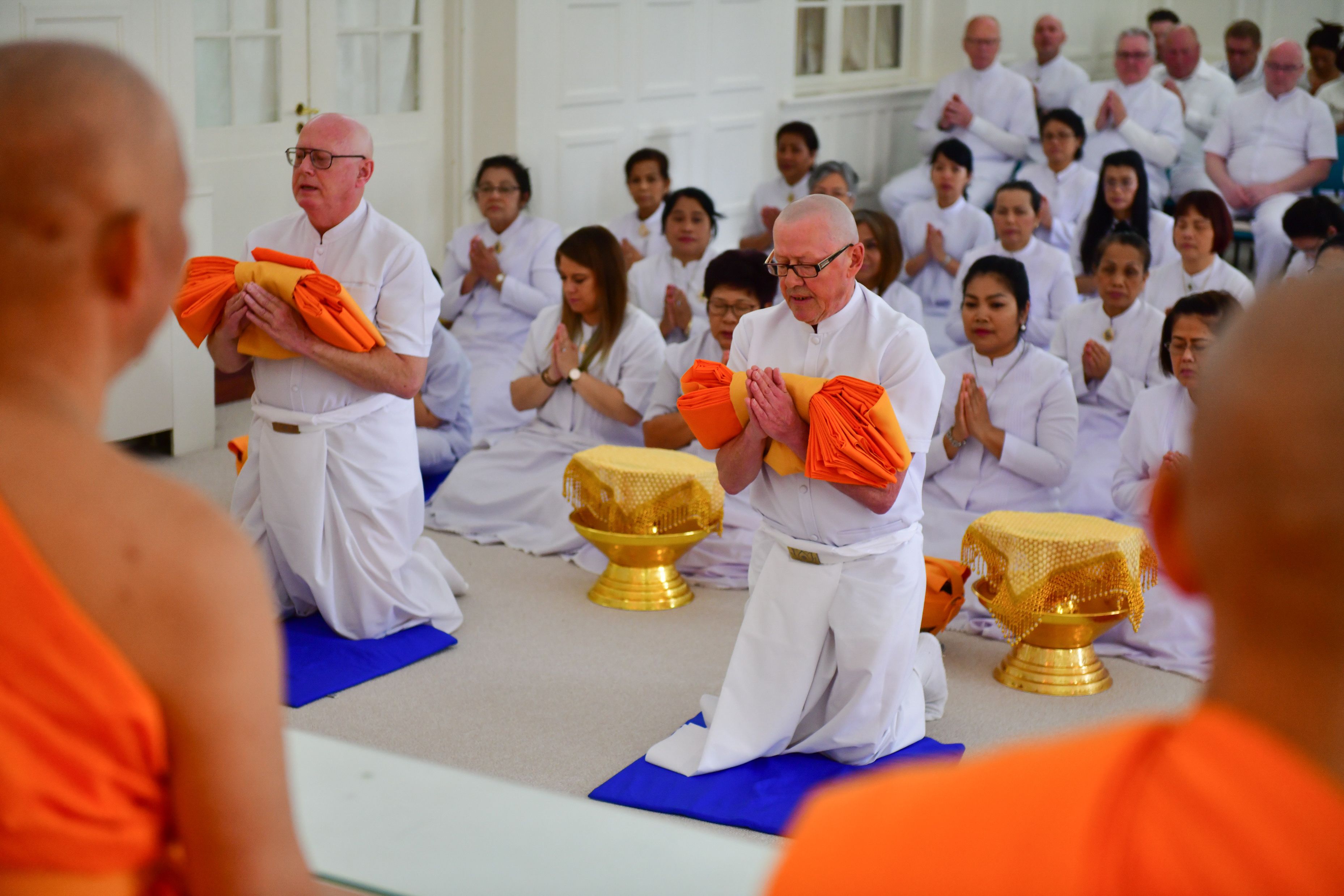
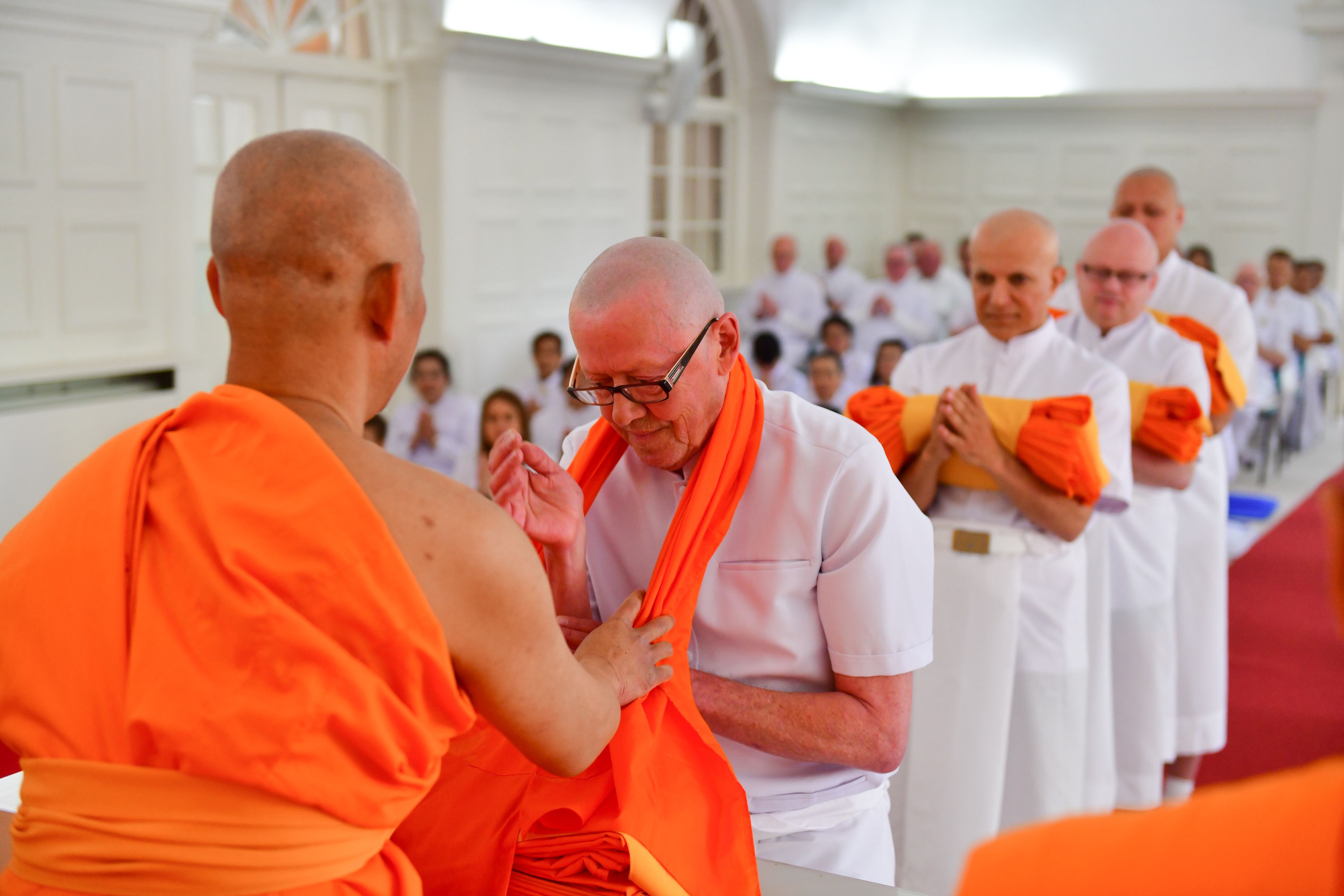
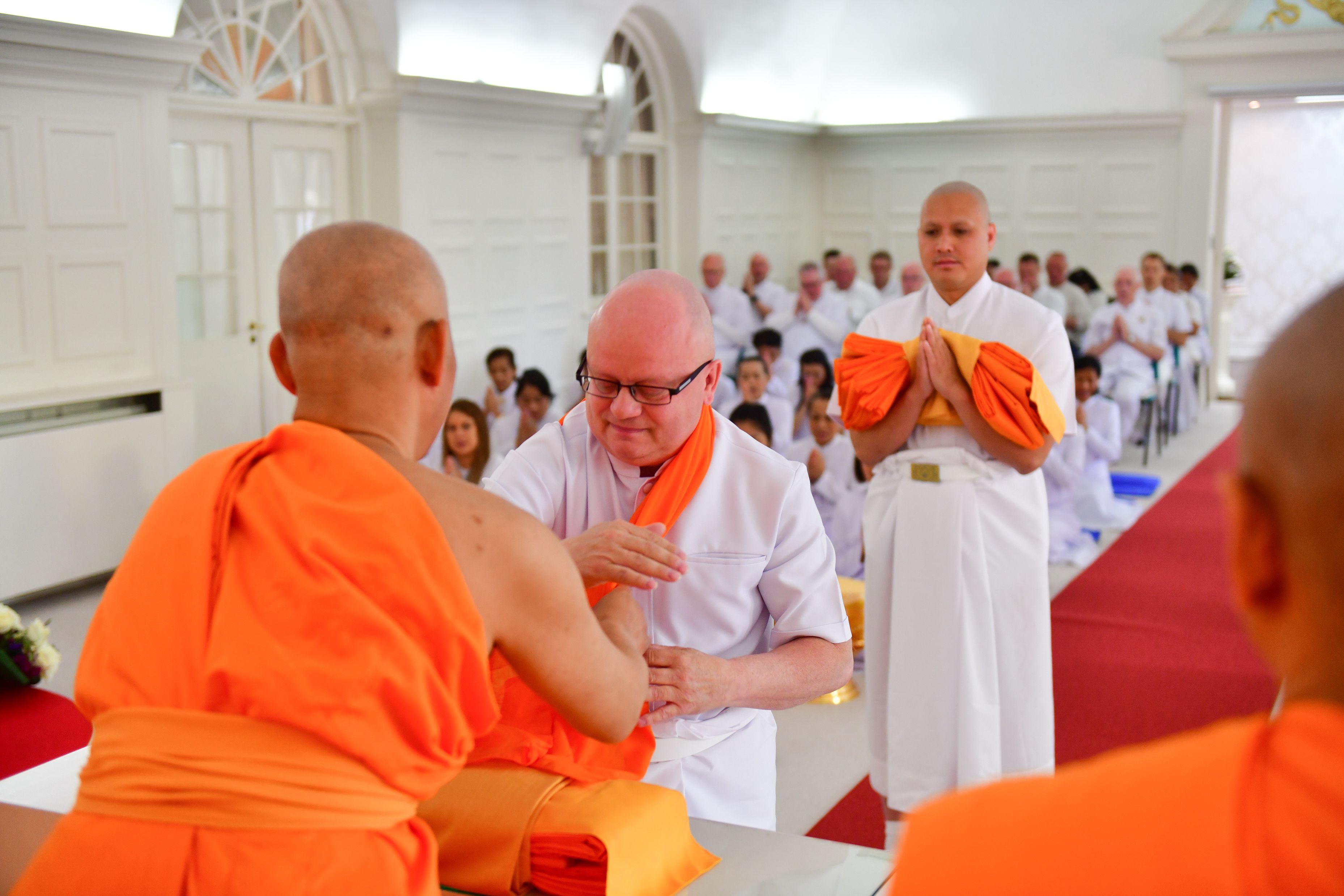
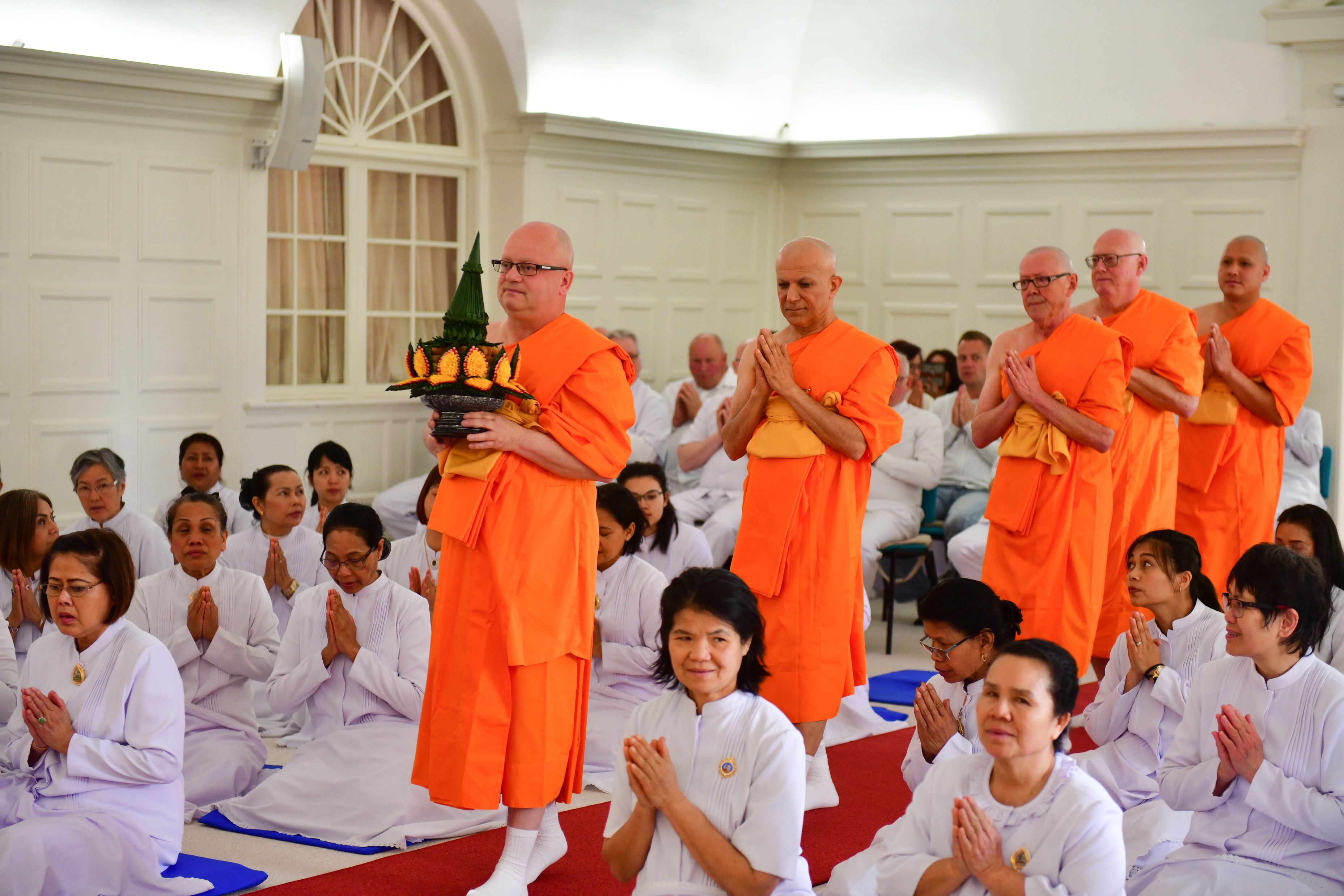
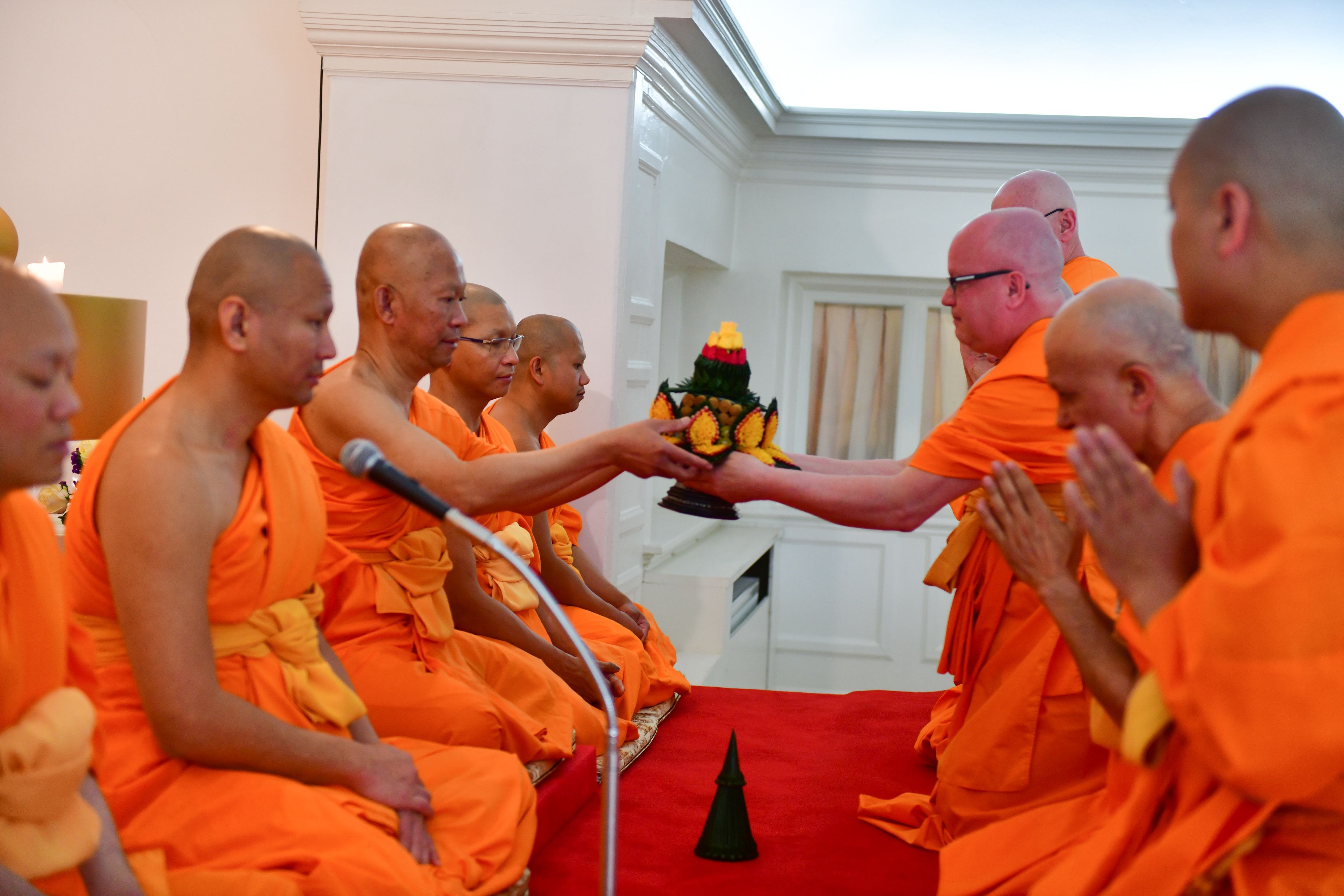
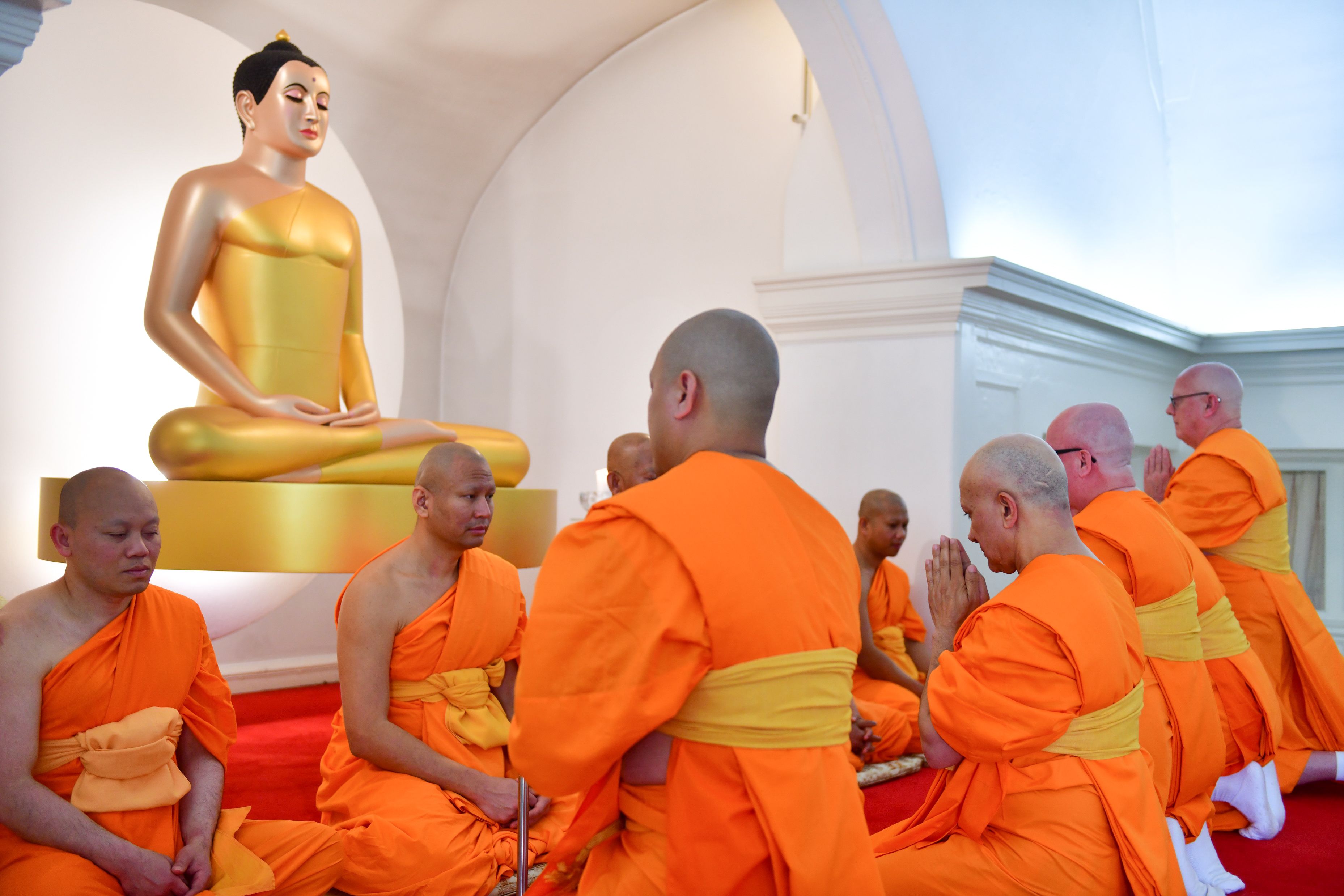
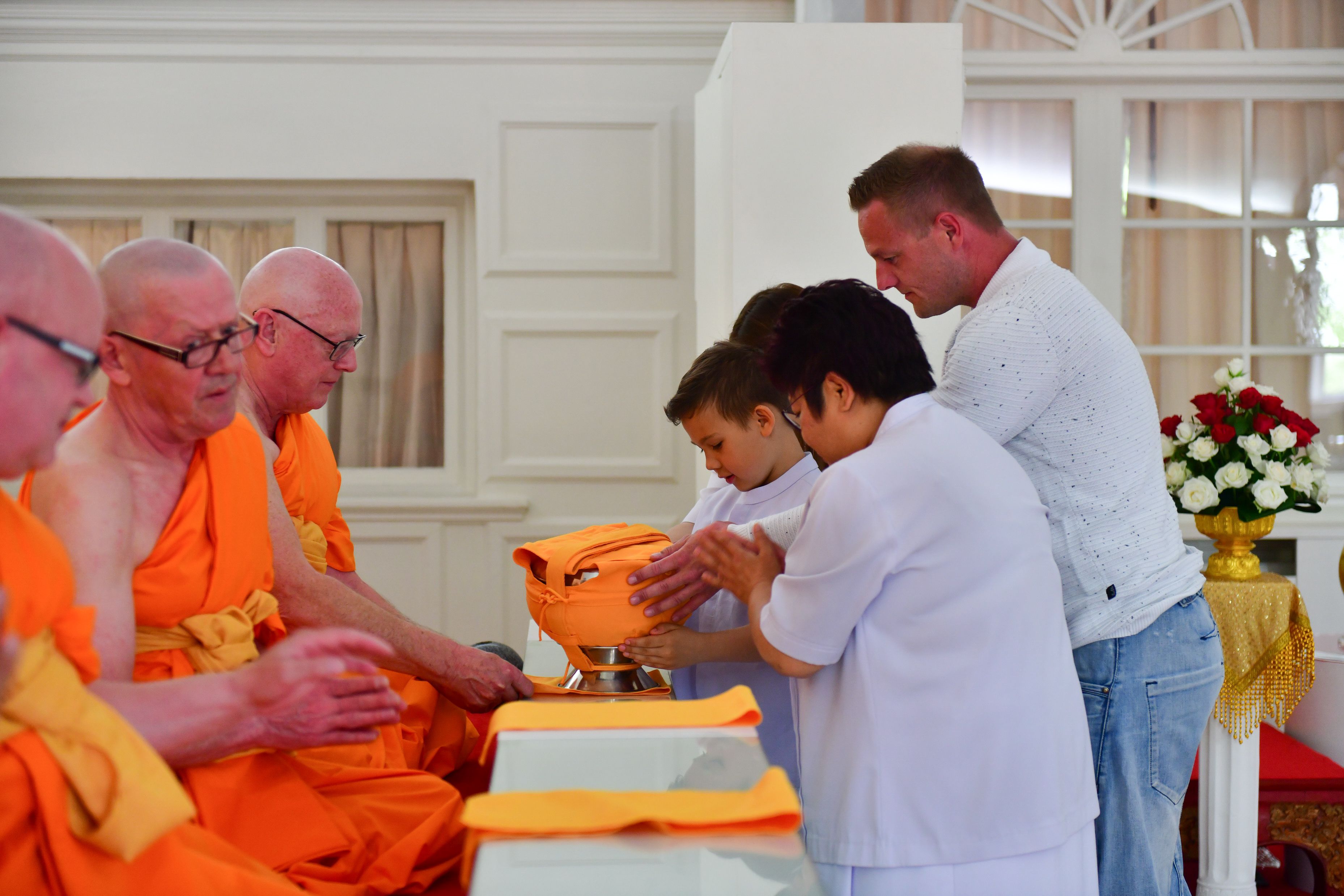
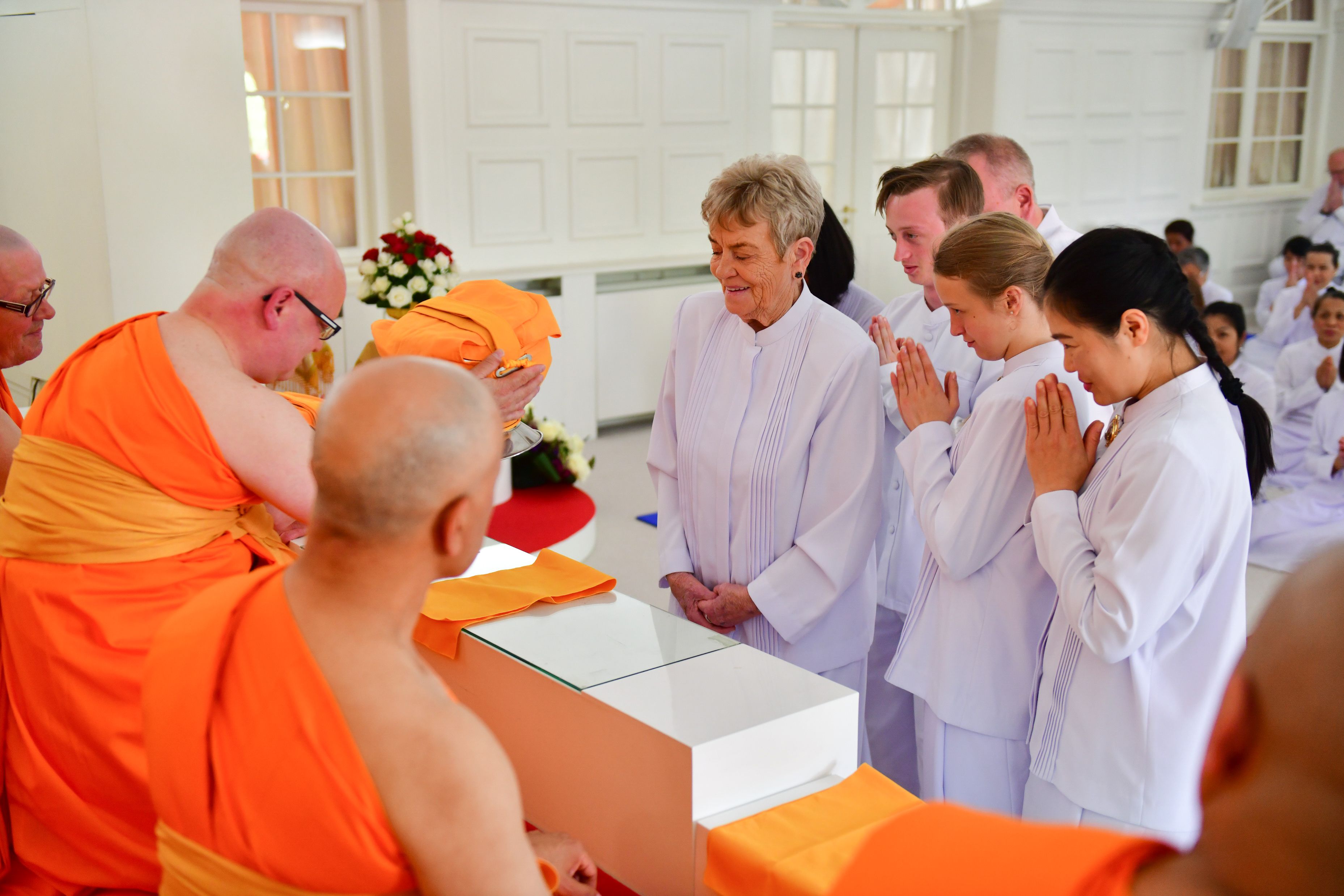
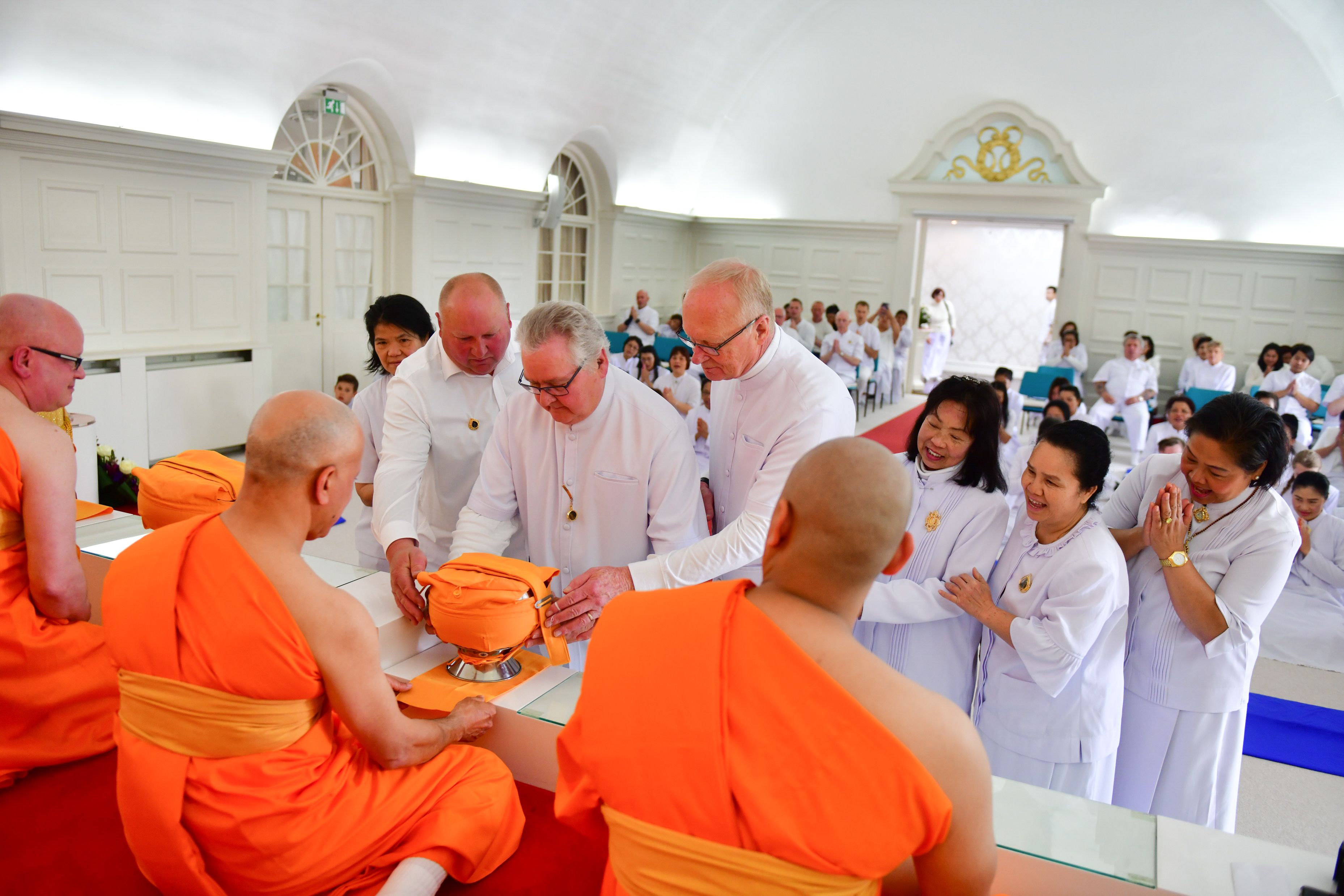
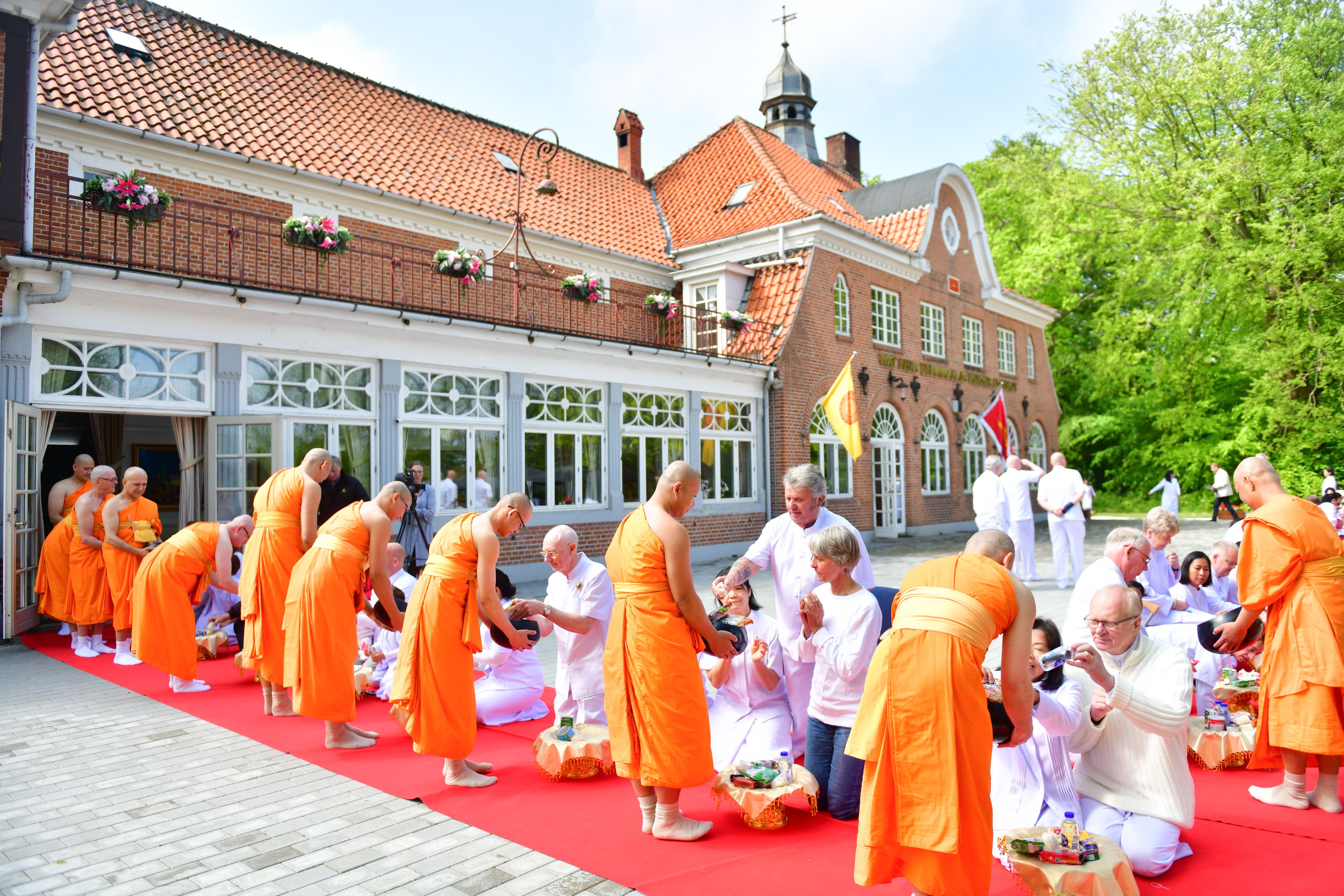
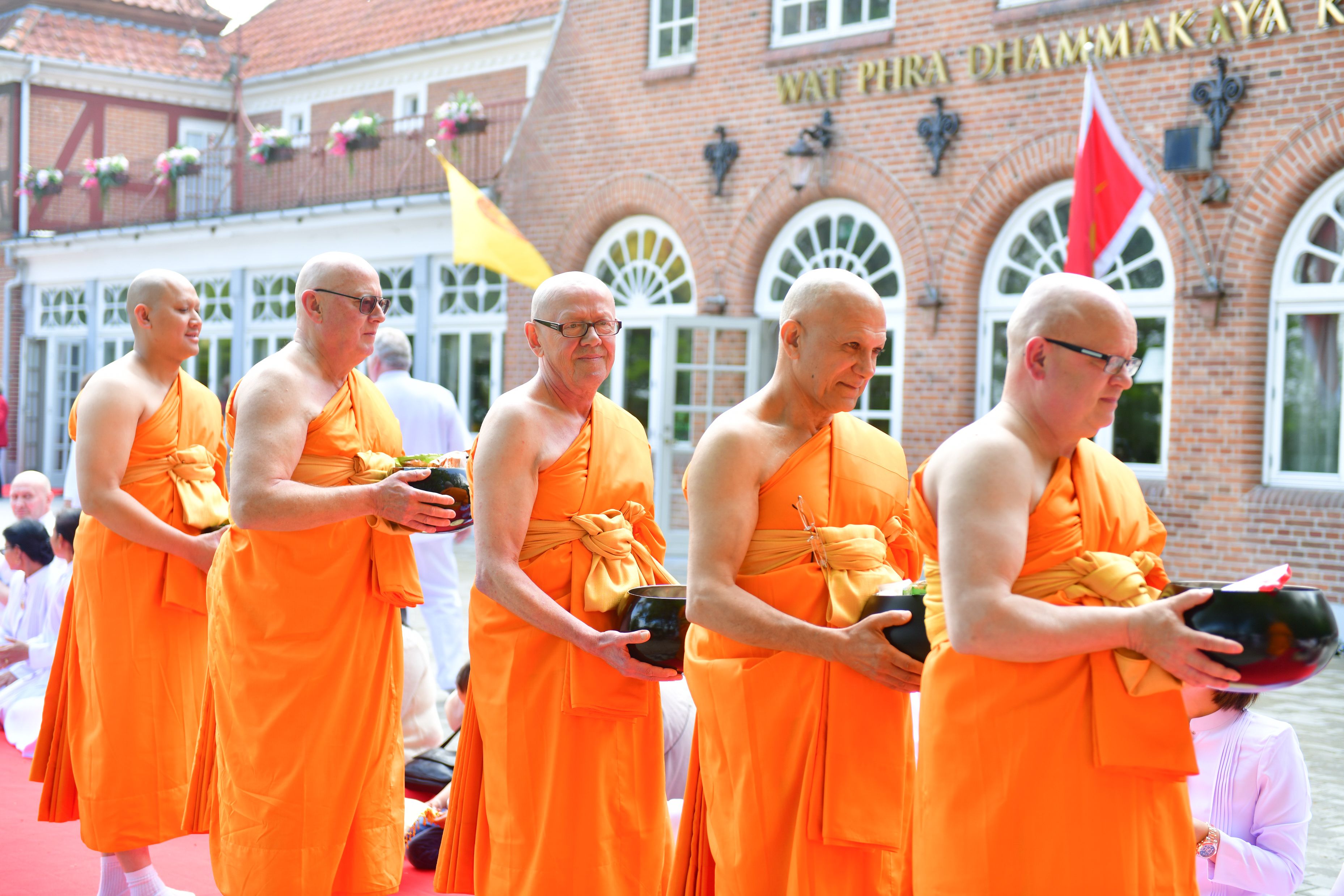
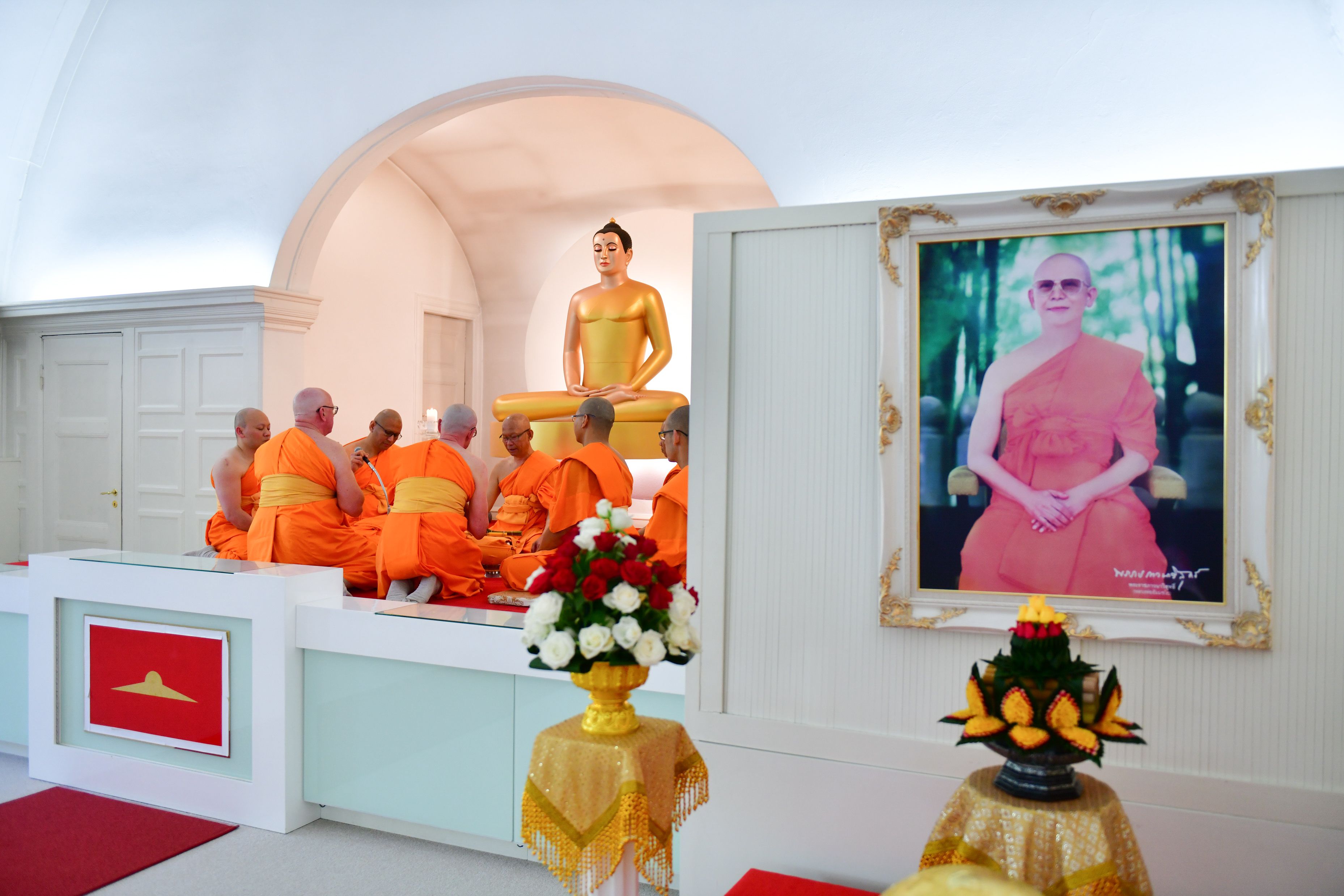
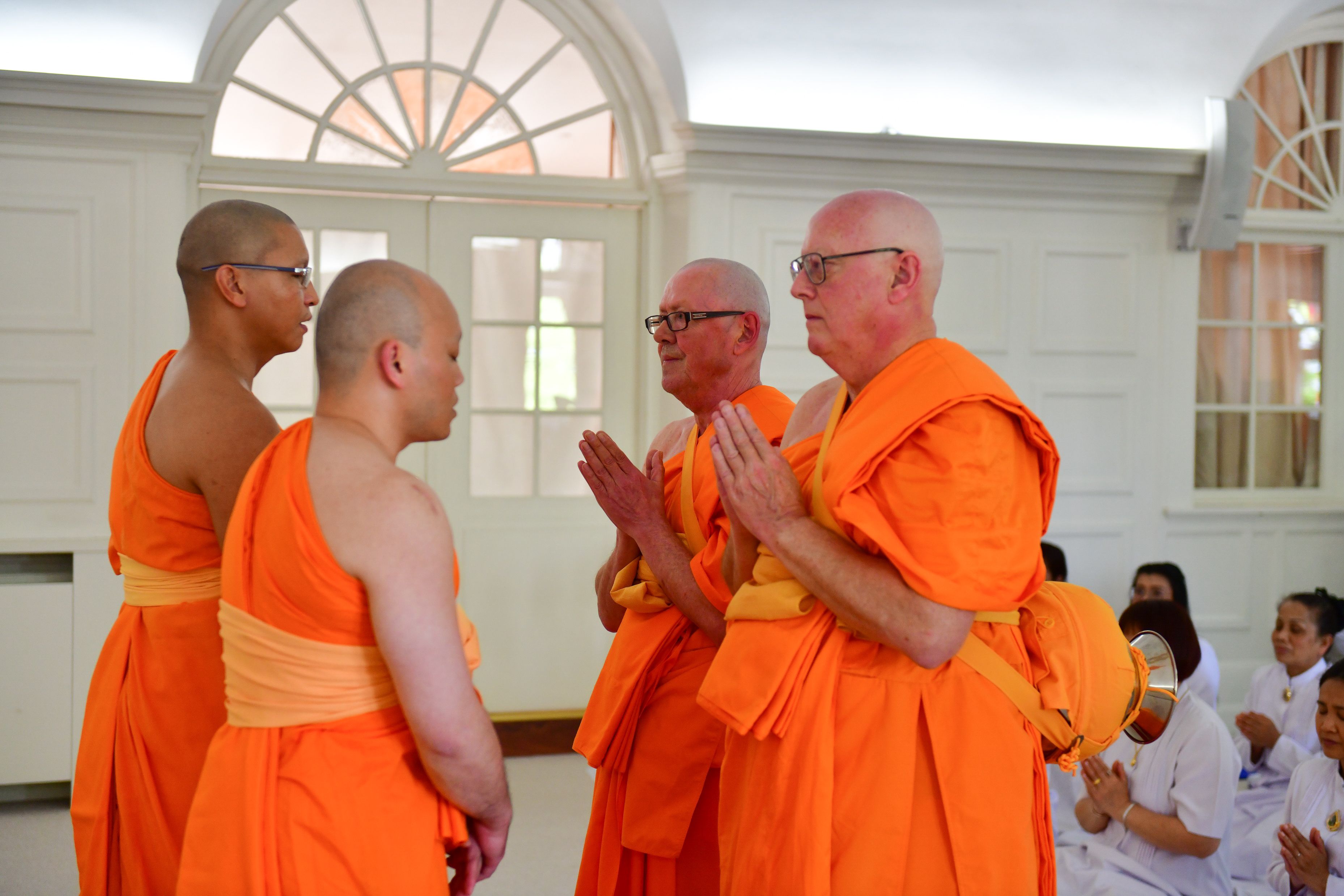
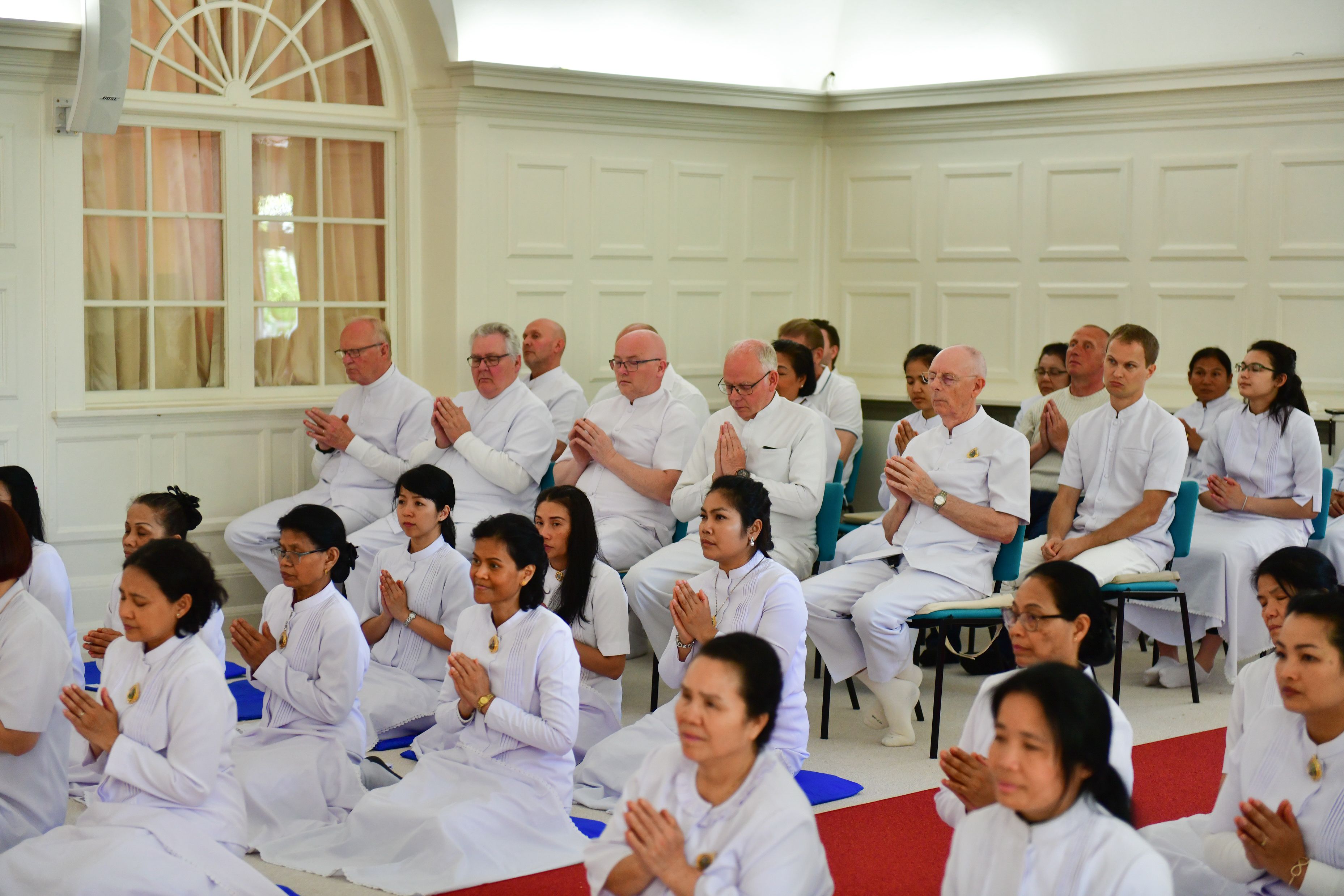
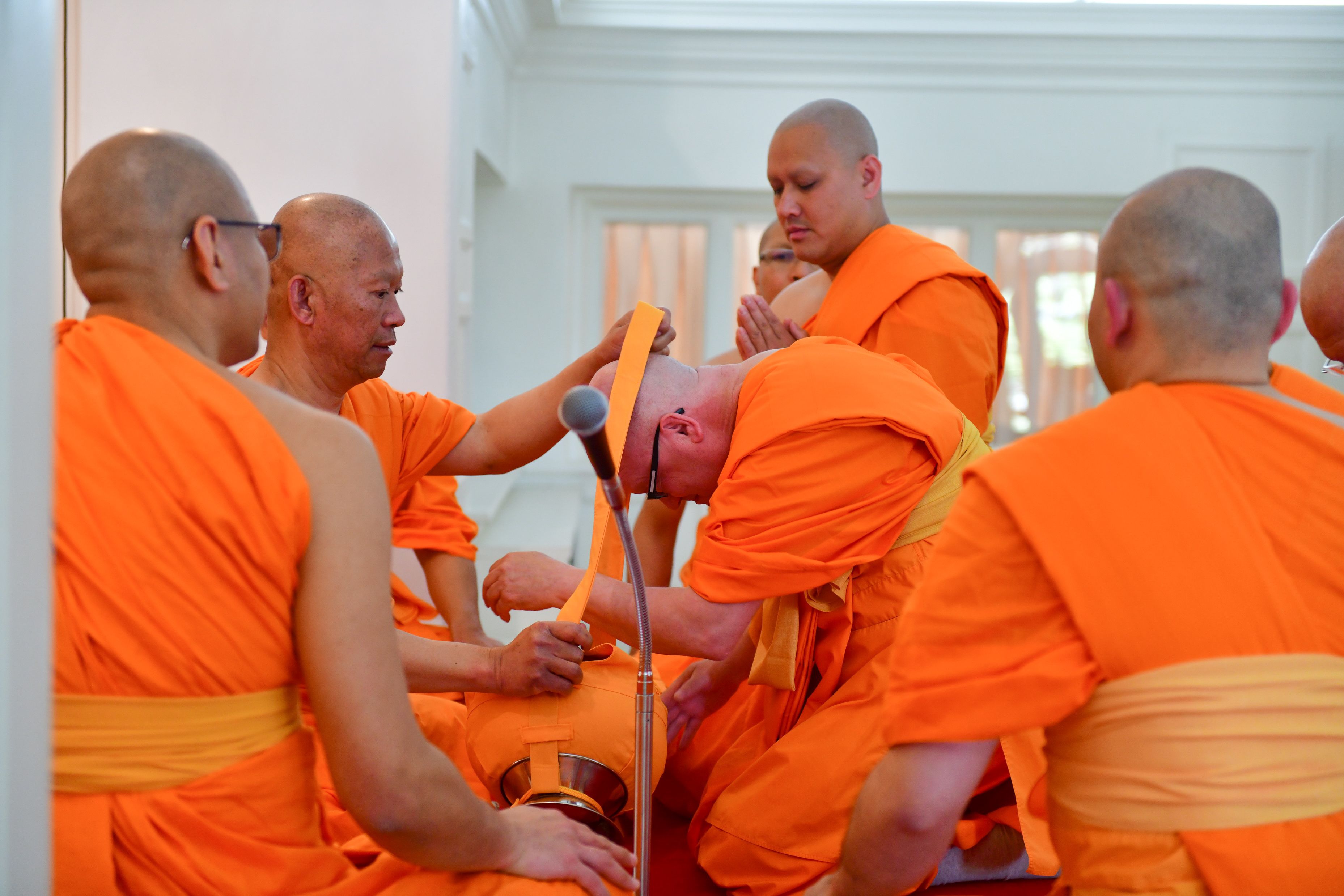
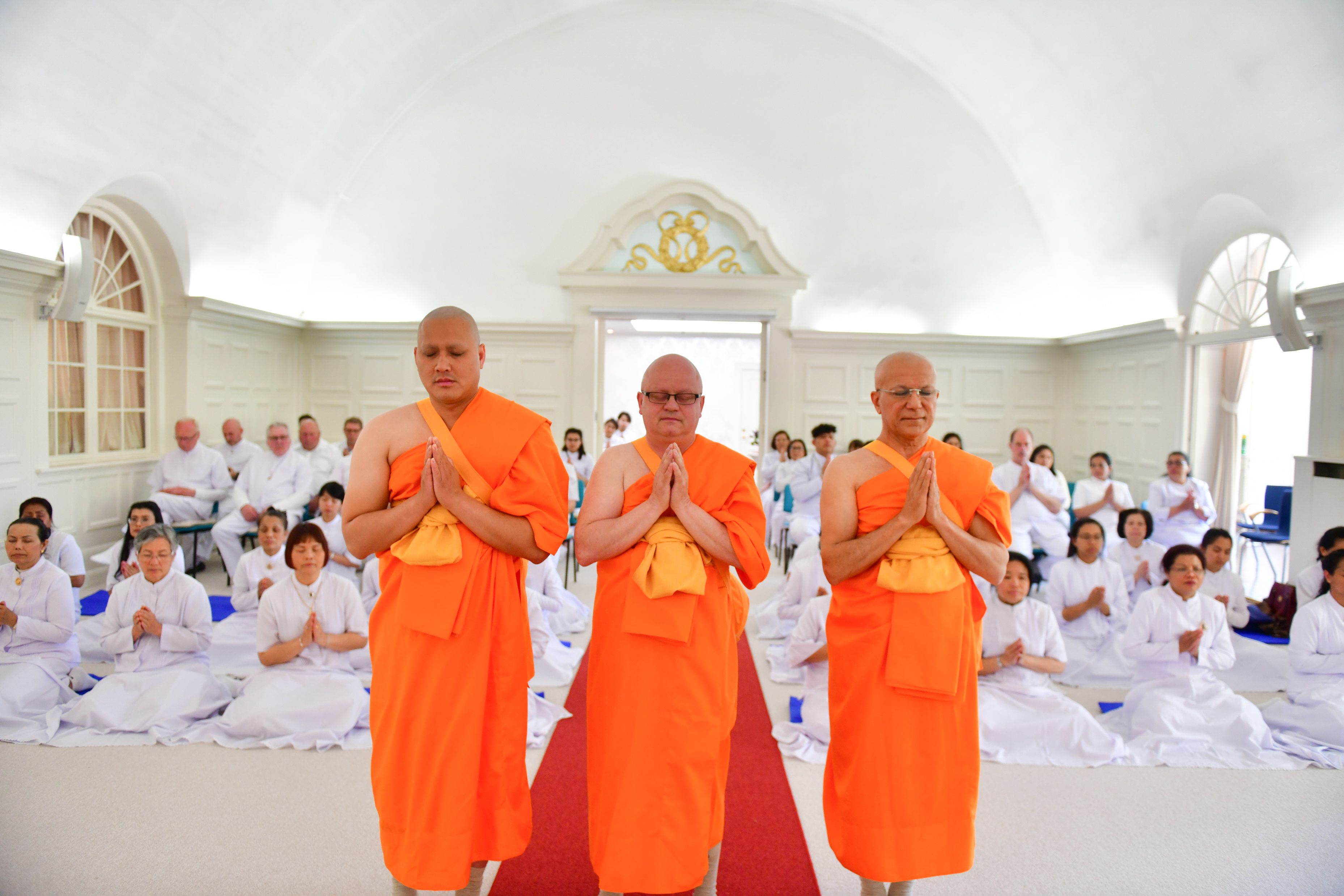
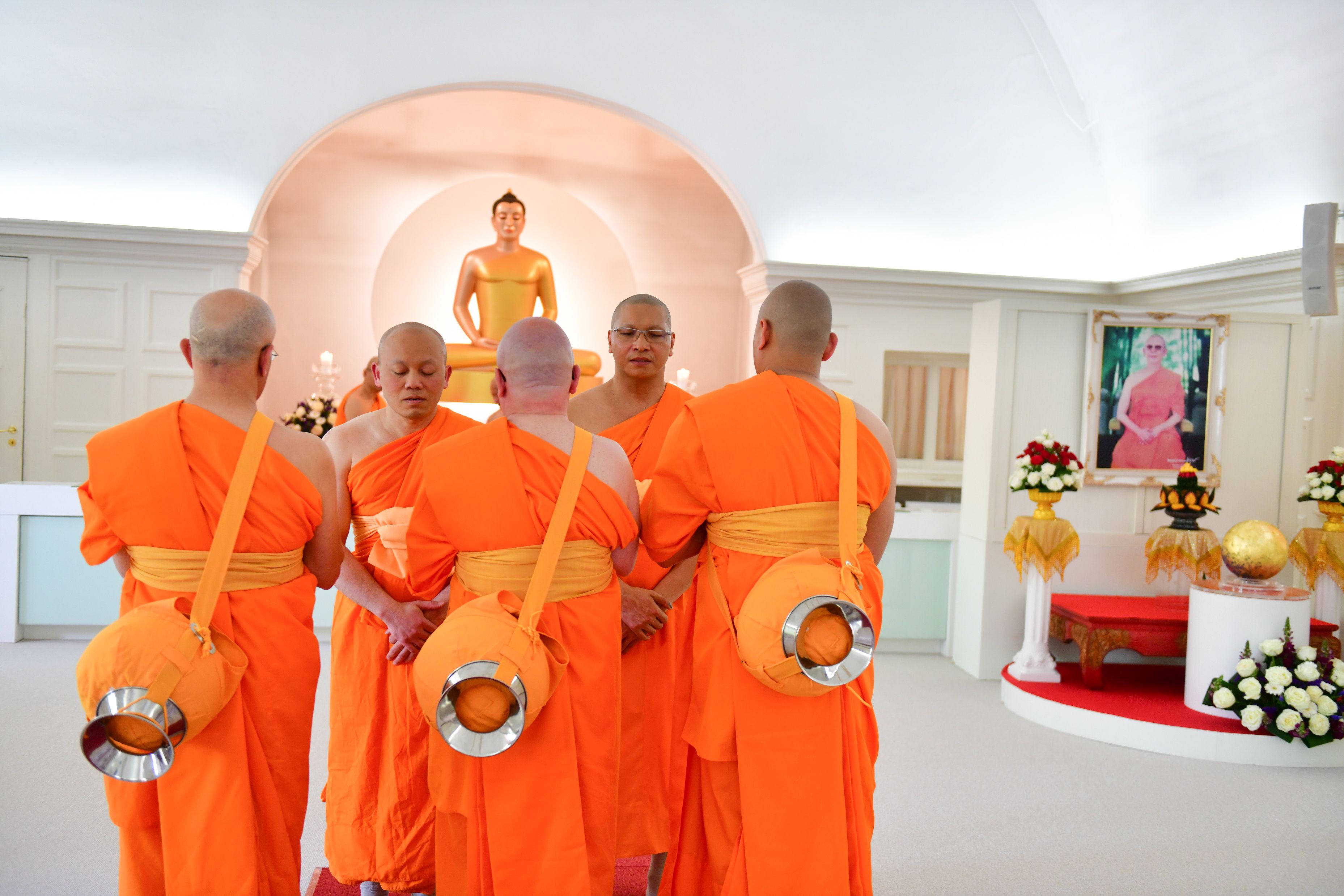
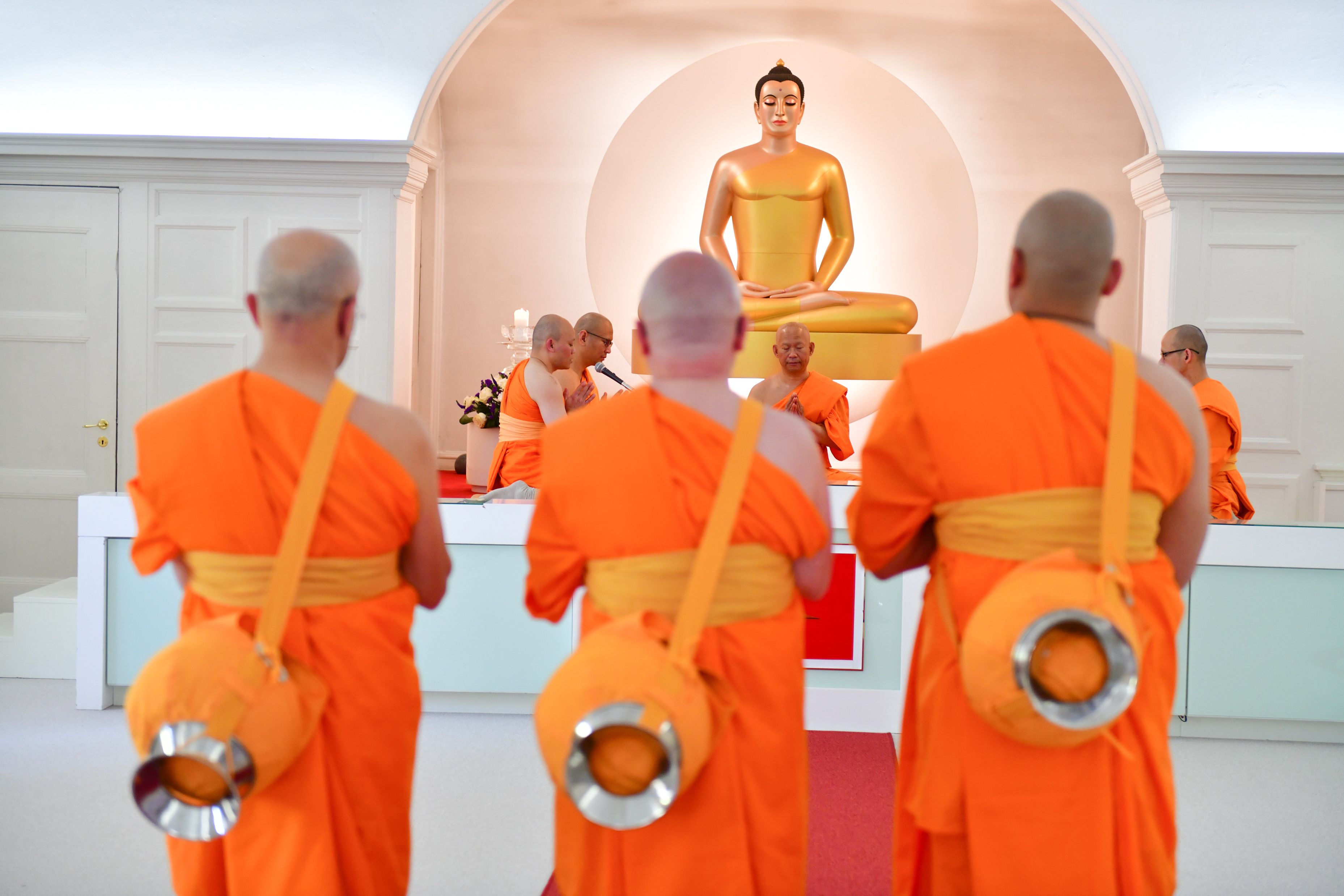
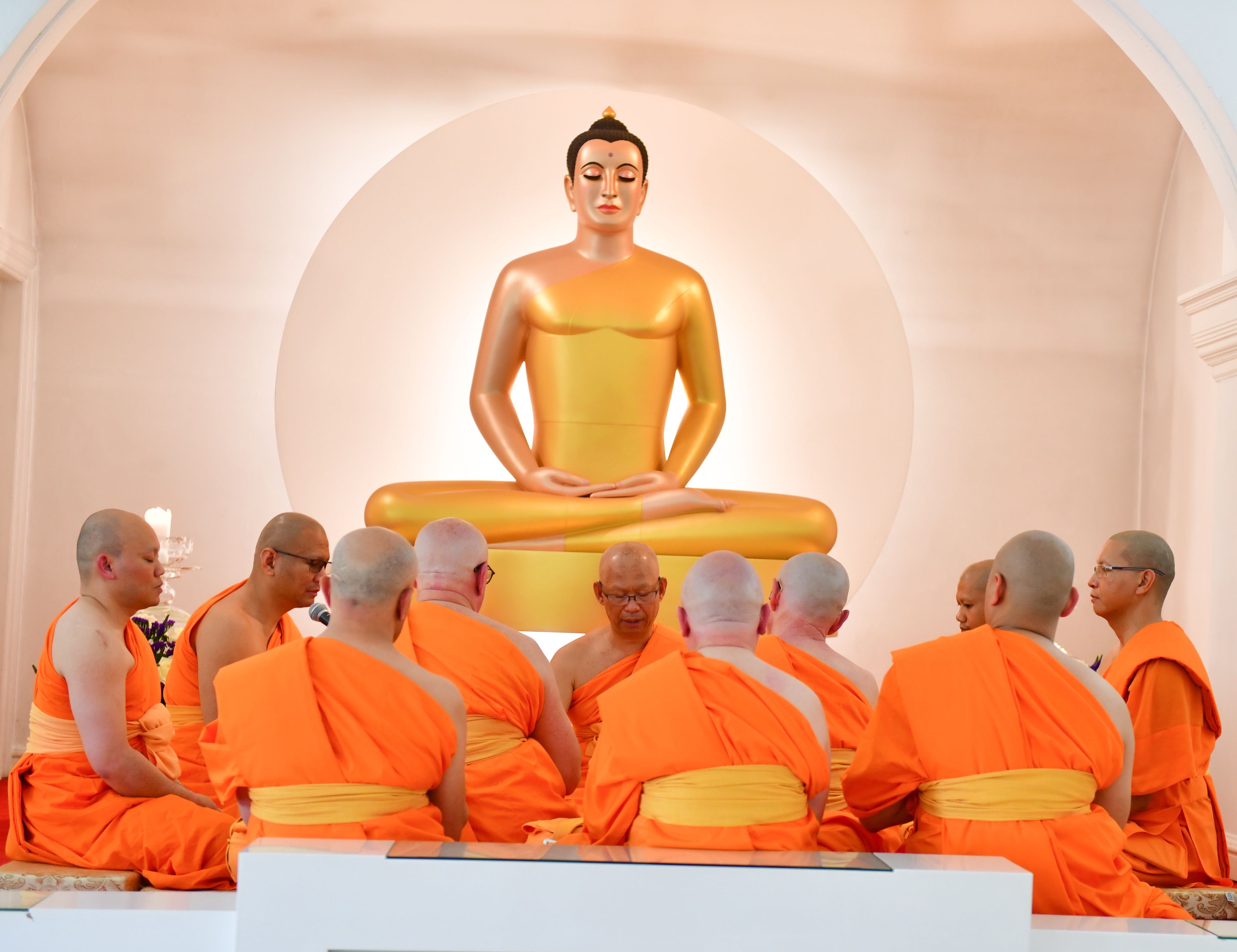
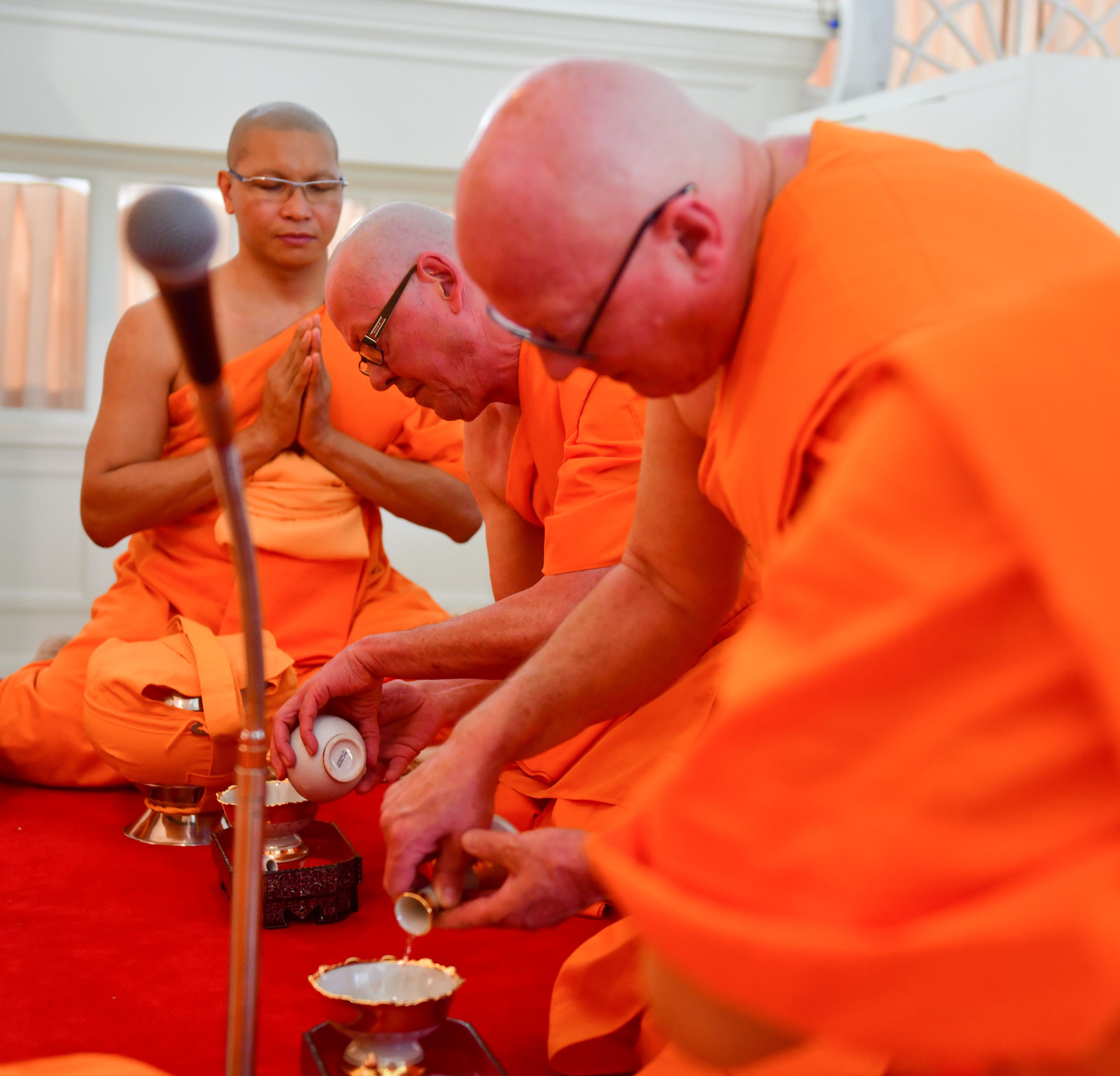
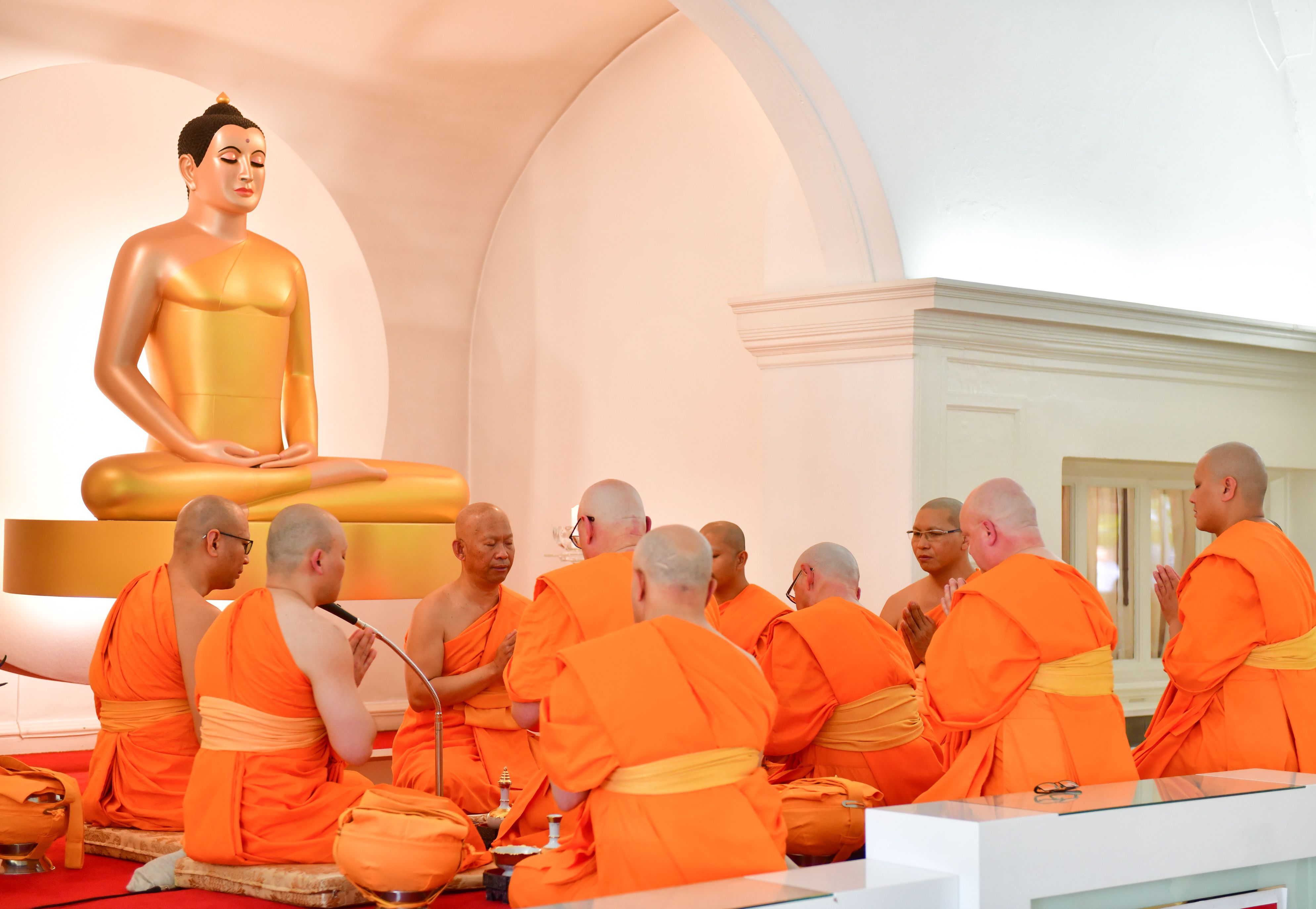
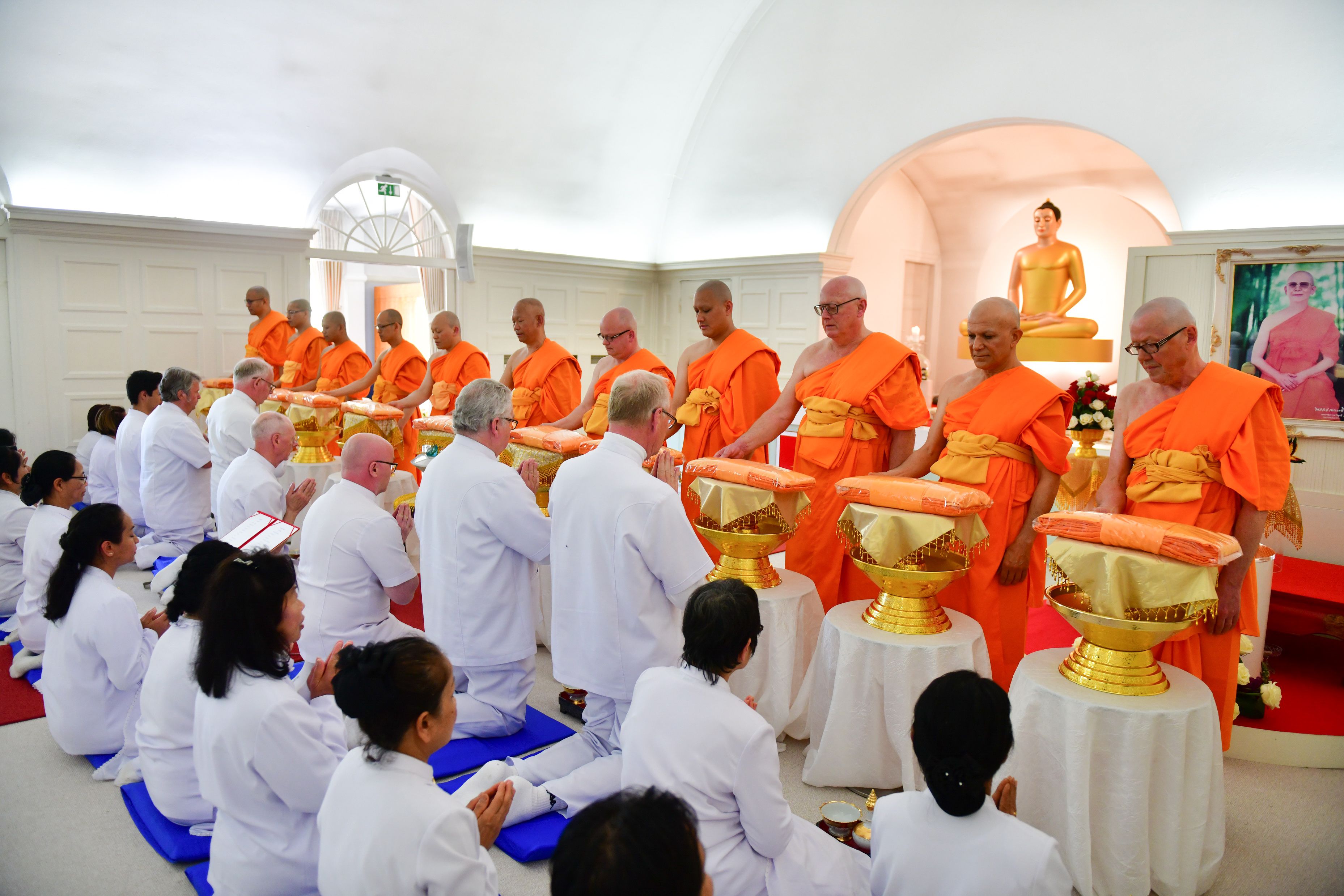
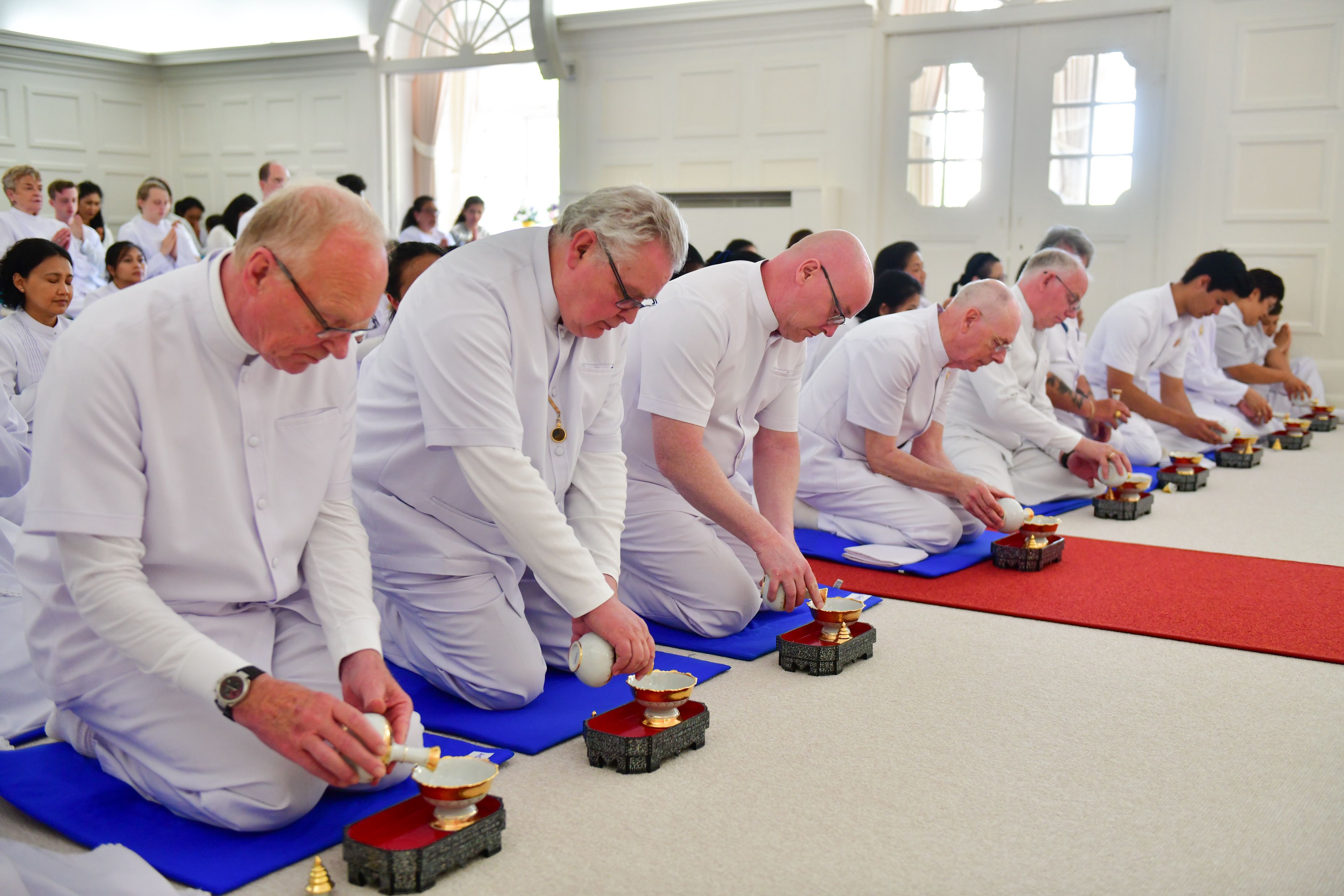
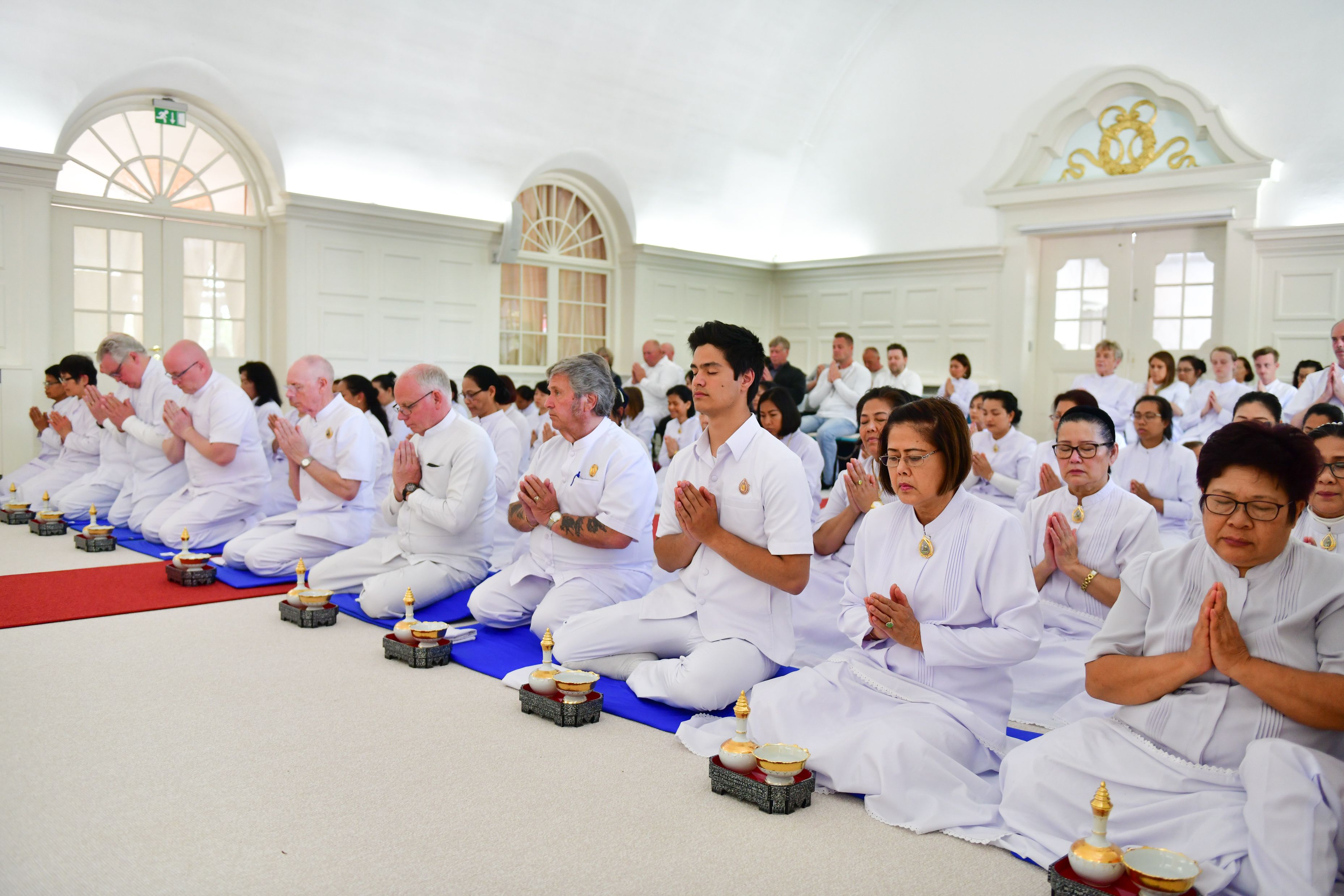
Monk’s life
A monk is a person who decides to renounce lay’s life and devotes one’s life to practicing the Dhamma. Since a monk lives by alms given by people. Therefore, a monk shall dedicate oneself to be worthy of the offering. A monk’s practices are based on threefold training namely moral discipline (Sila), mindfulness, mental calmness and focus (Samādhi), and sharpening wisdom (Paññā).
One must practice their body and mind intensively and dedicatedly. Moreover, a monk shall provide the teachings from their practice and training to their supporters in return. The teachings will comprise of how to eradicate oneself from suffering and attain true happiness.
